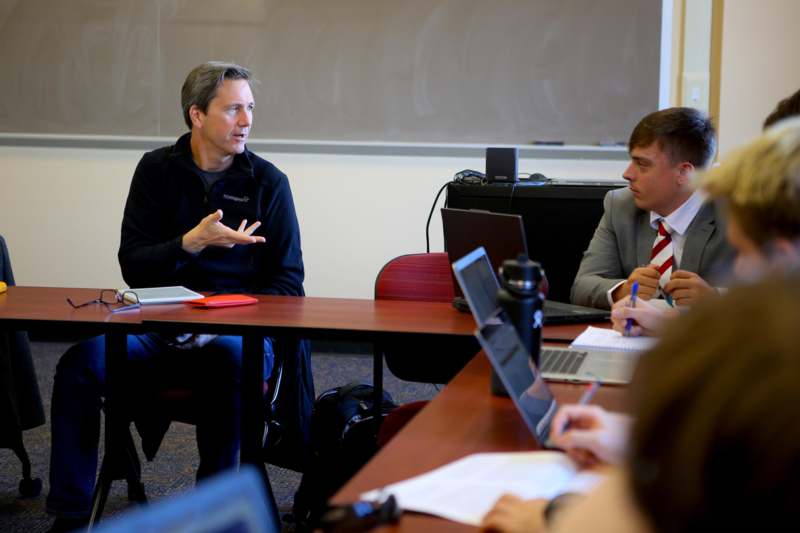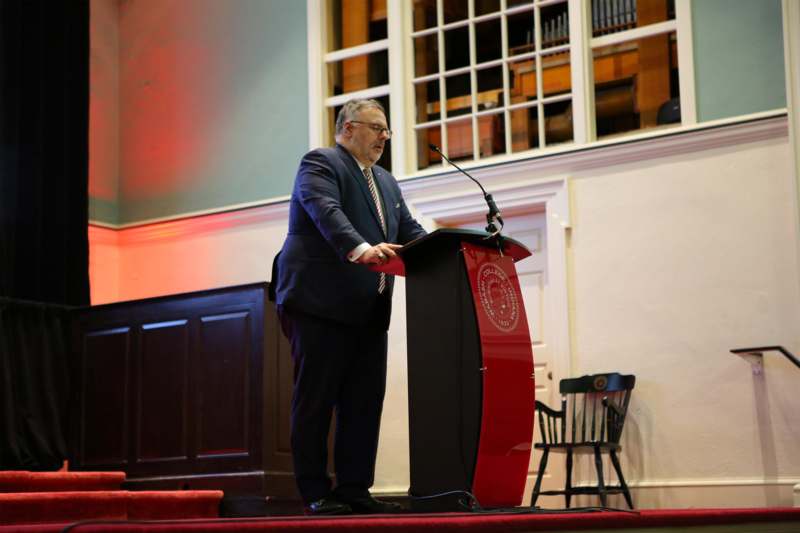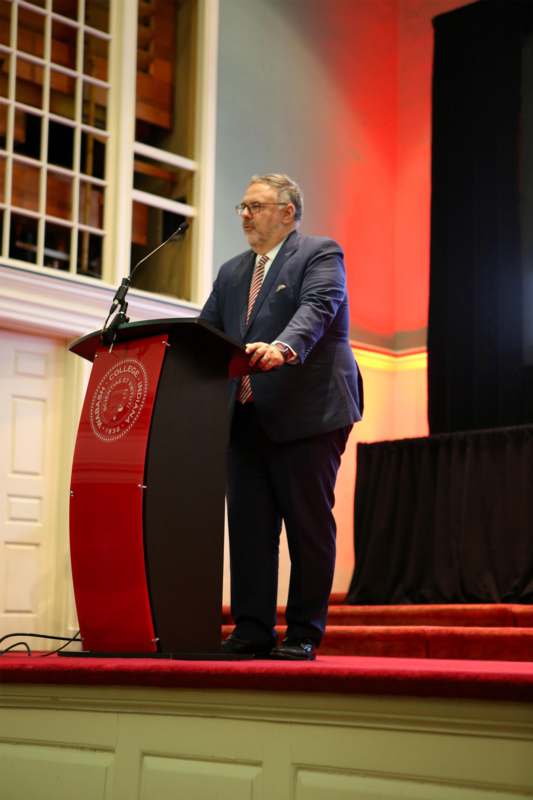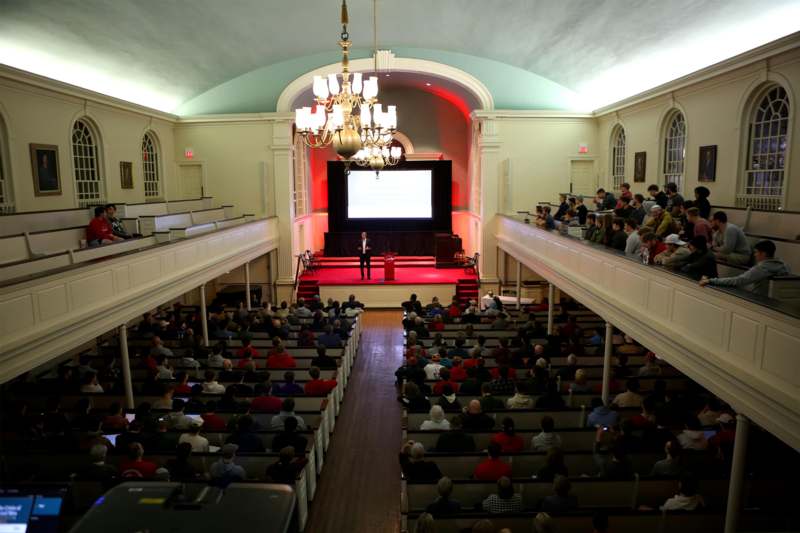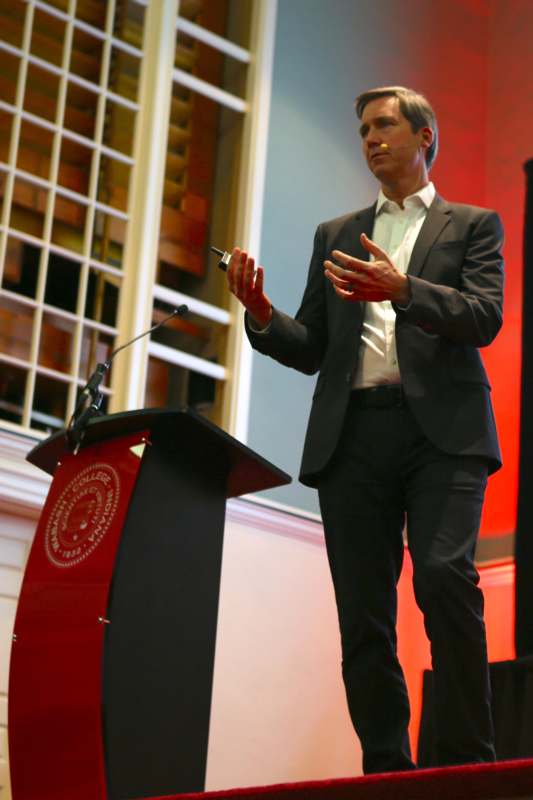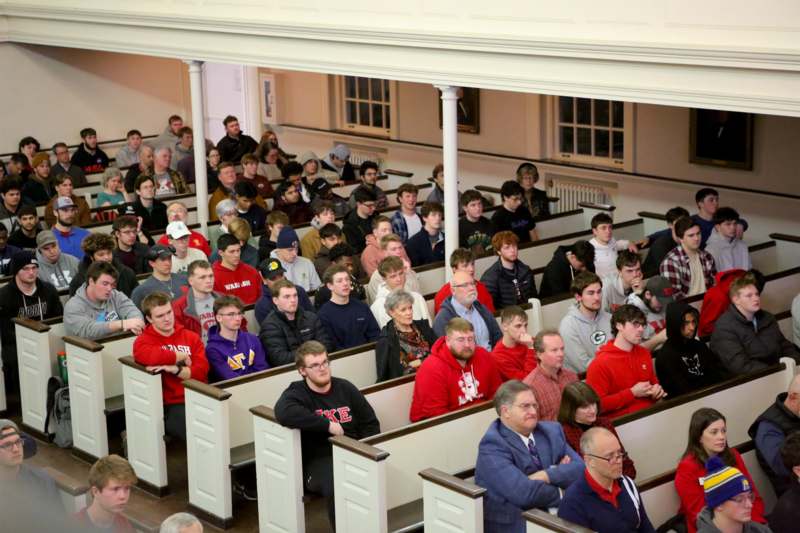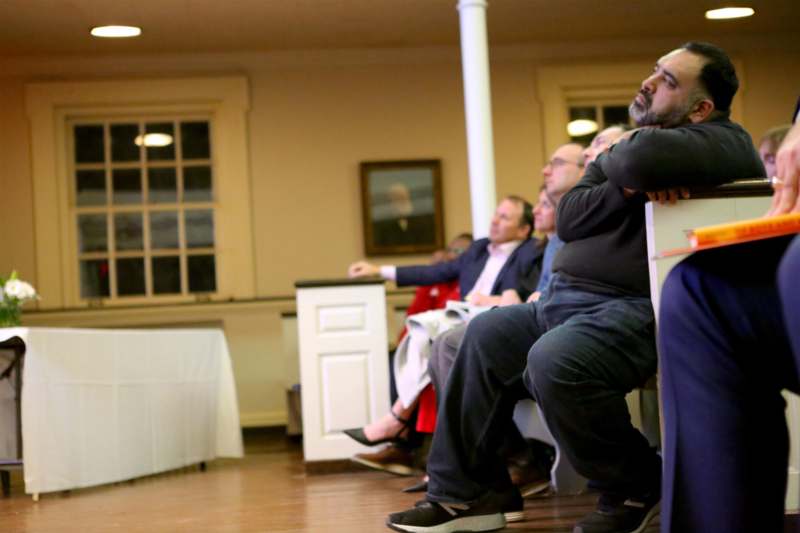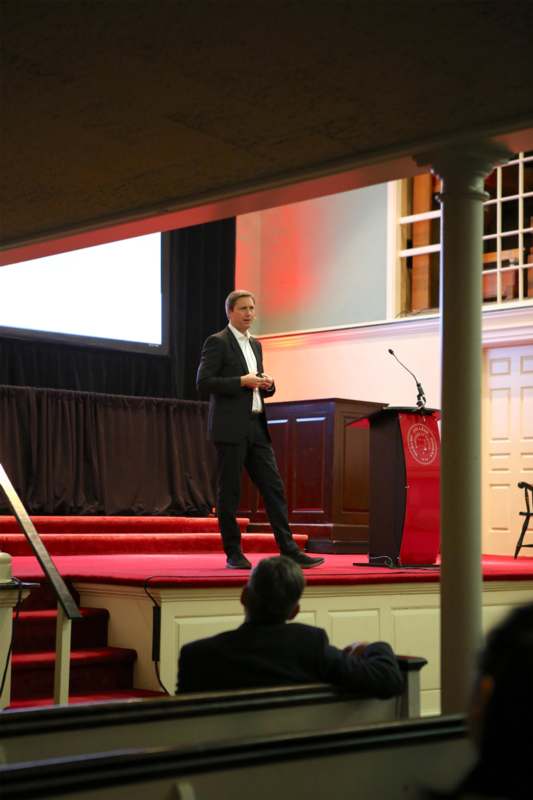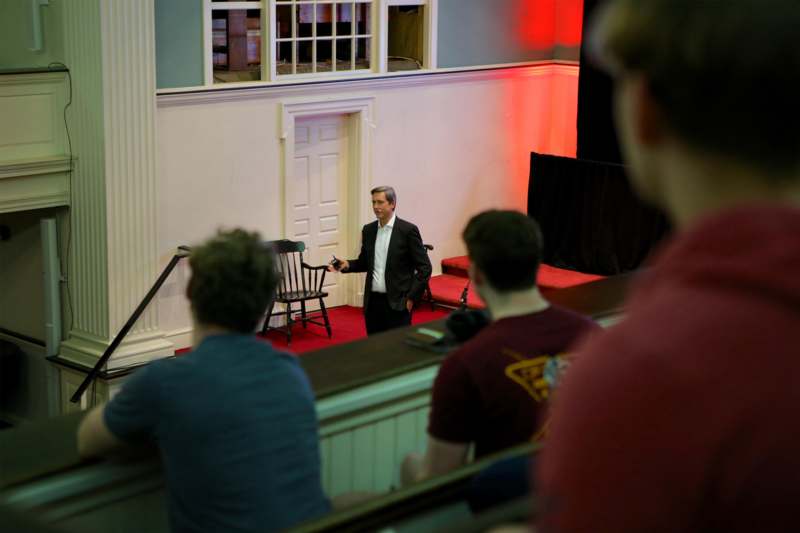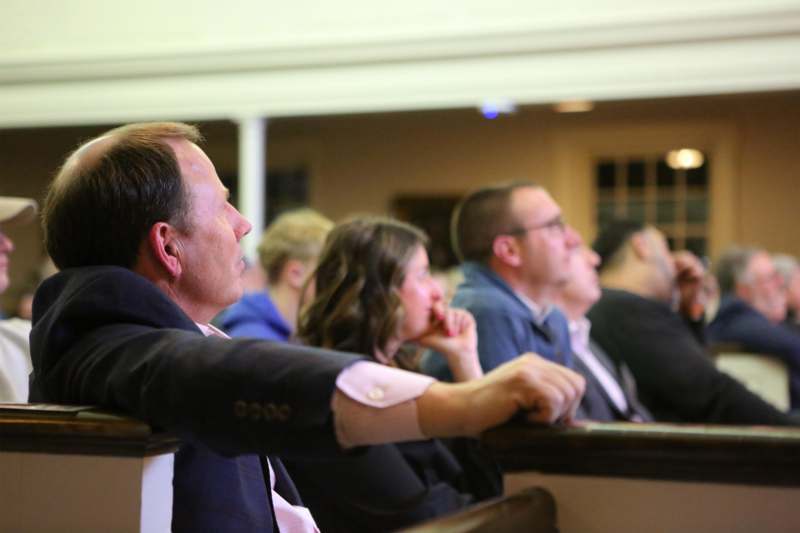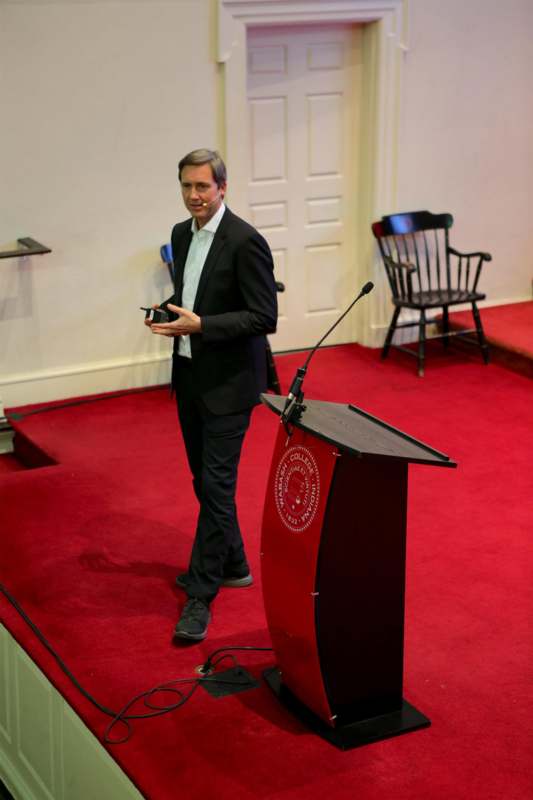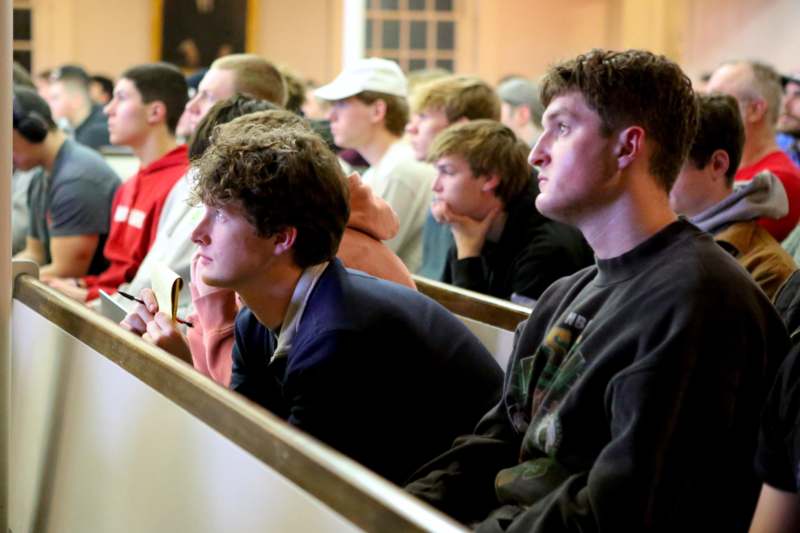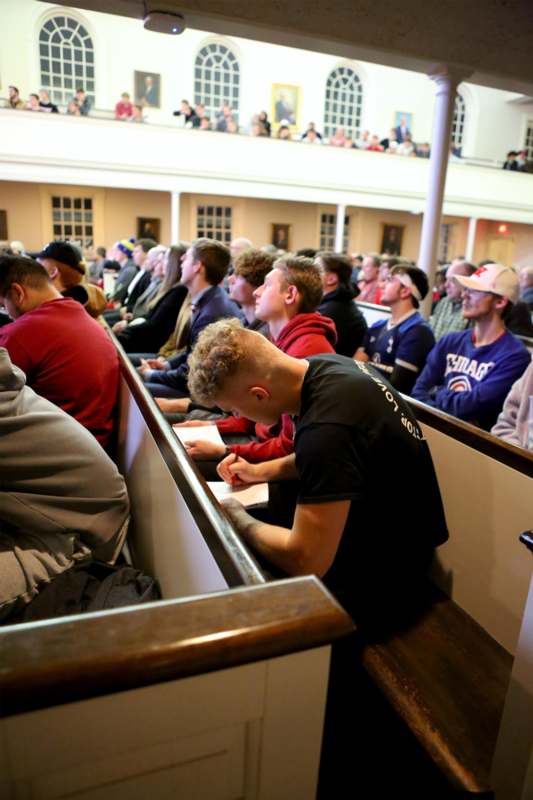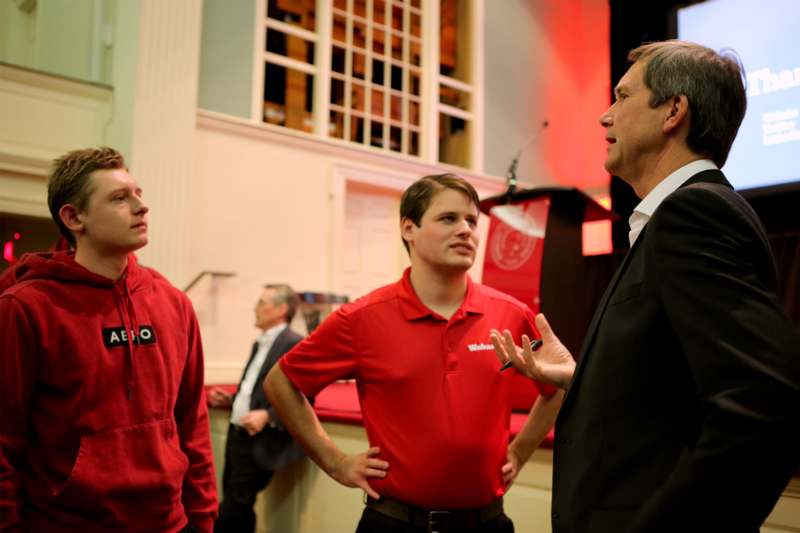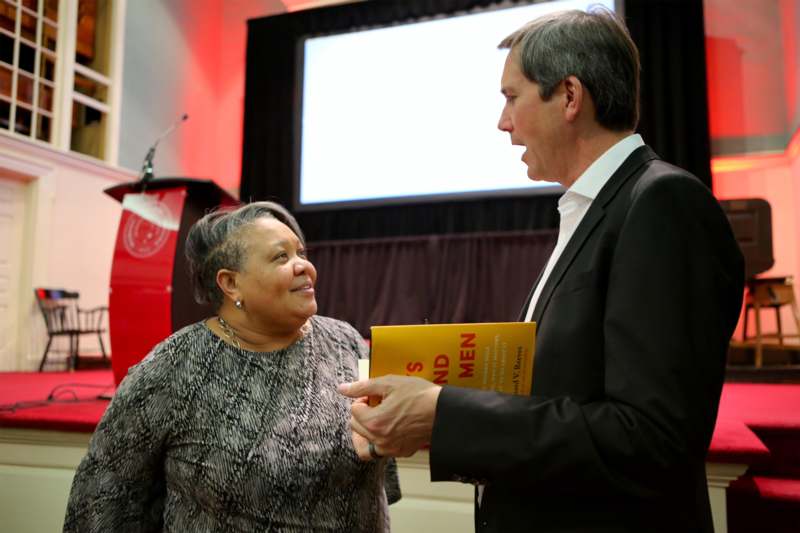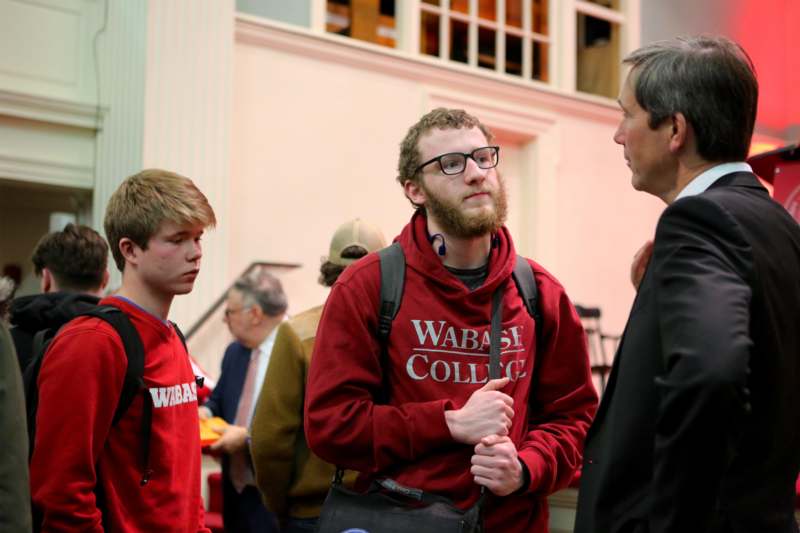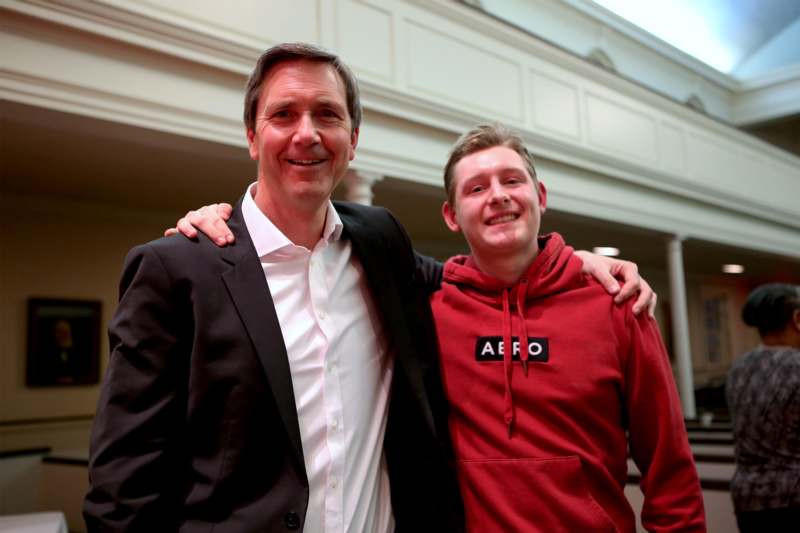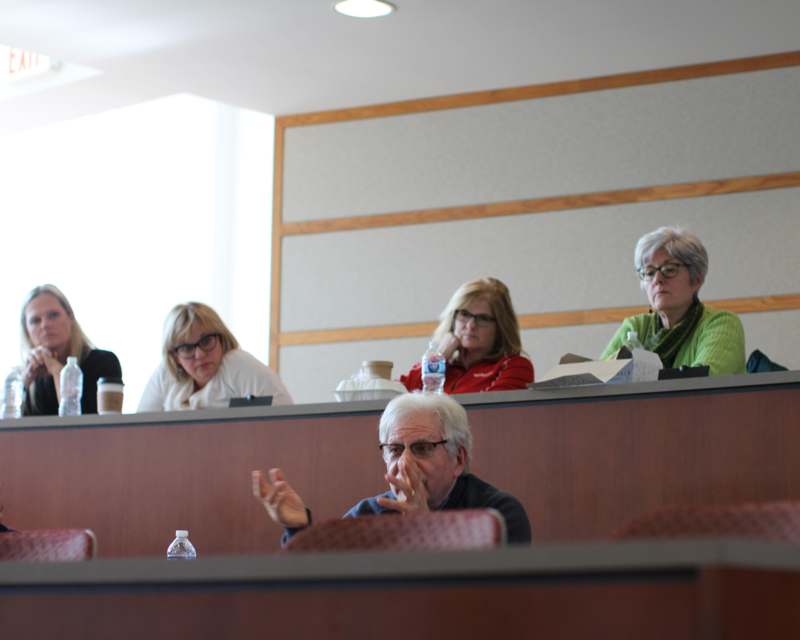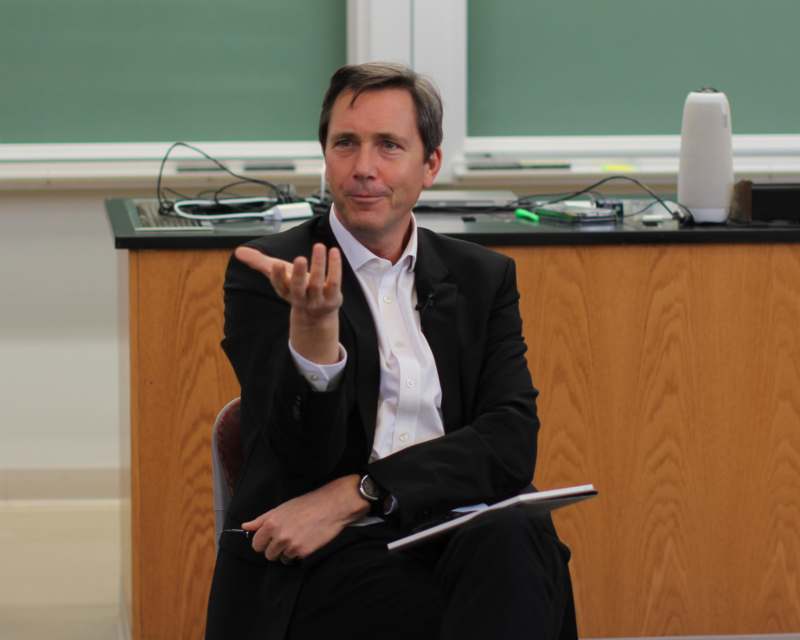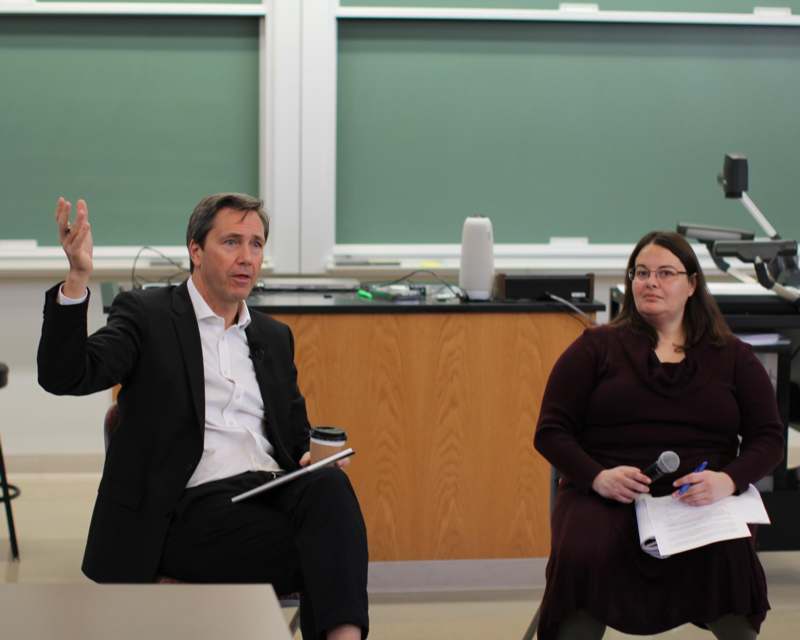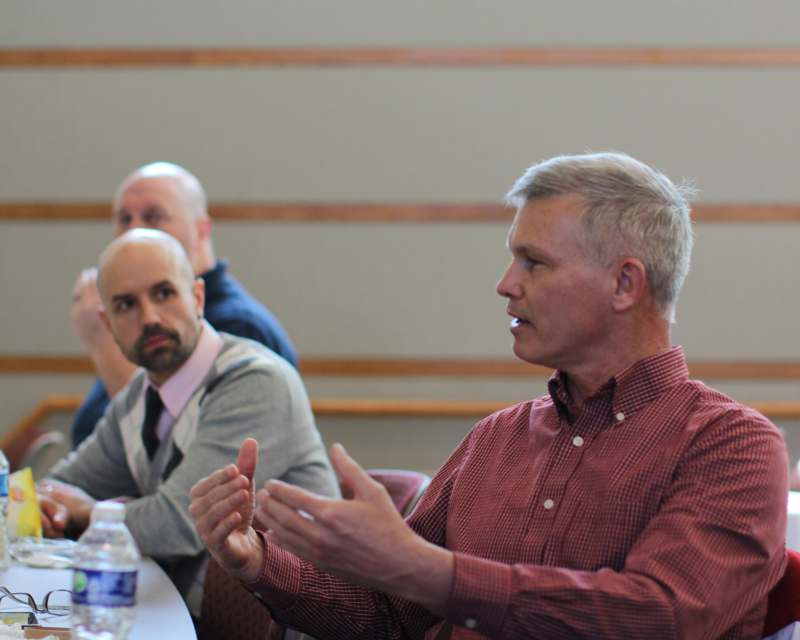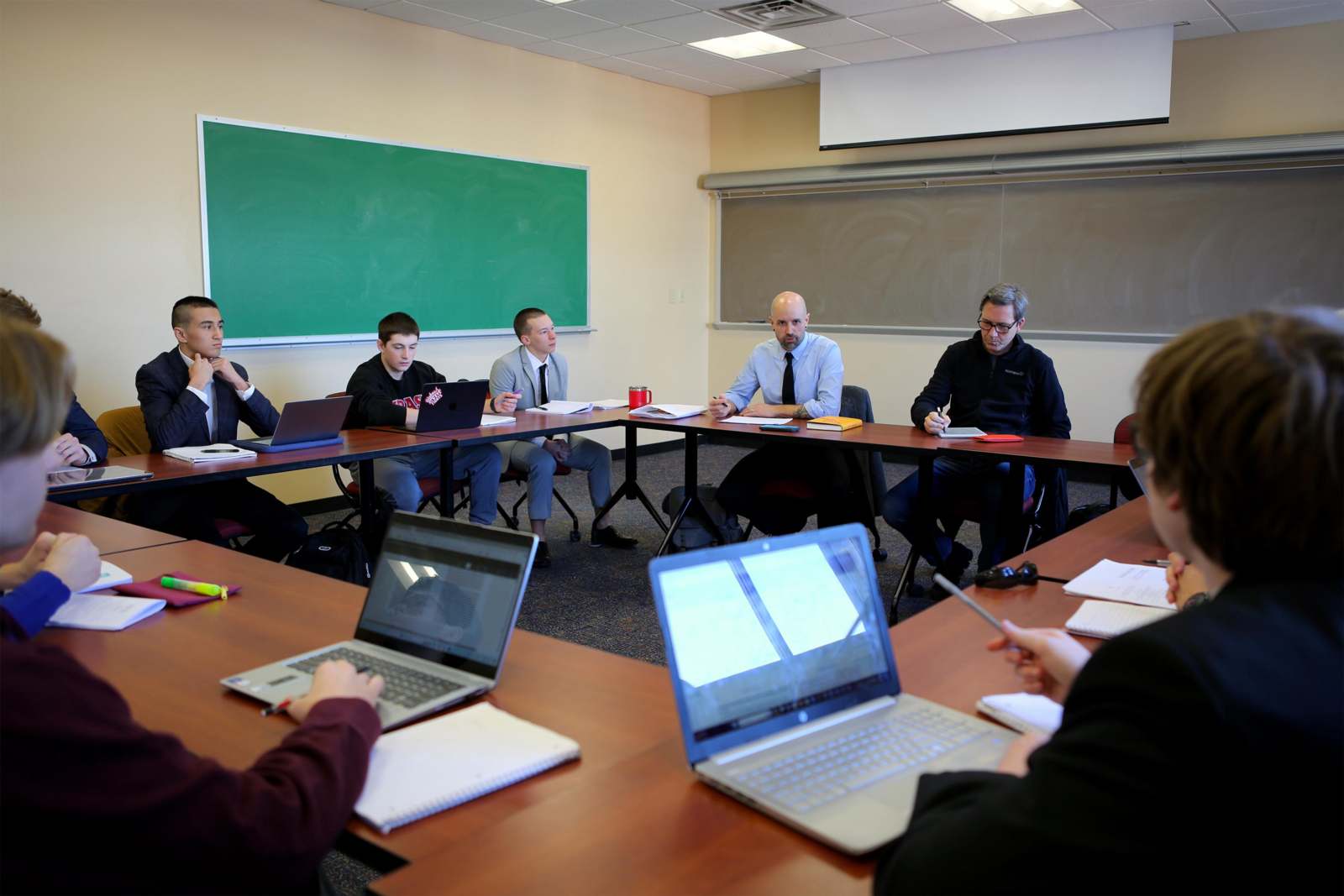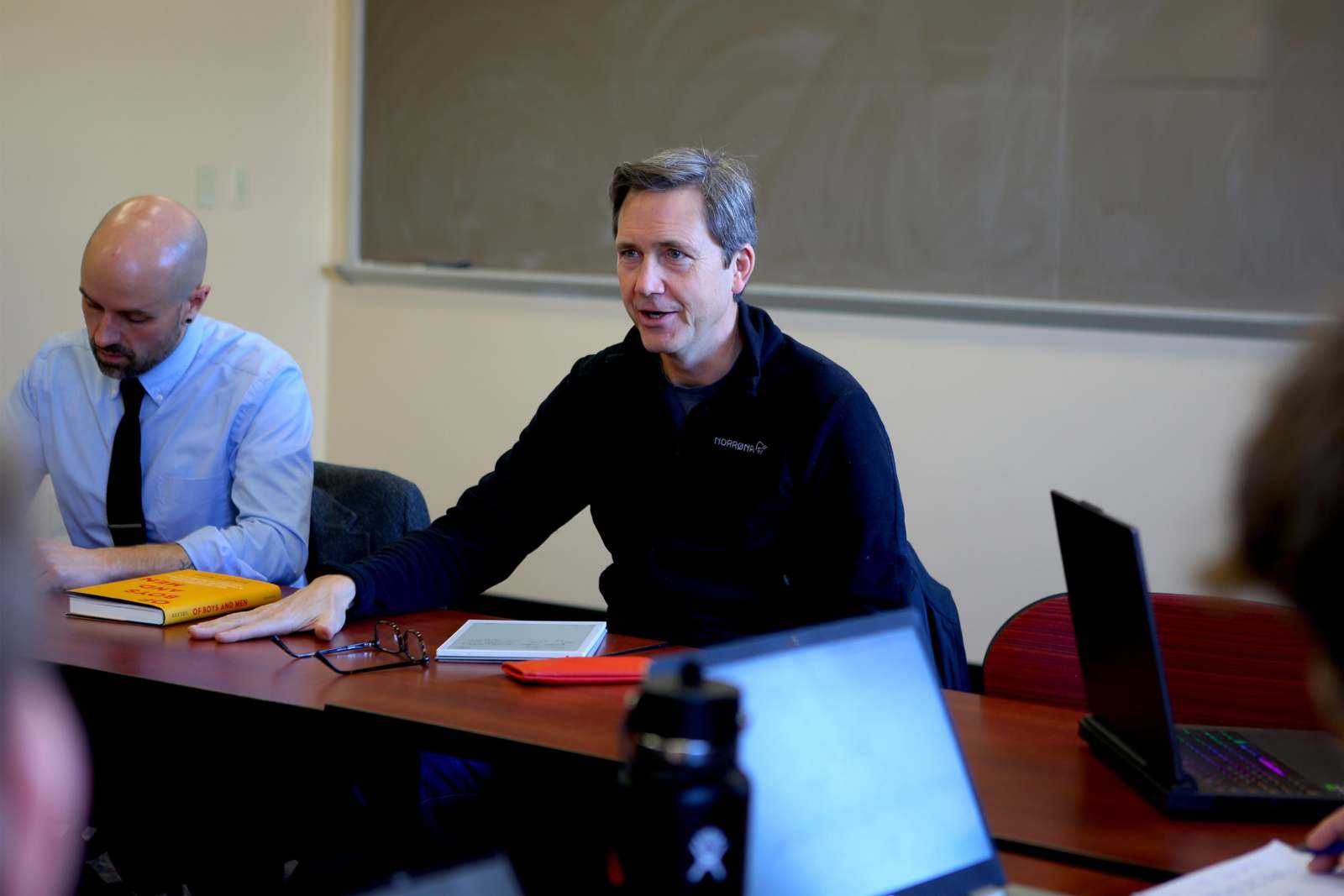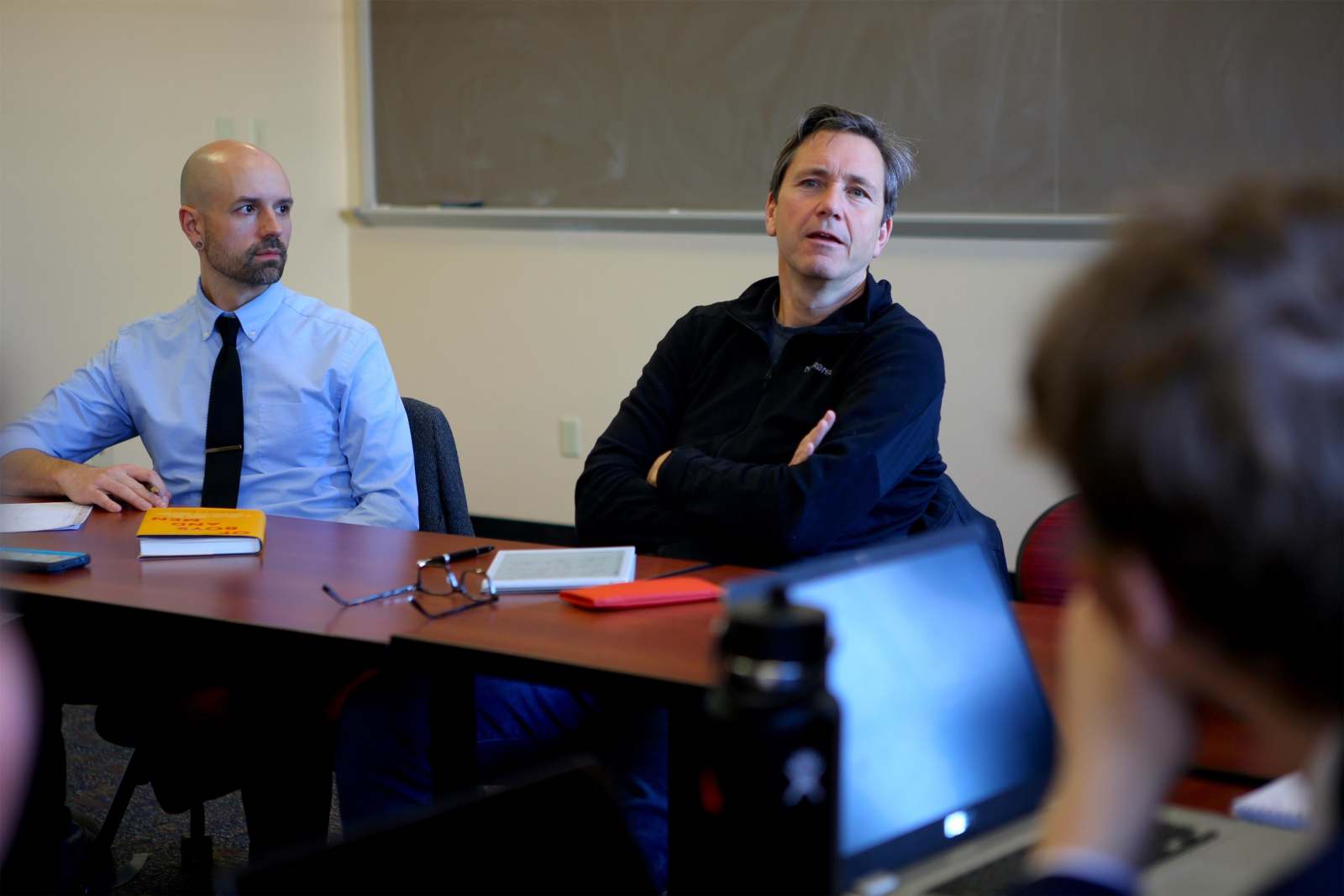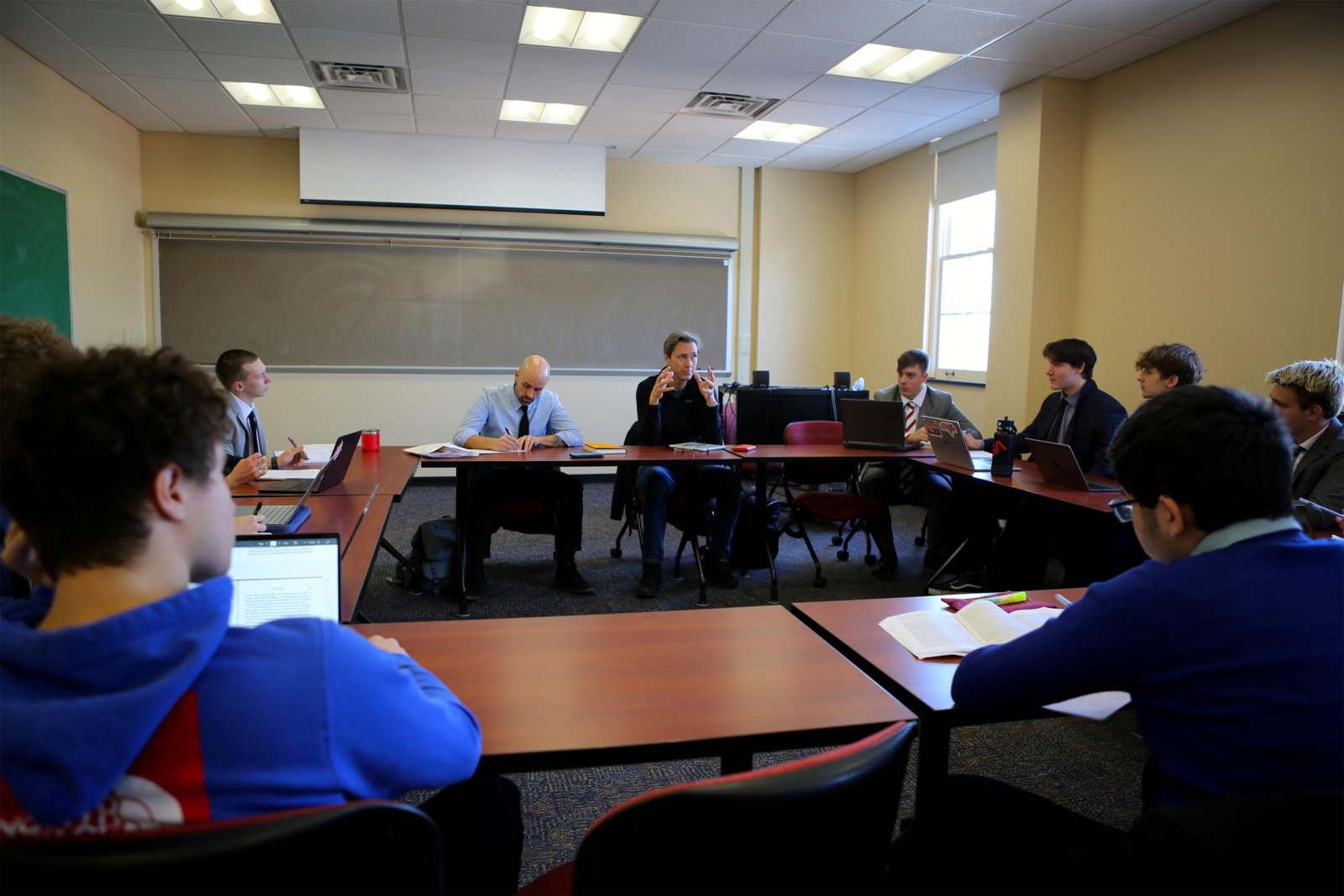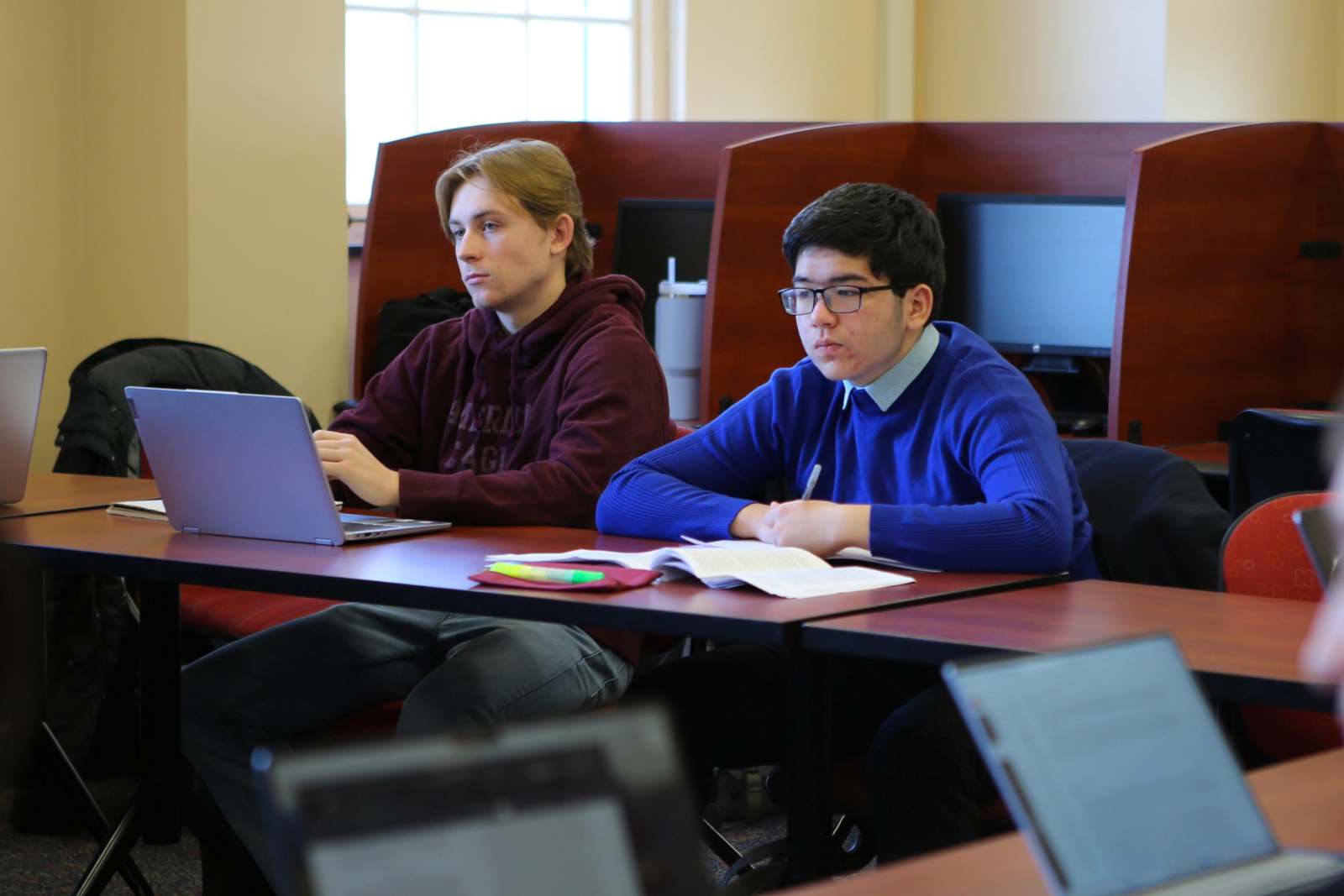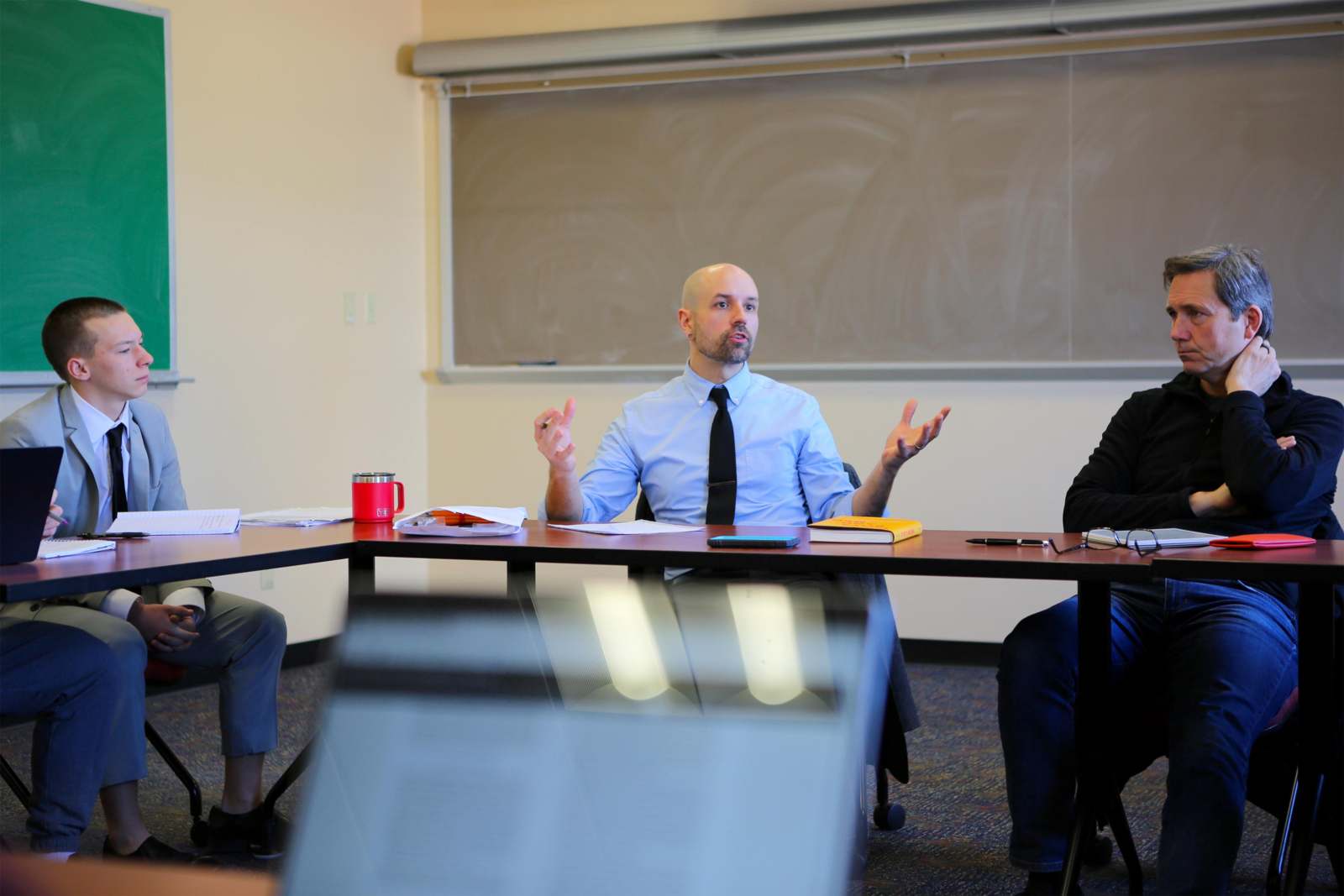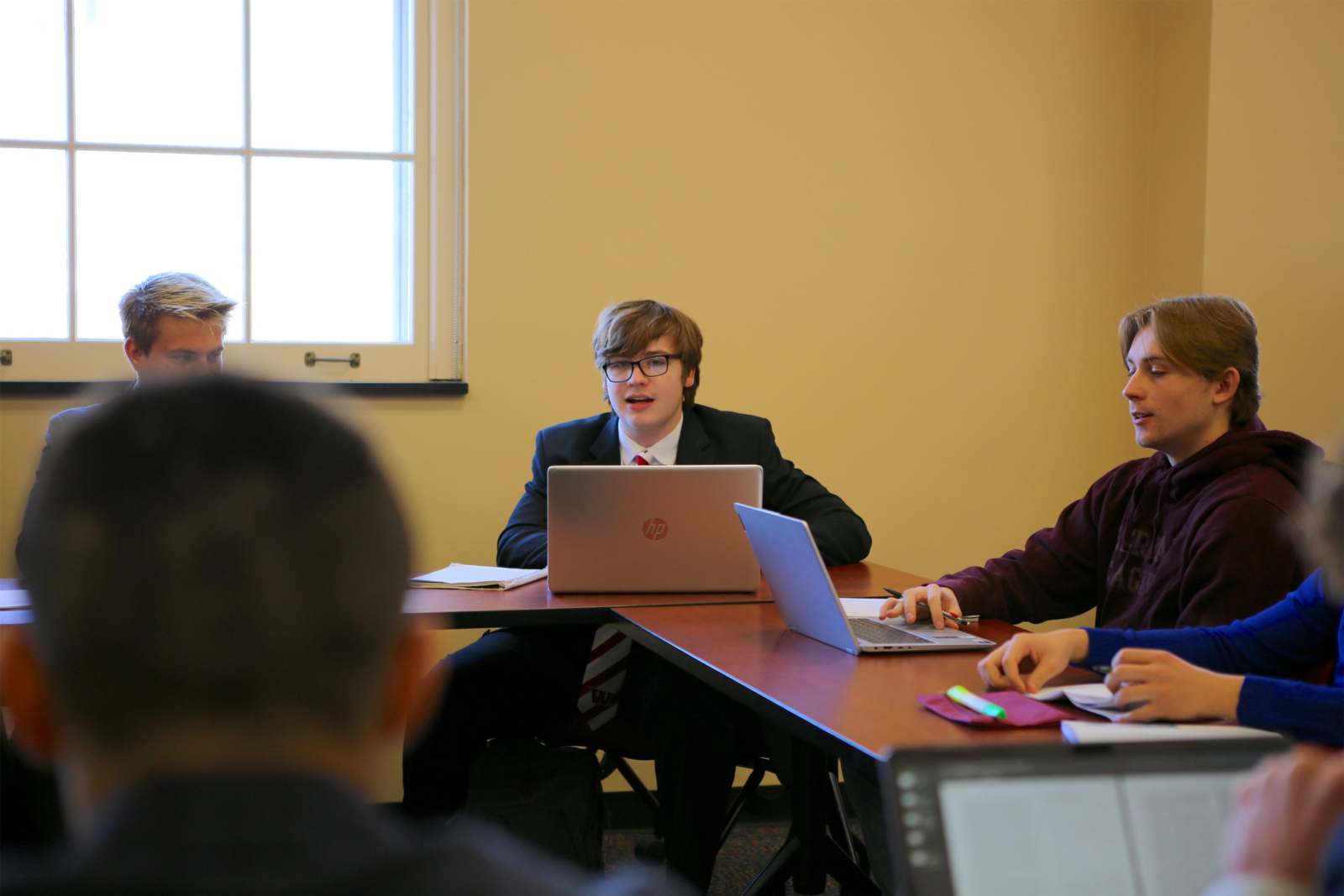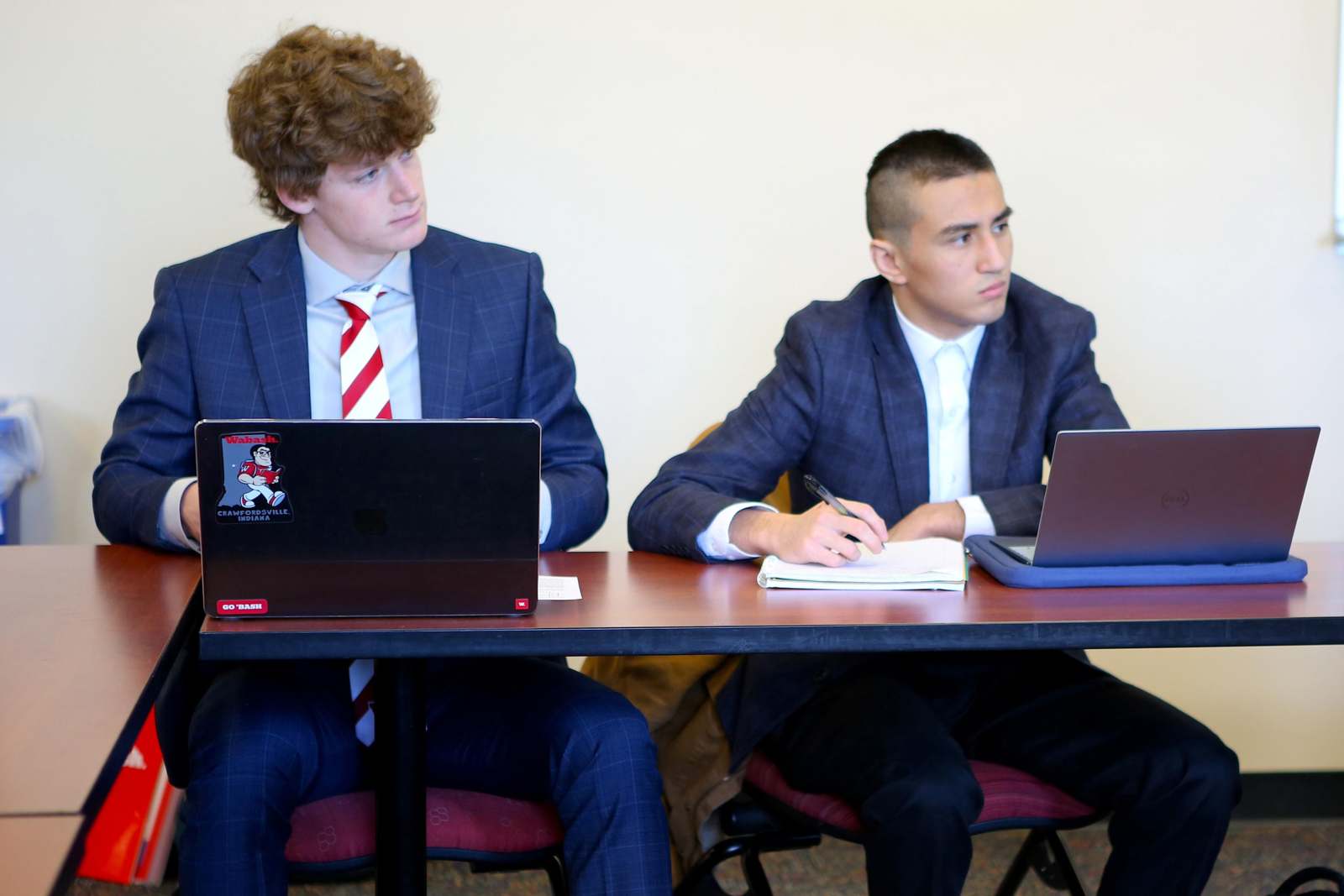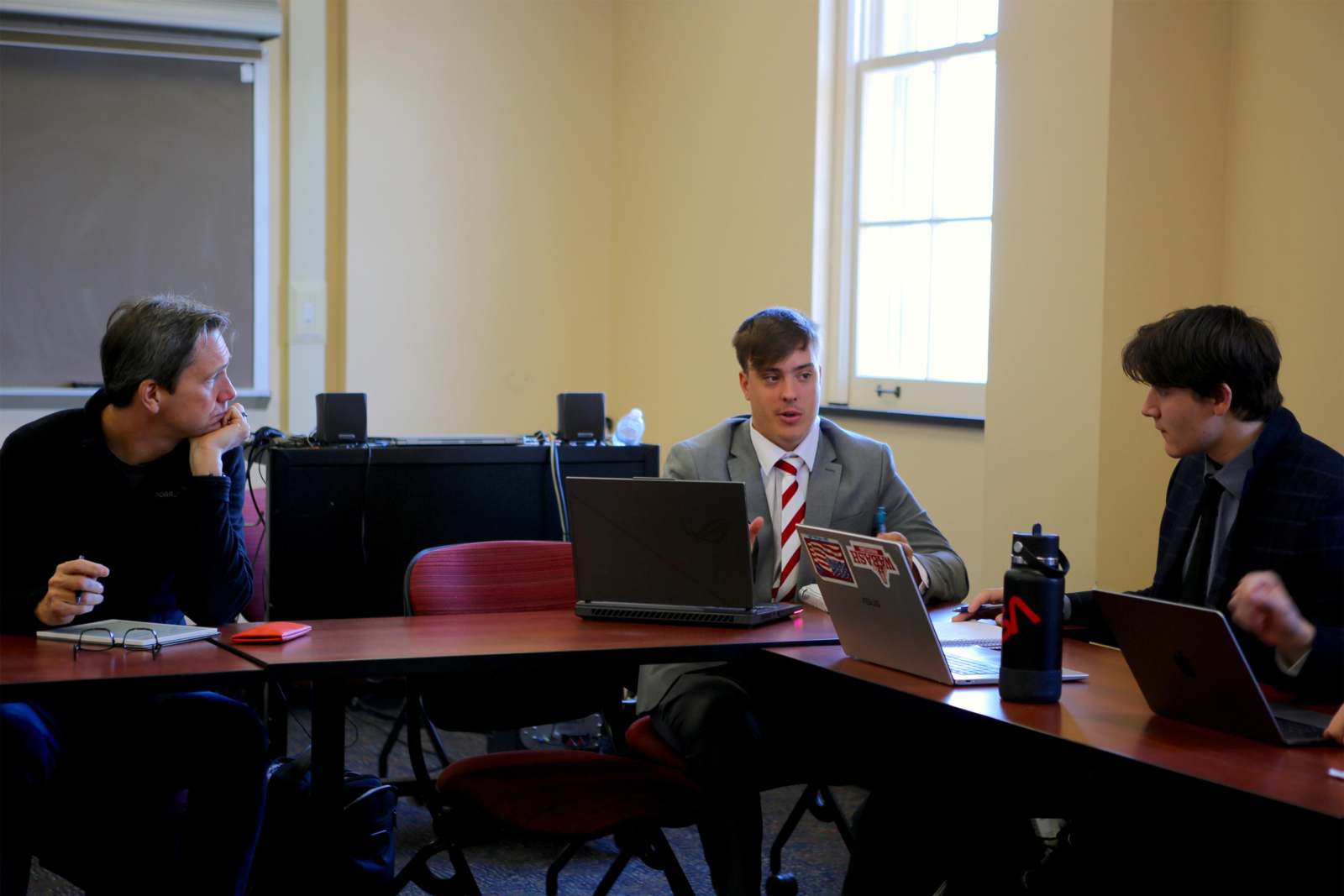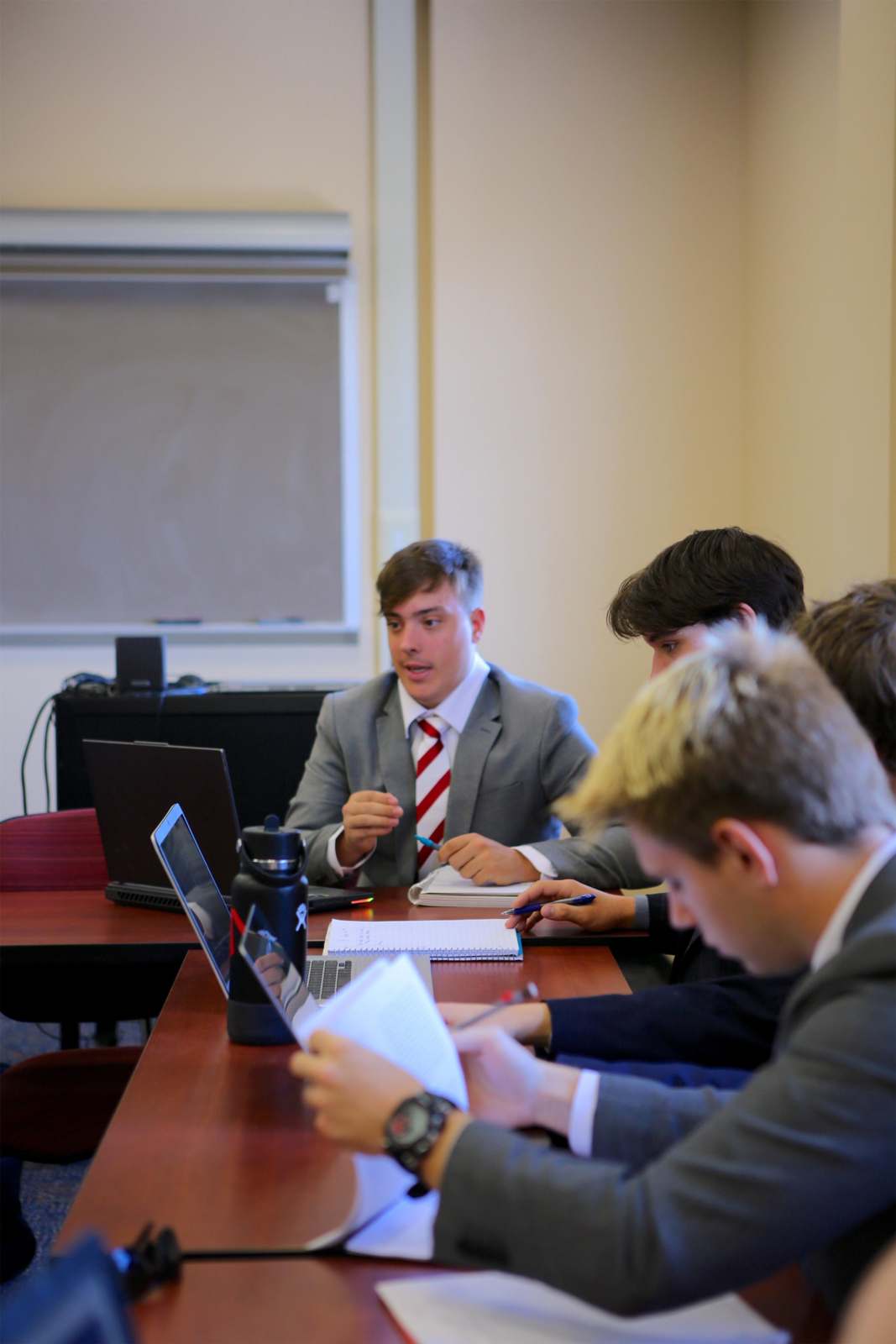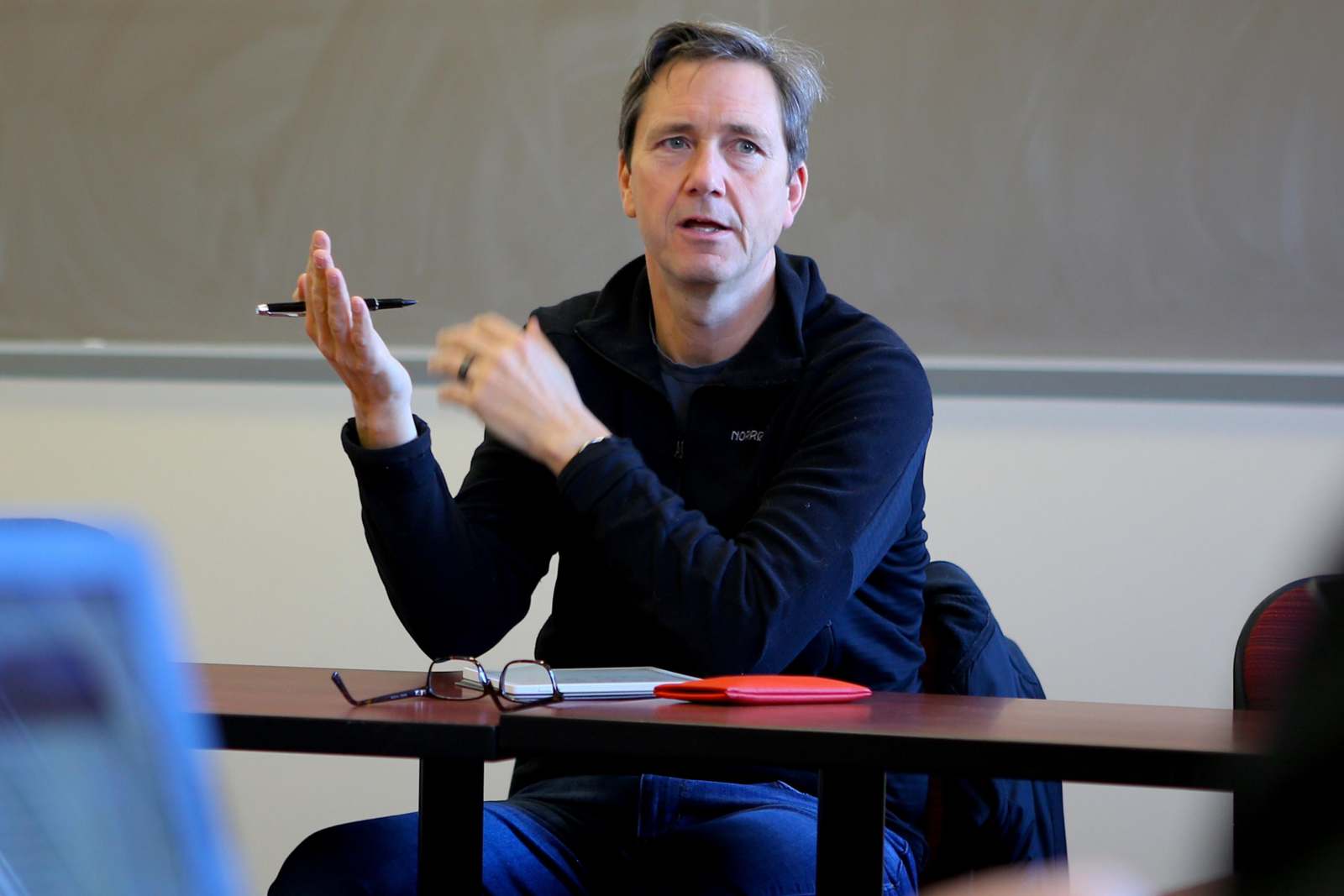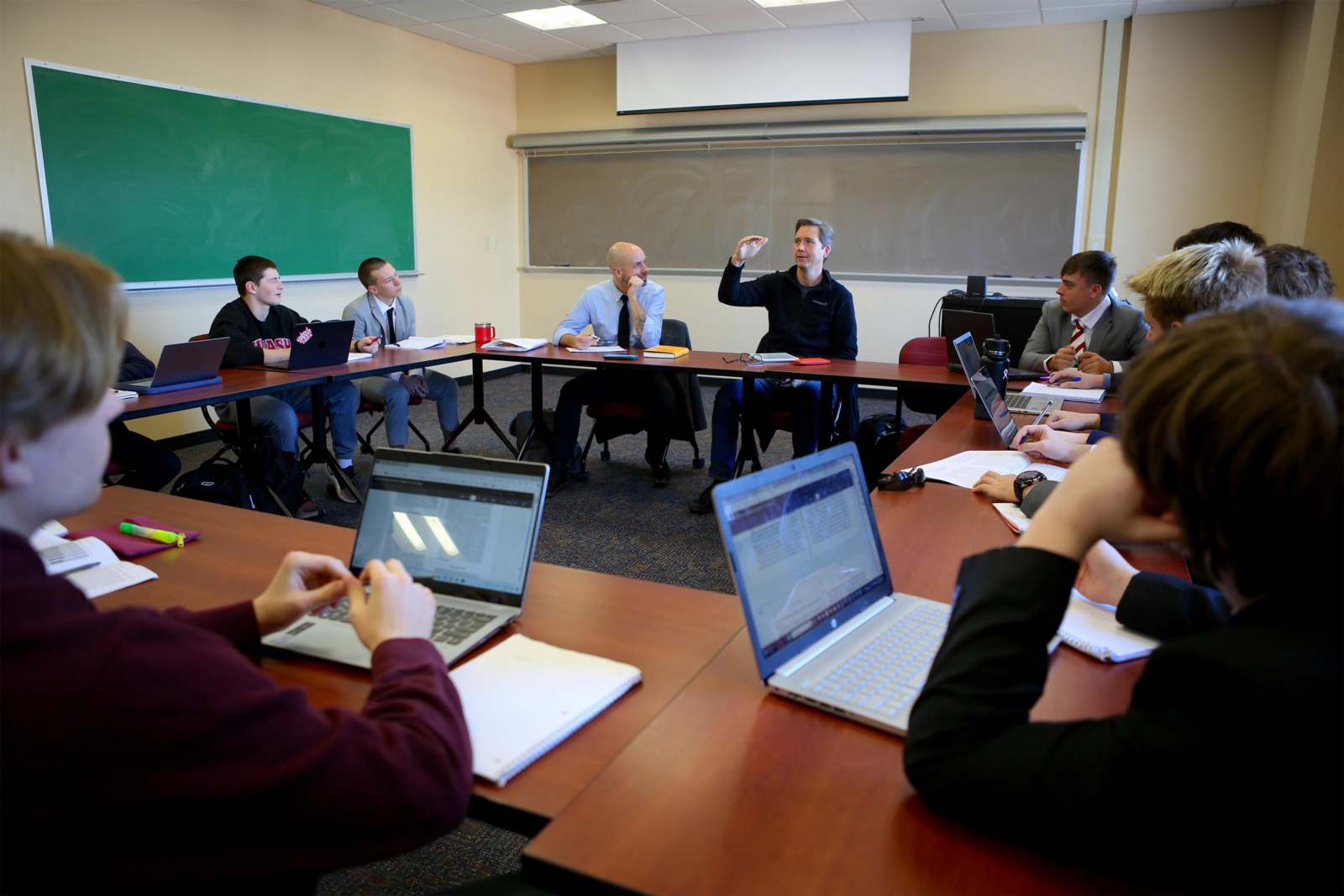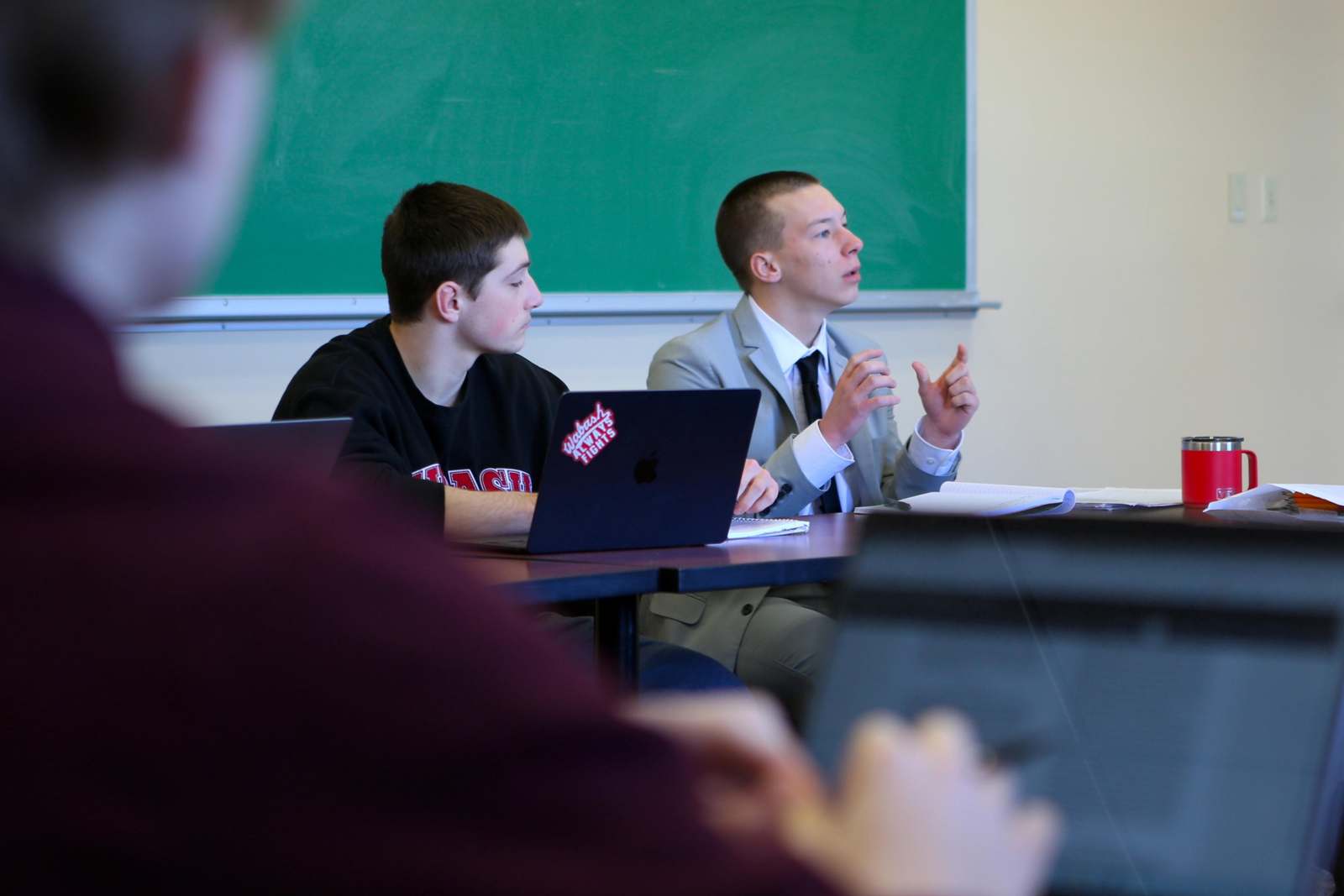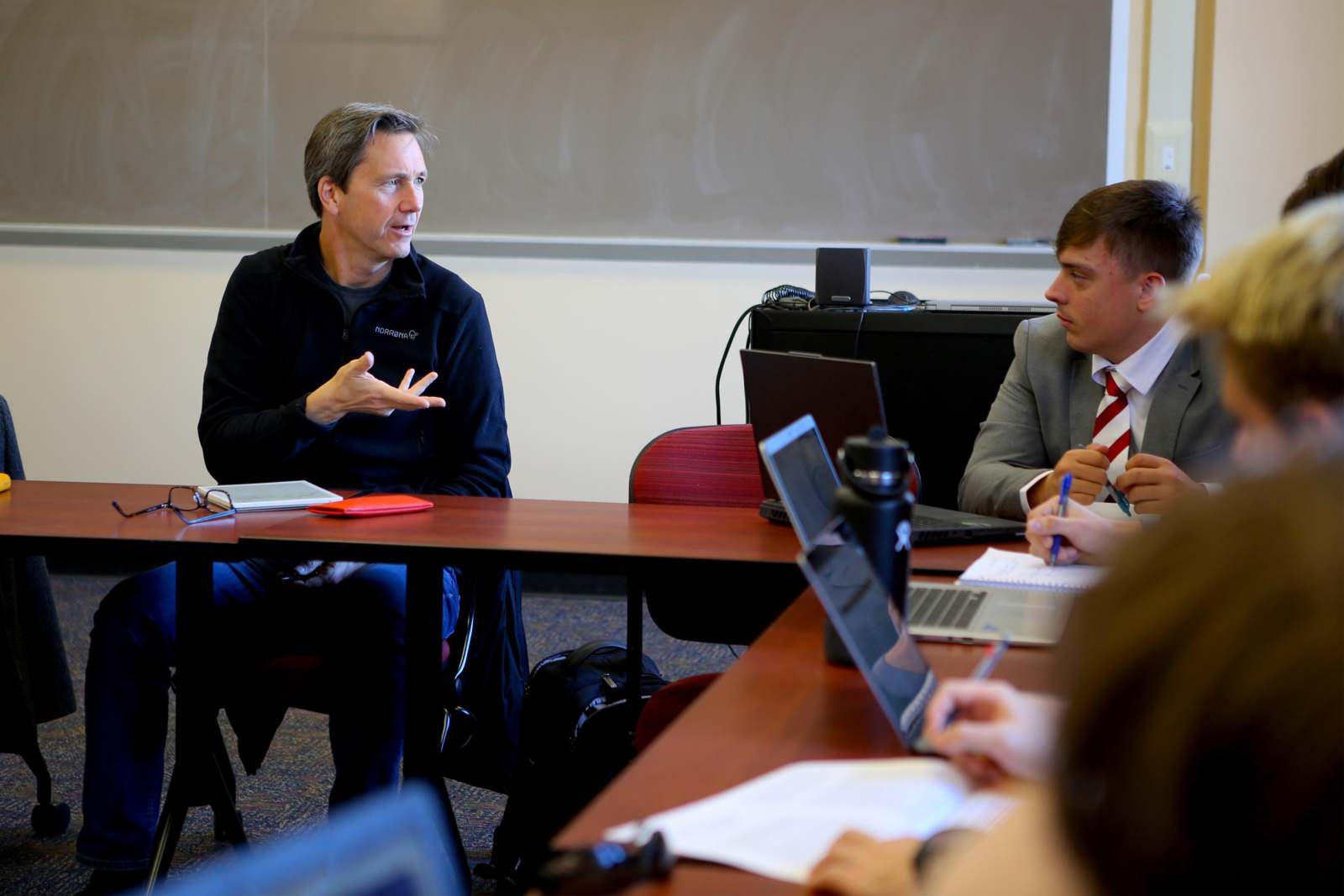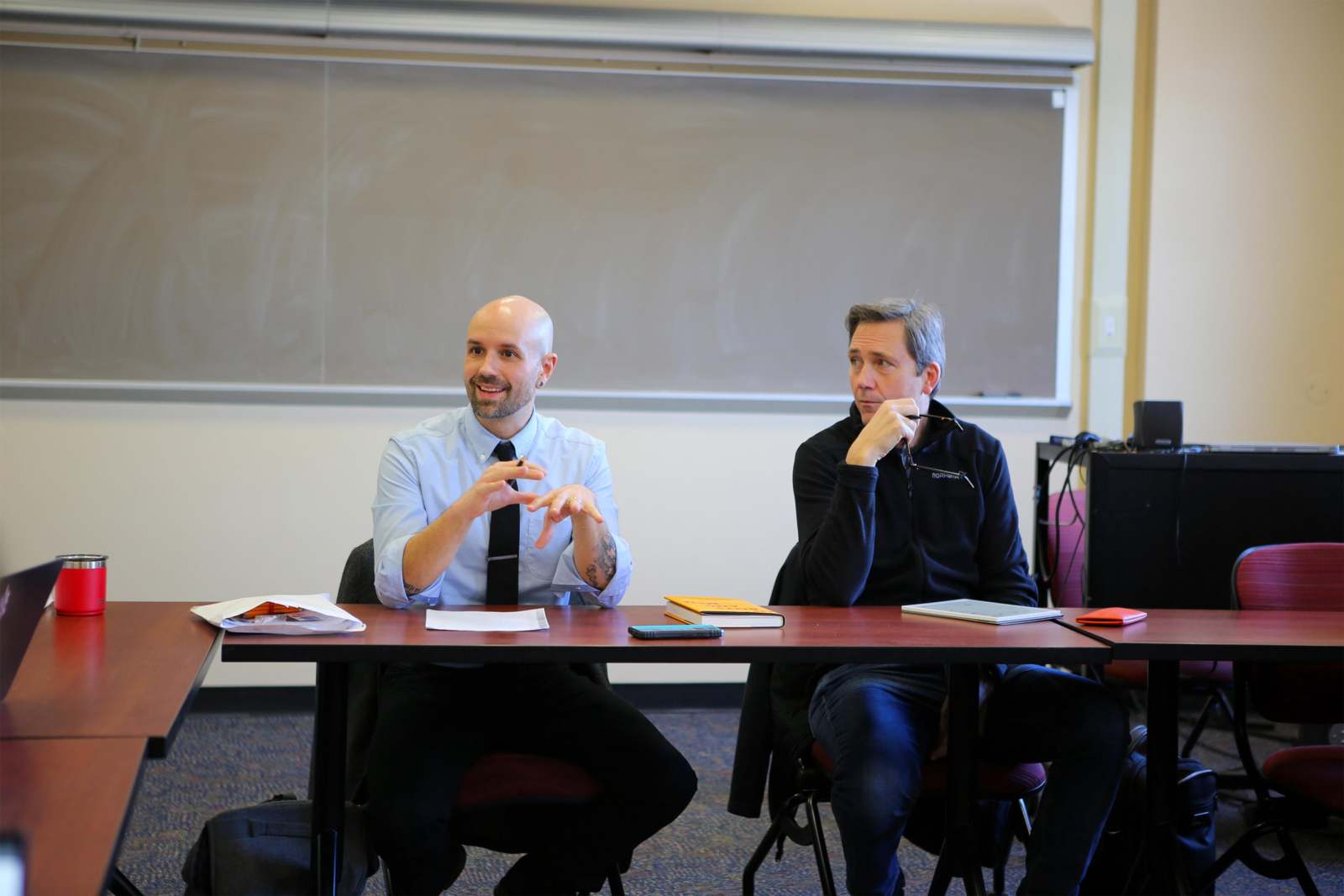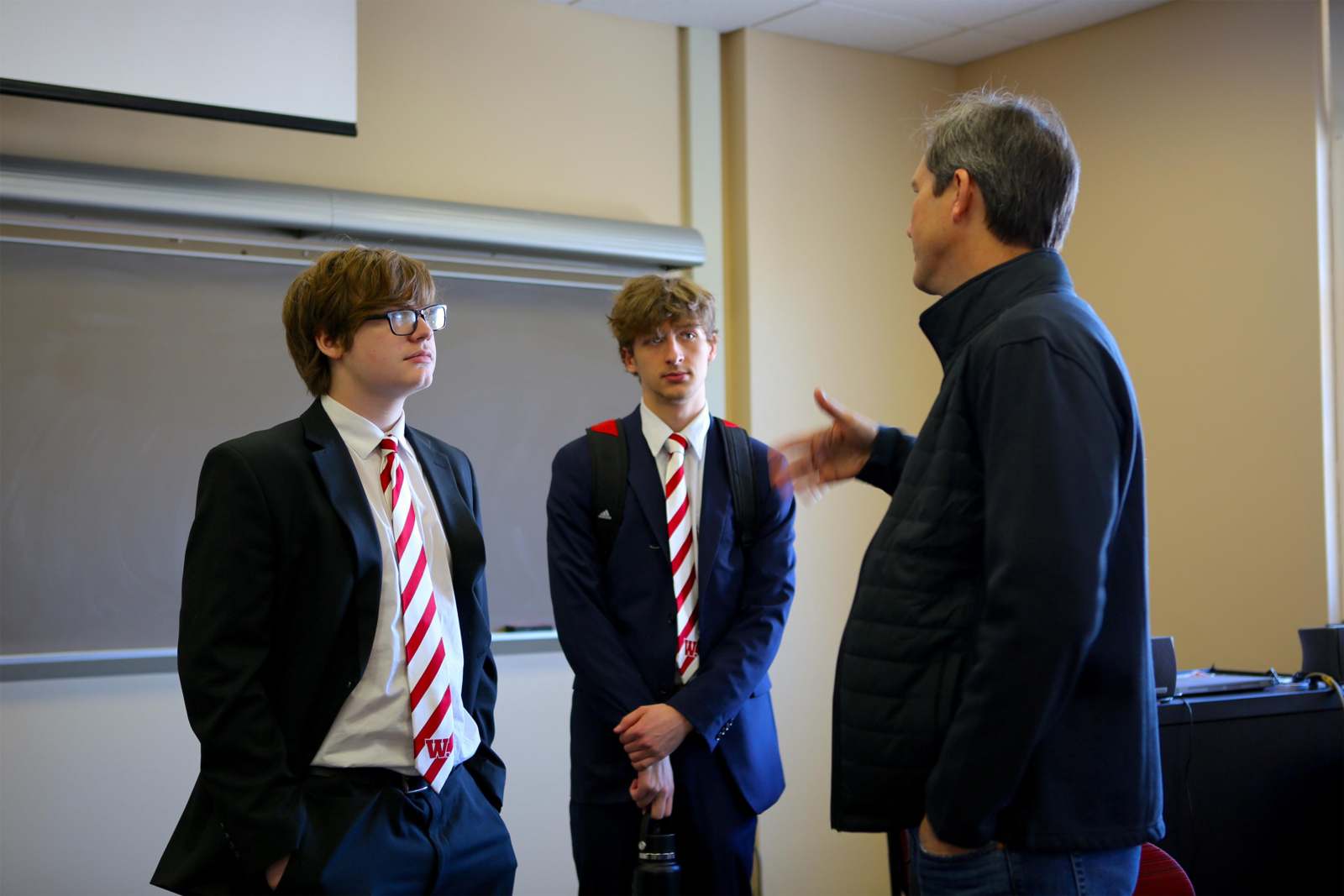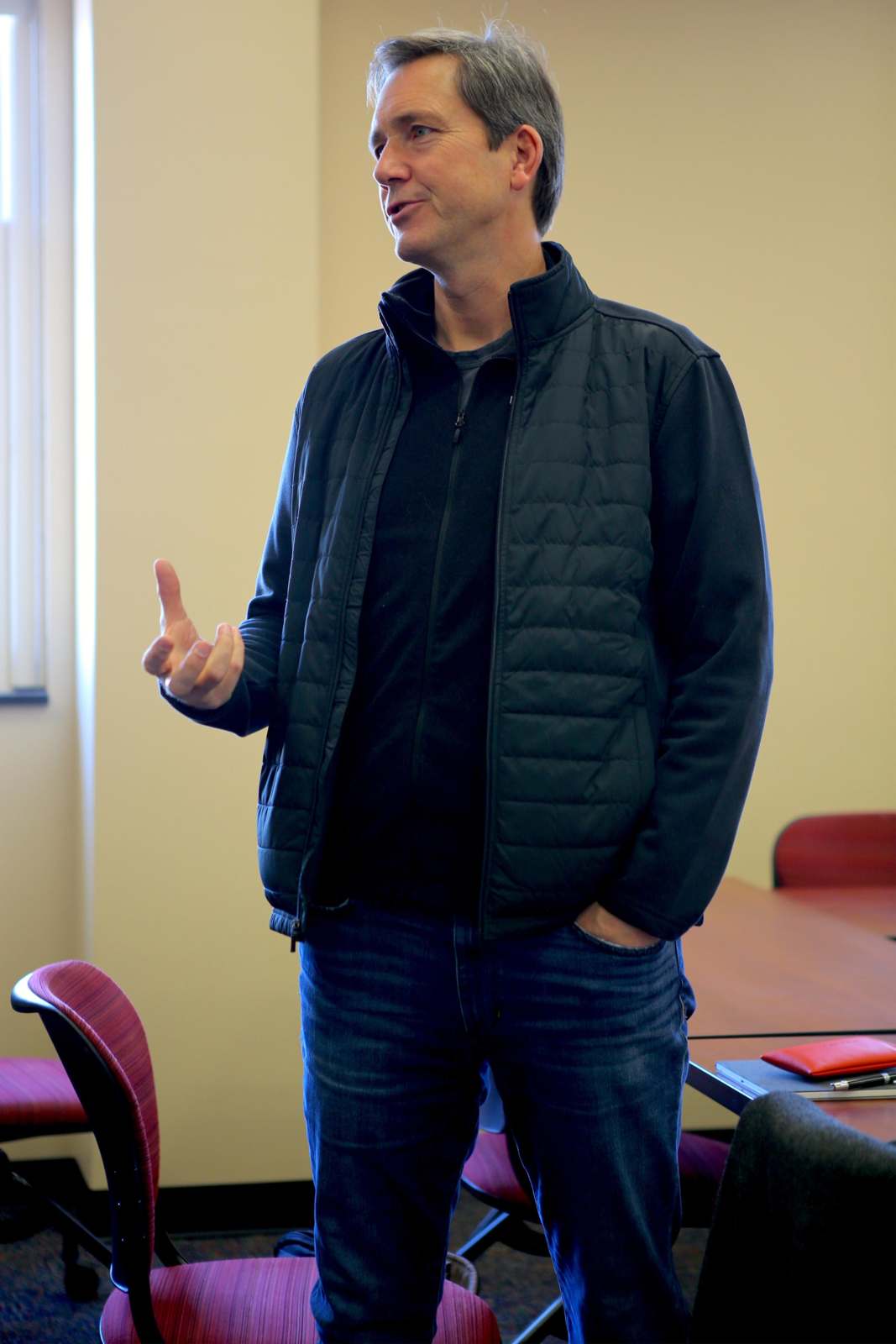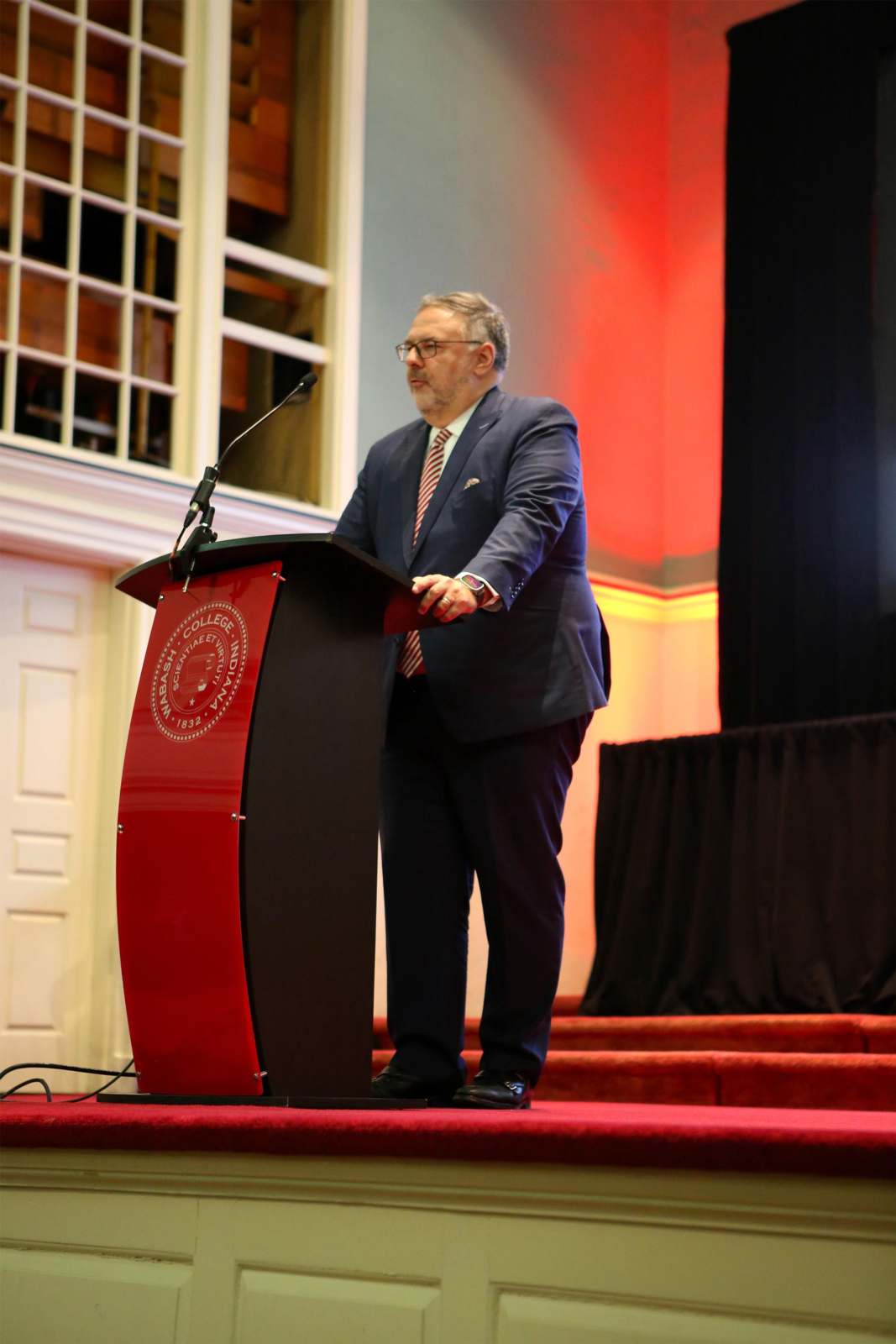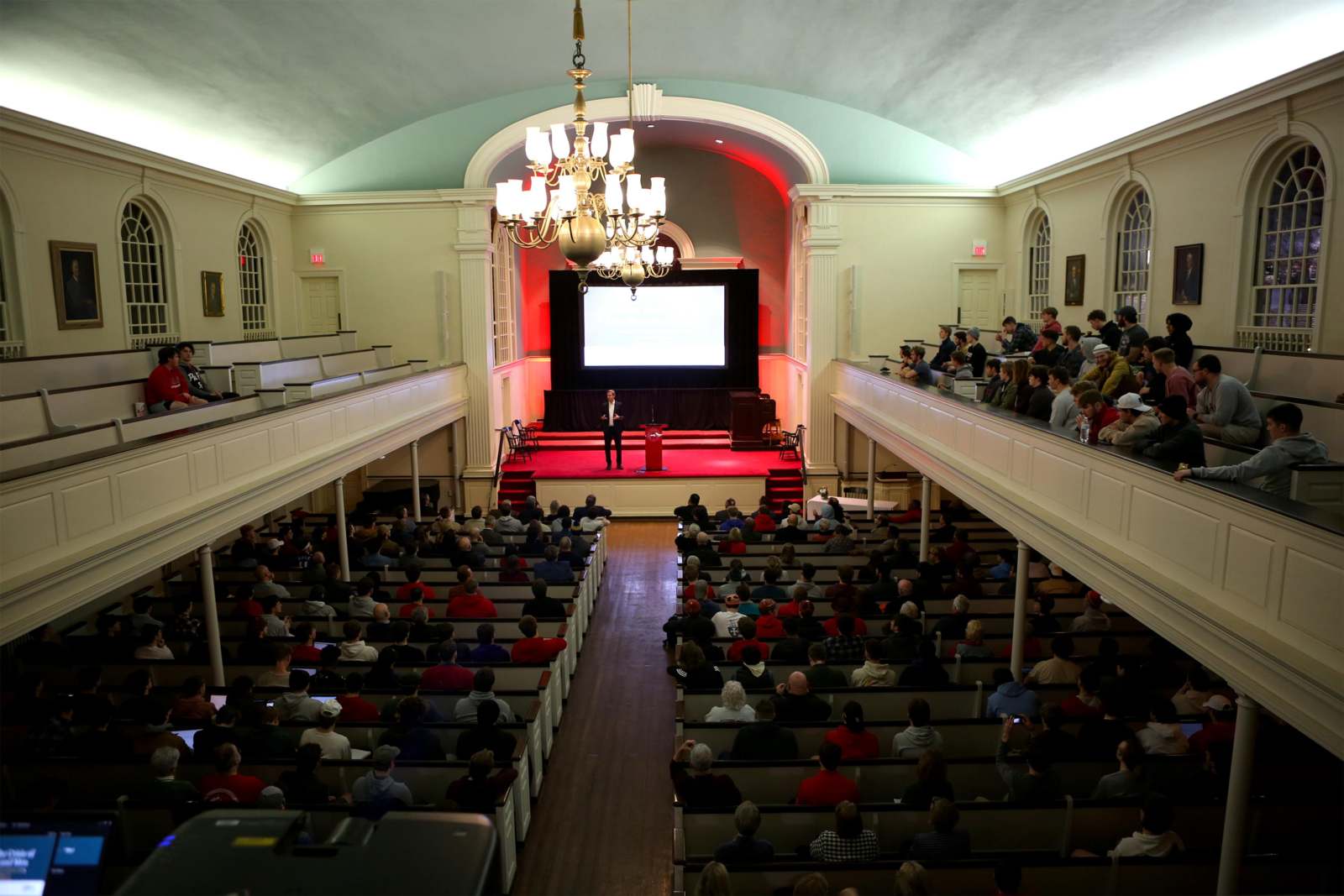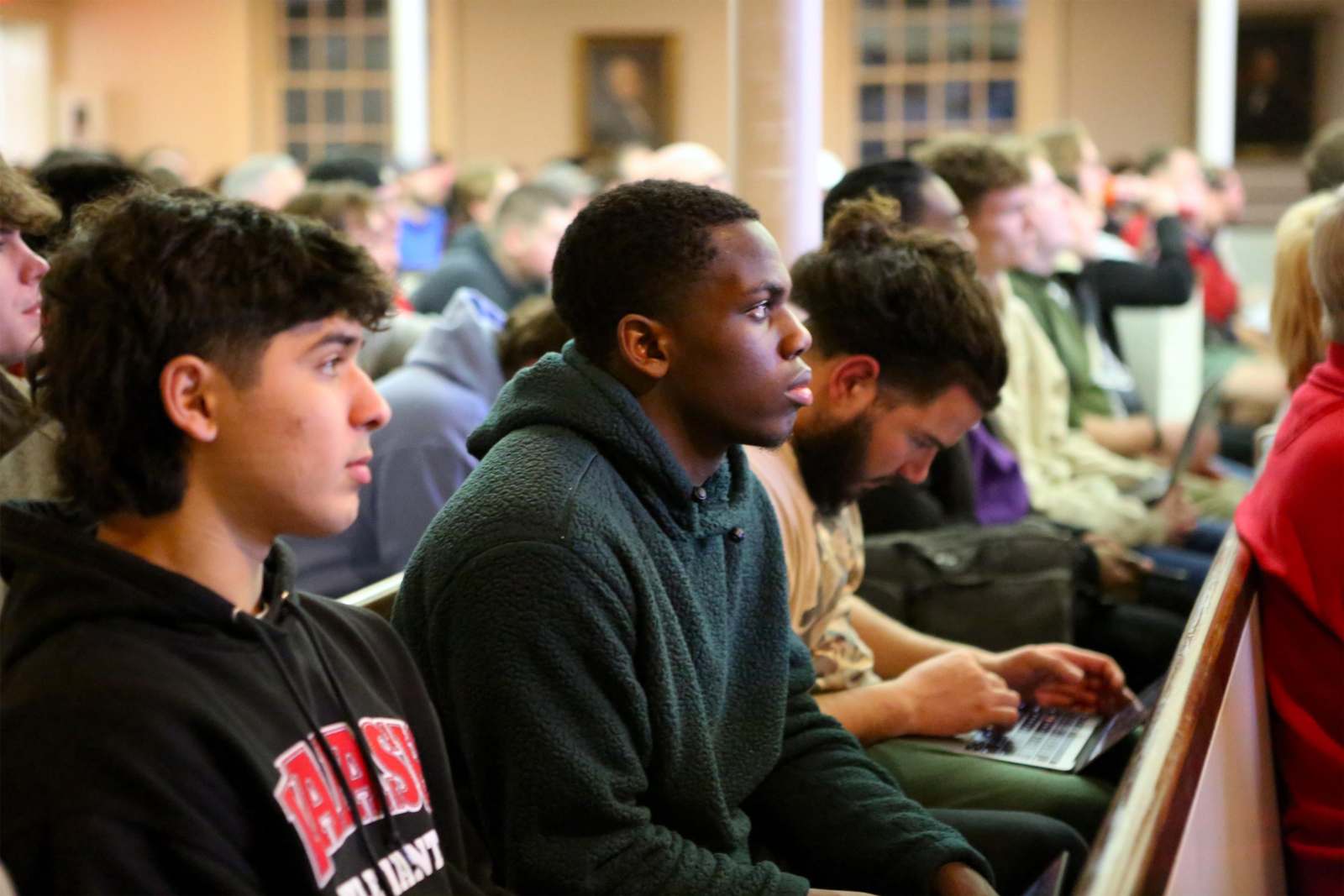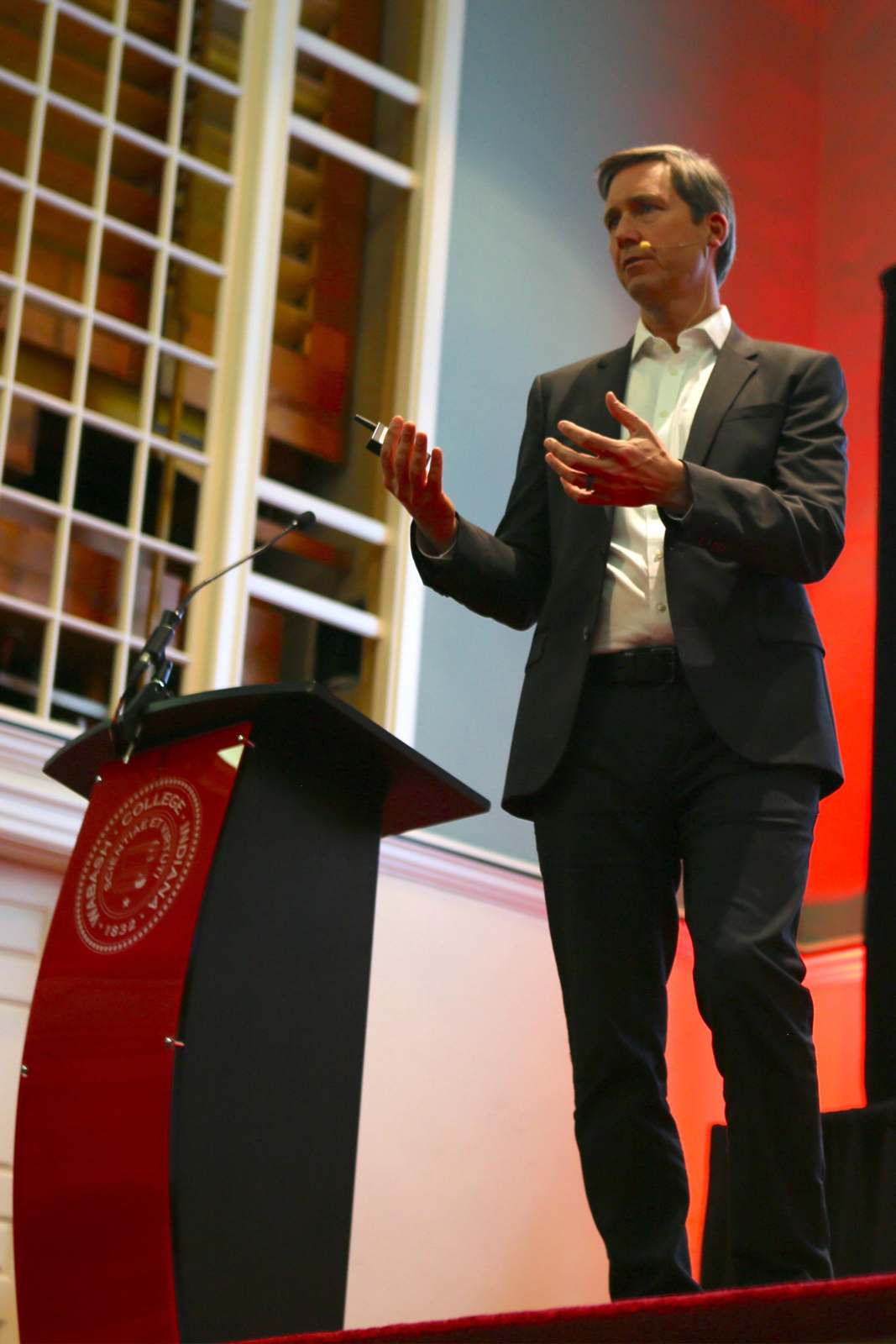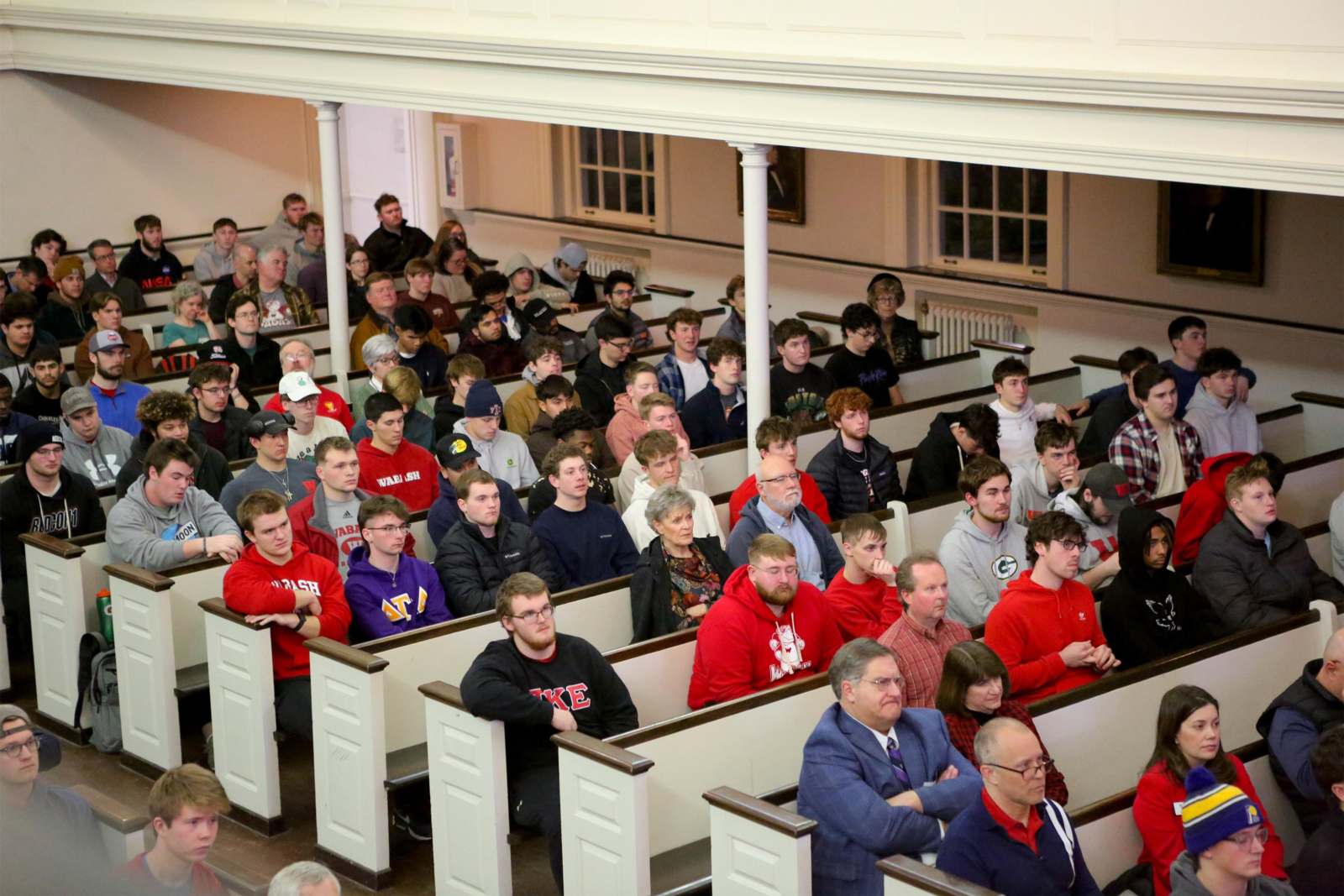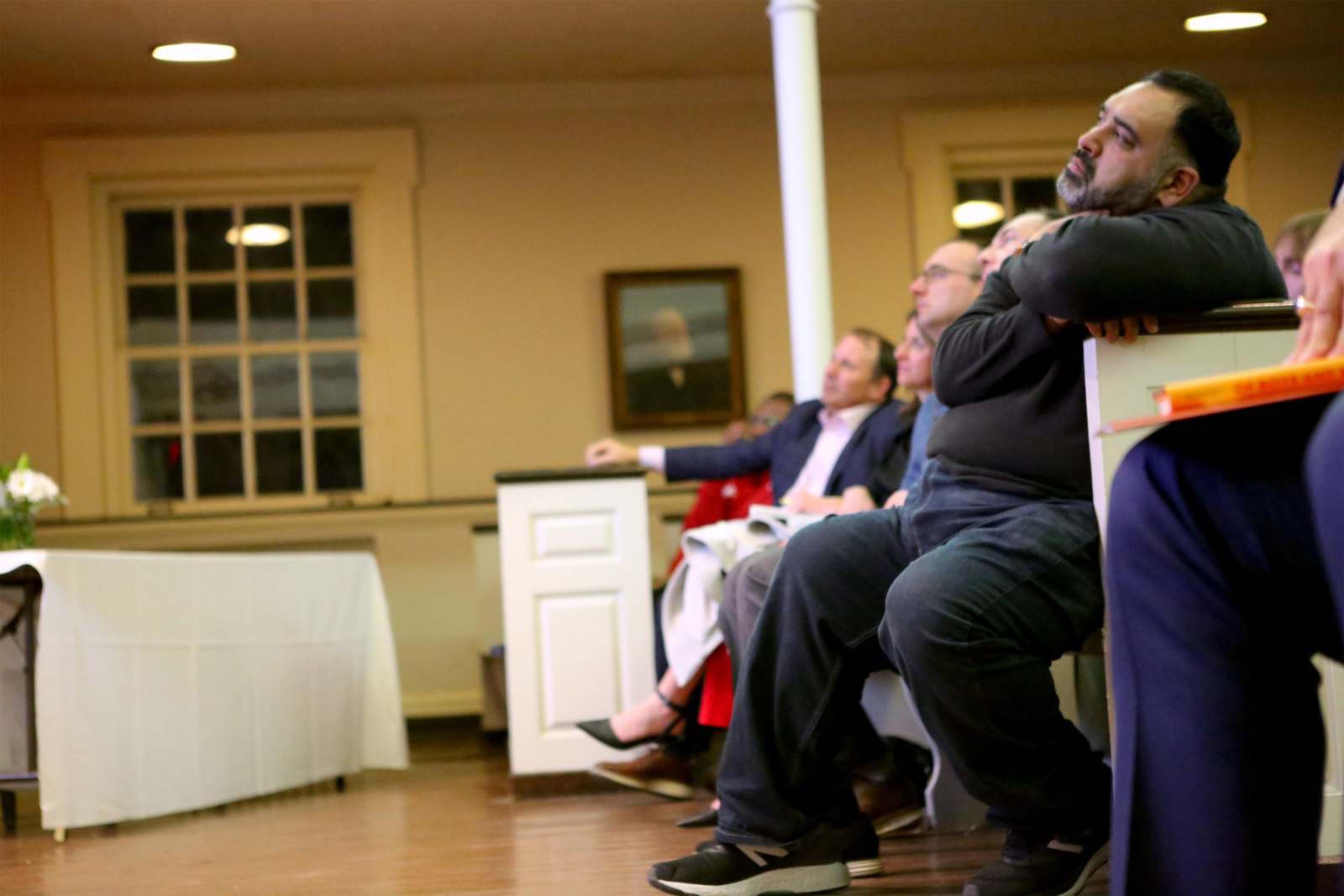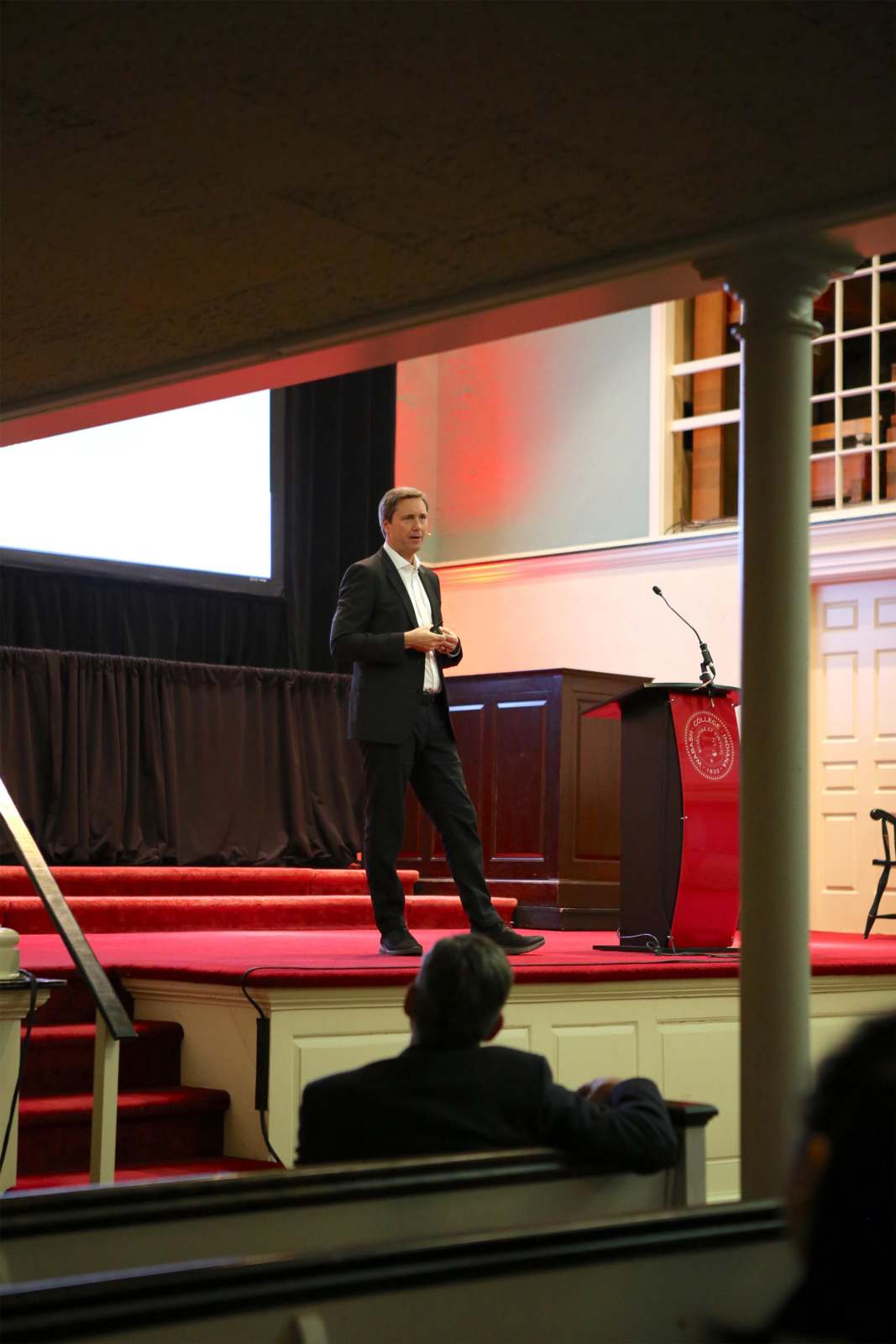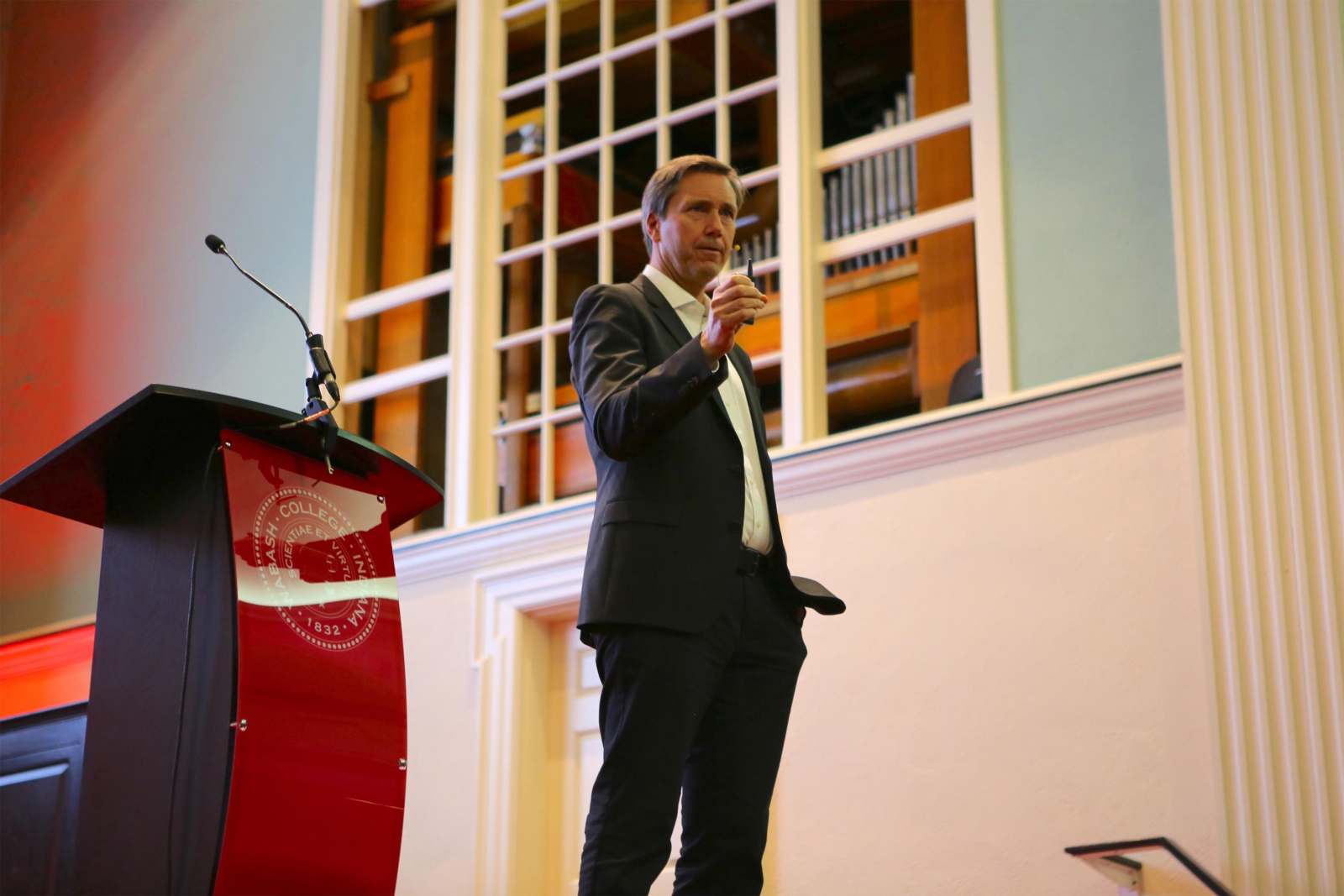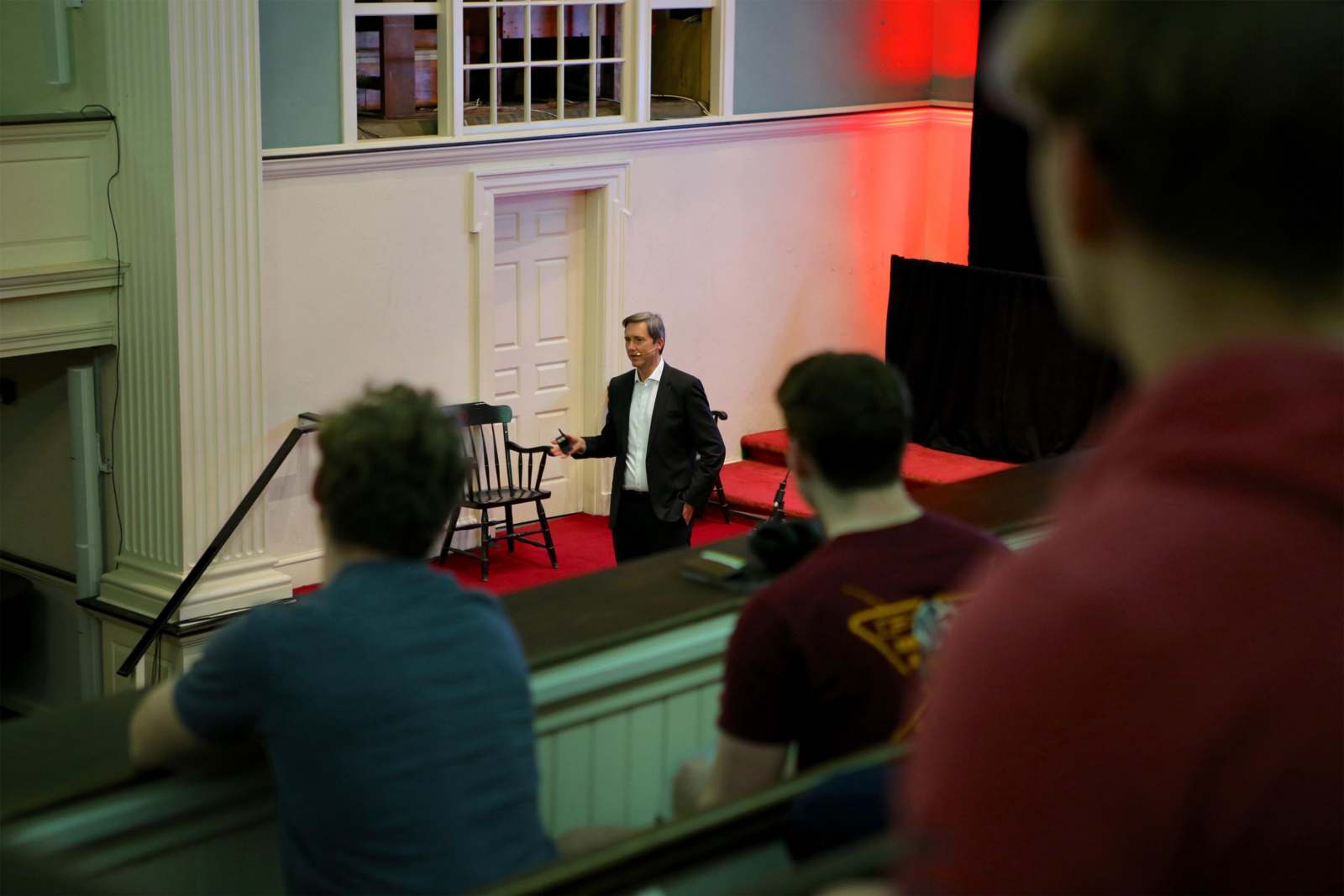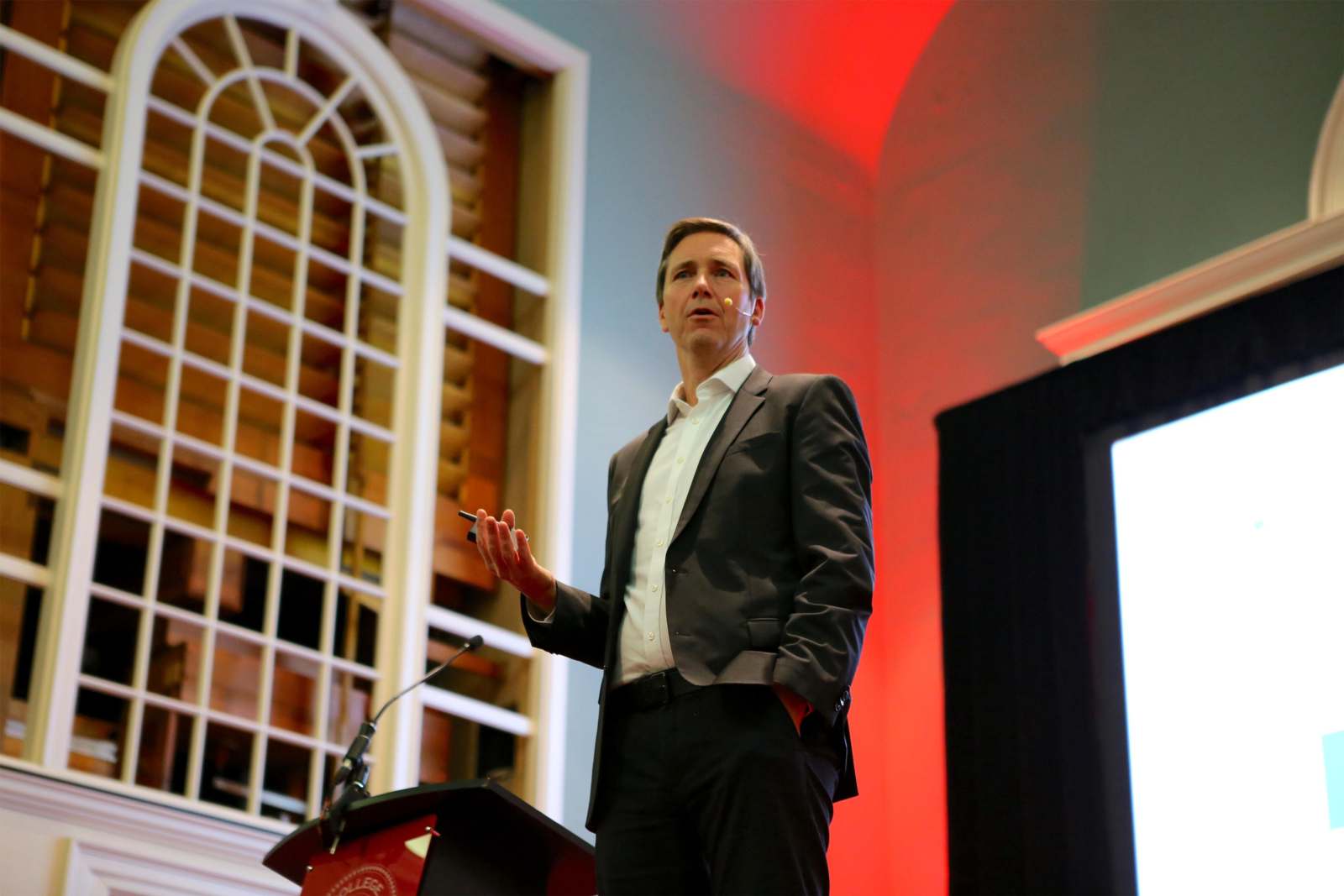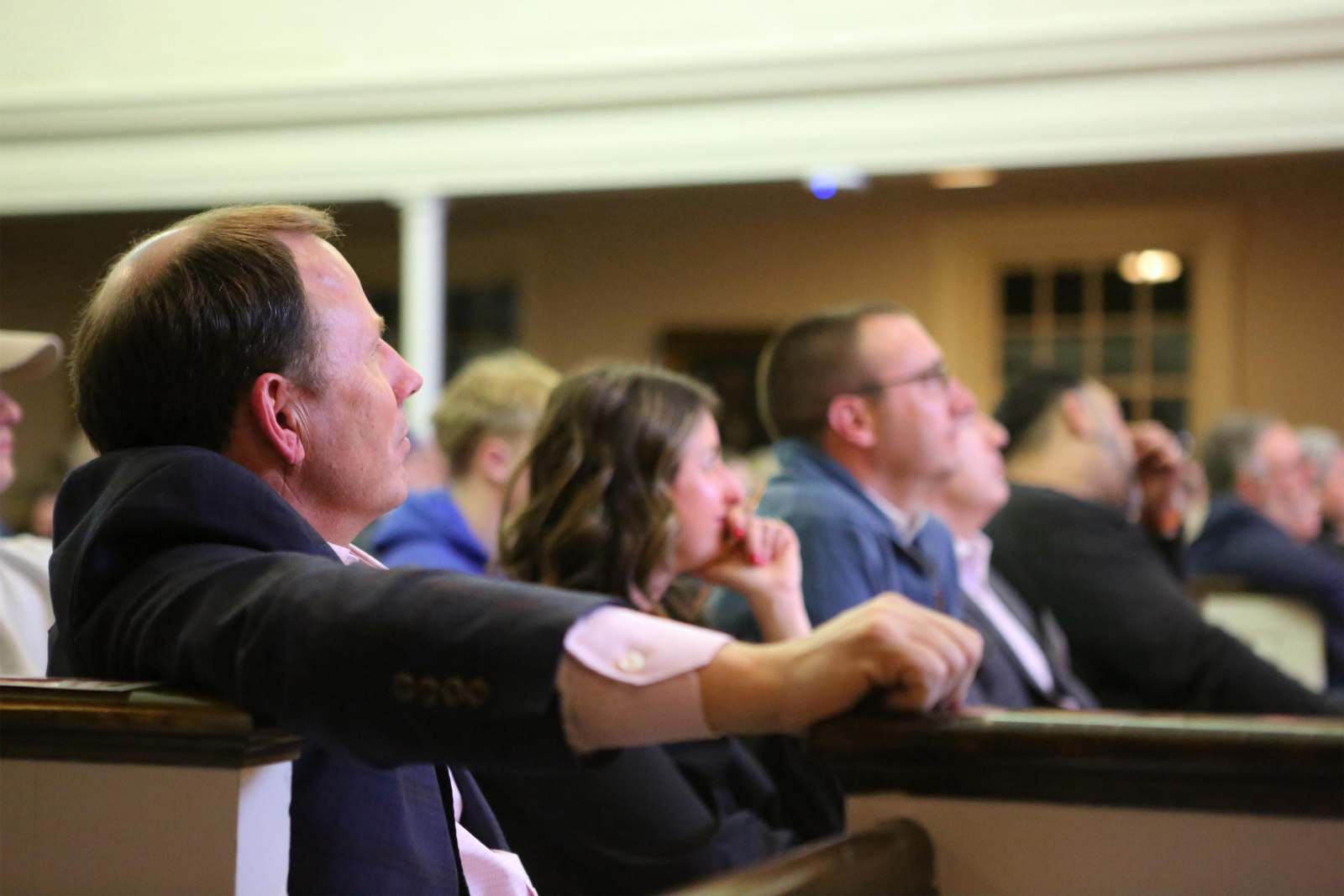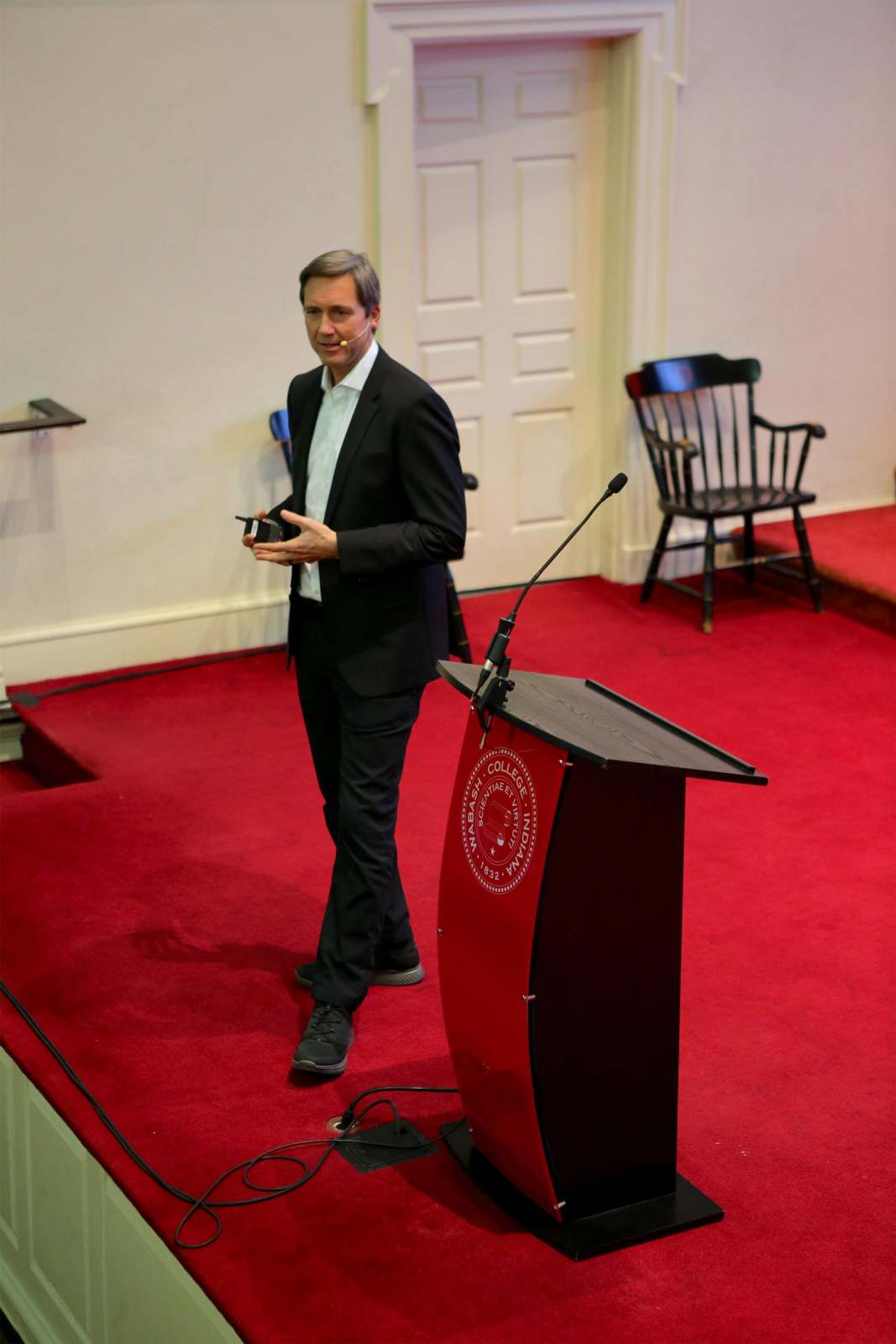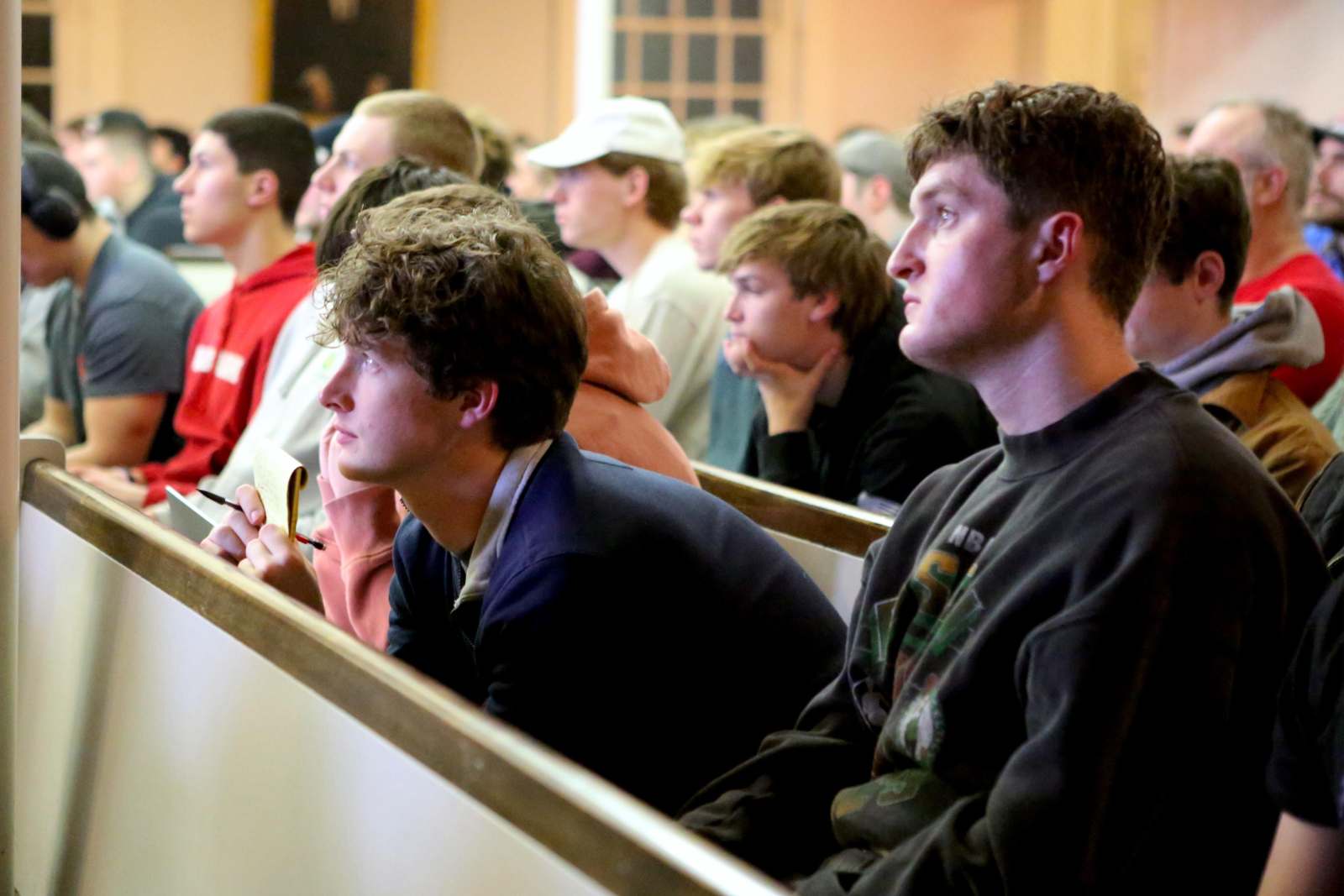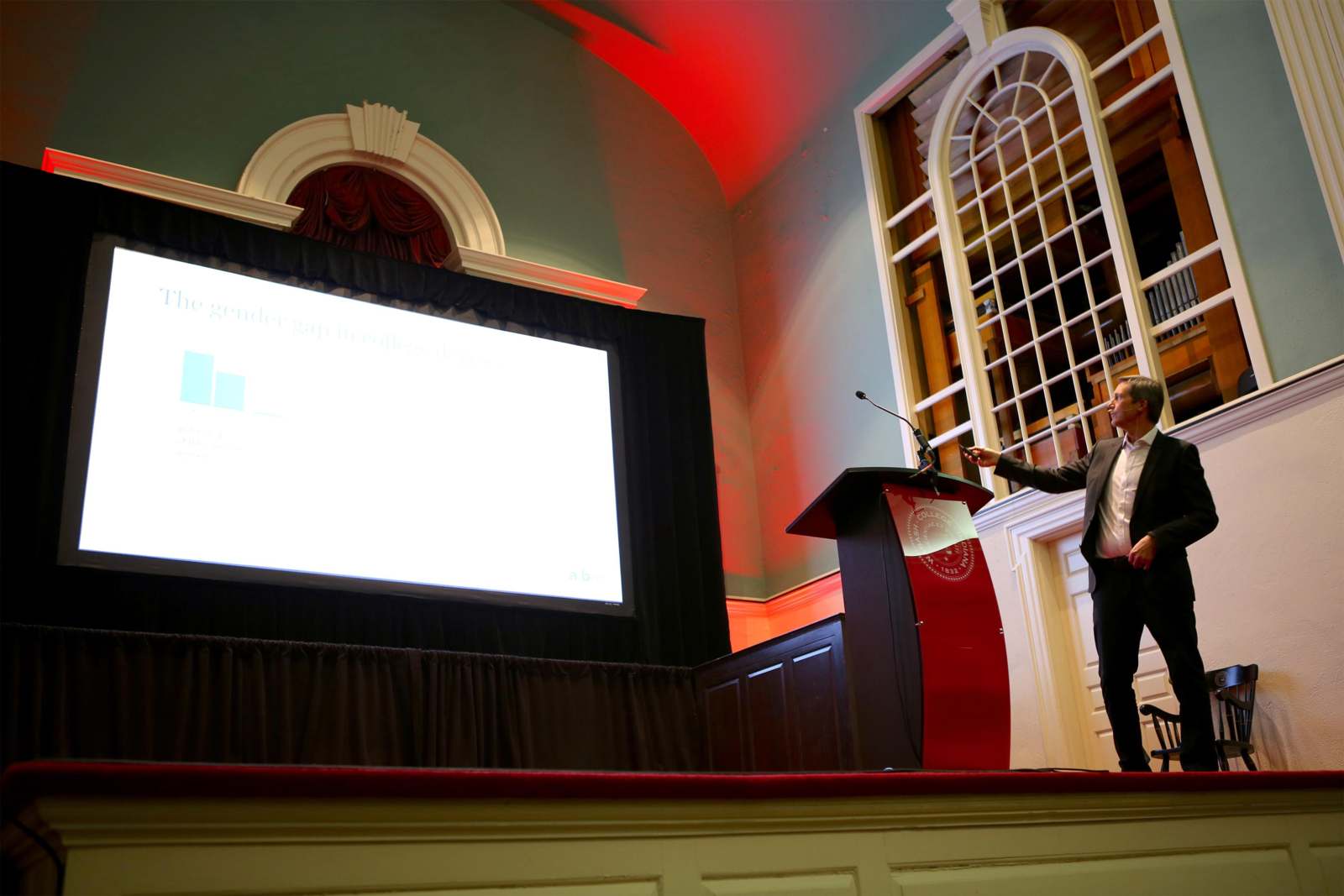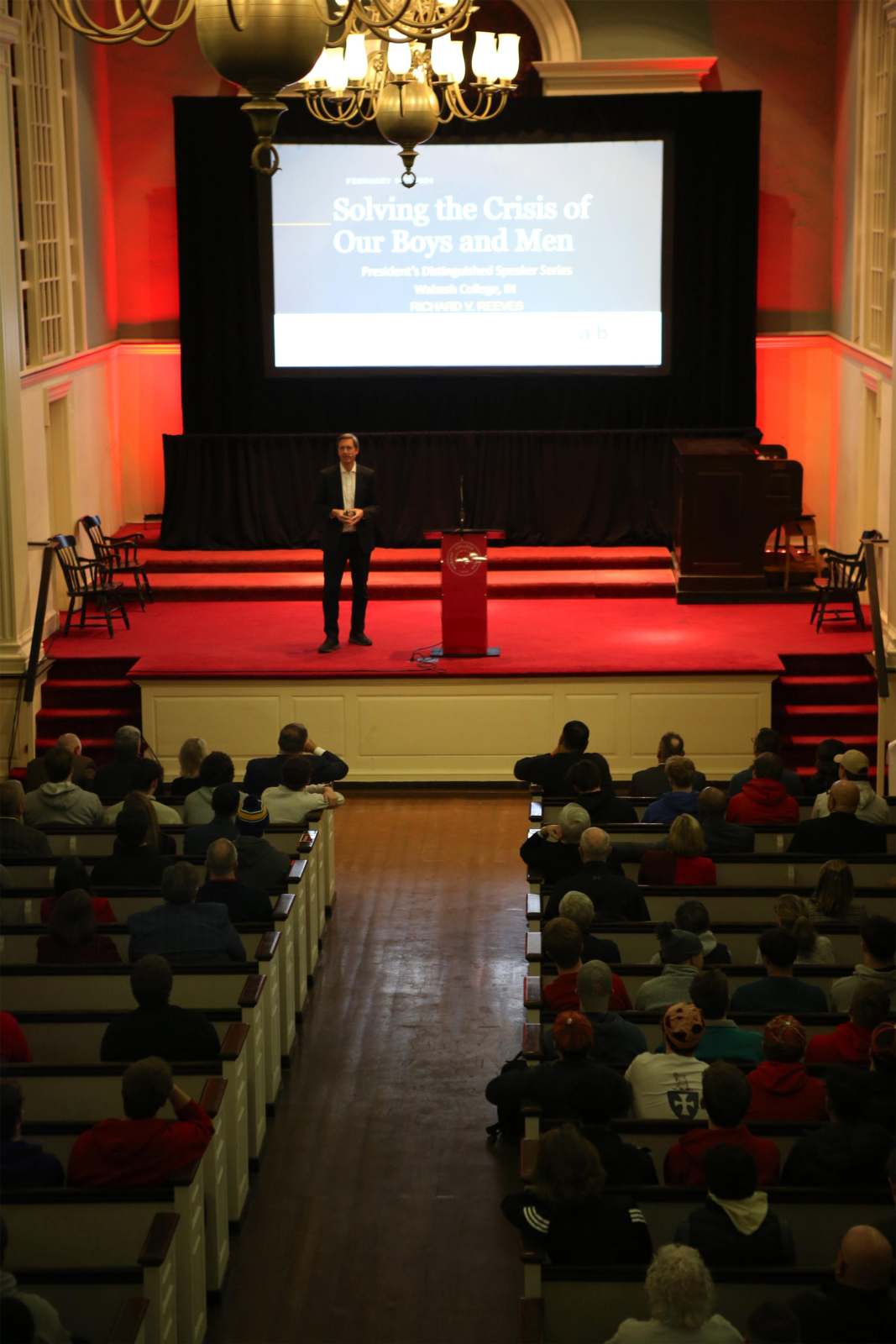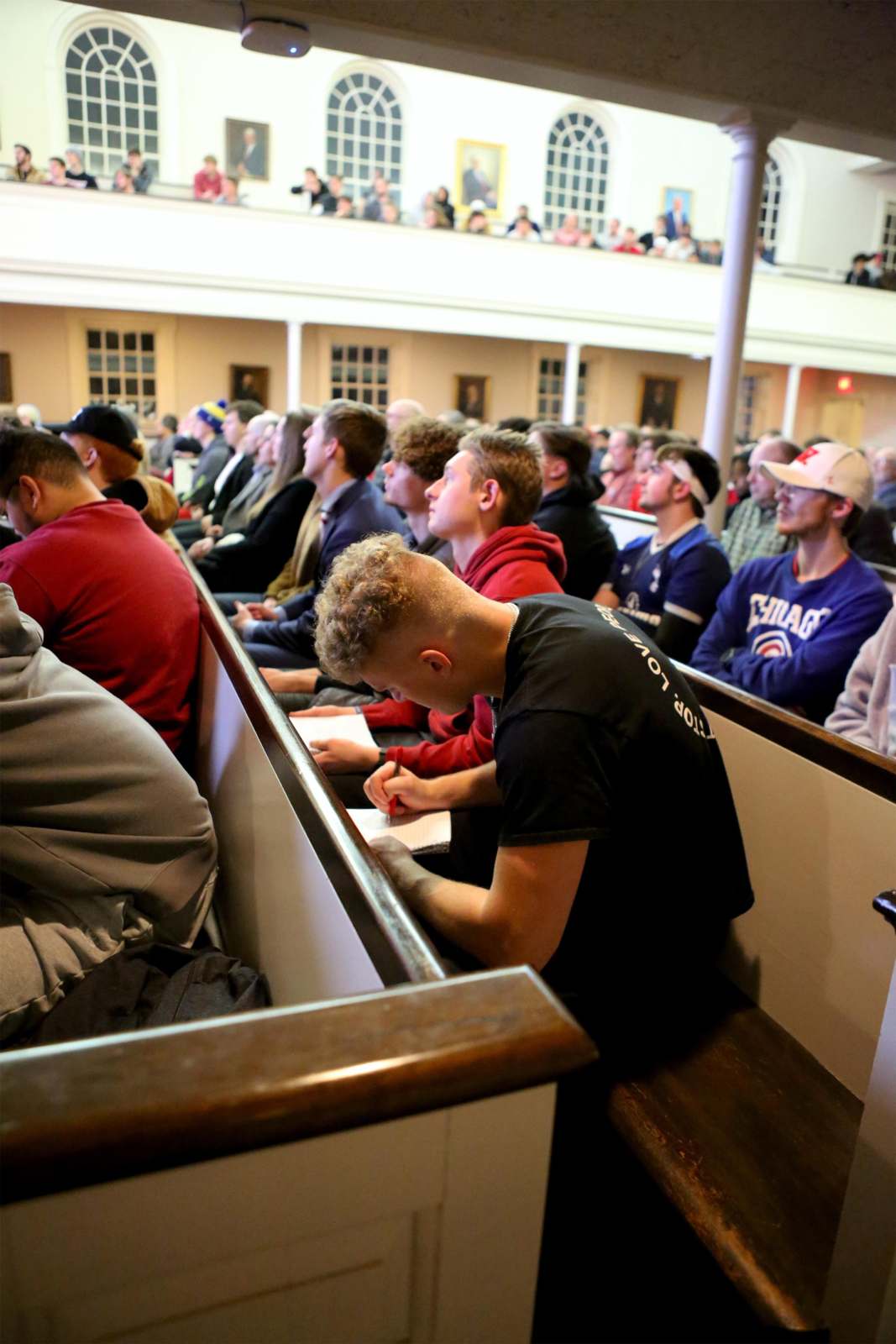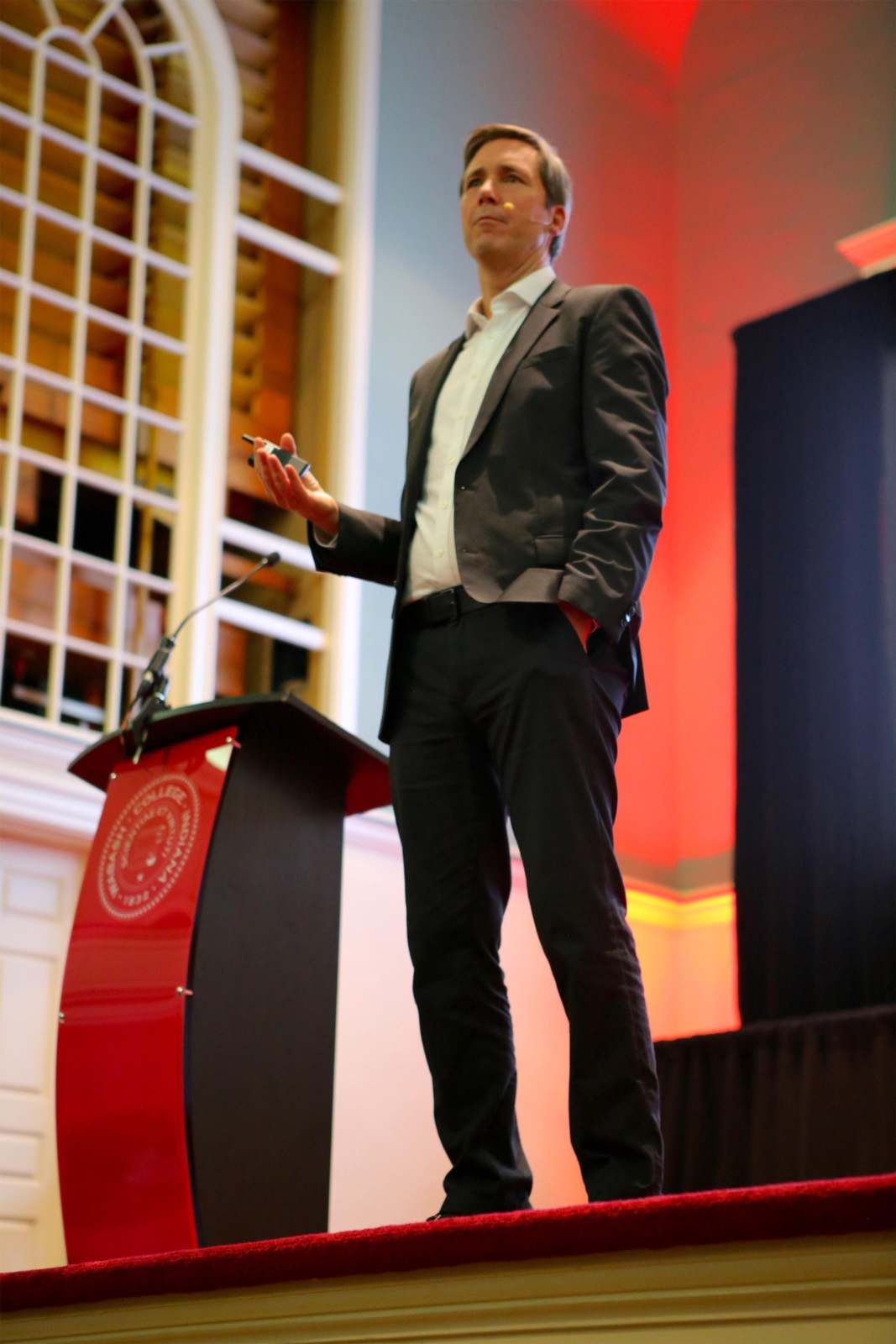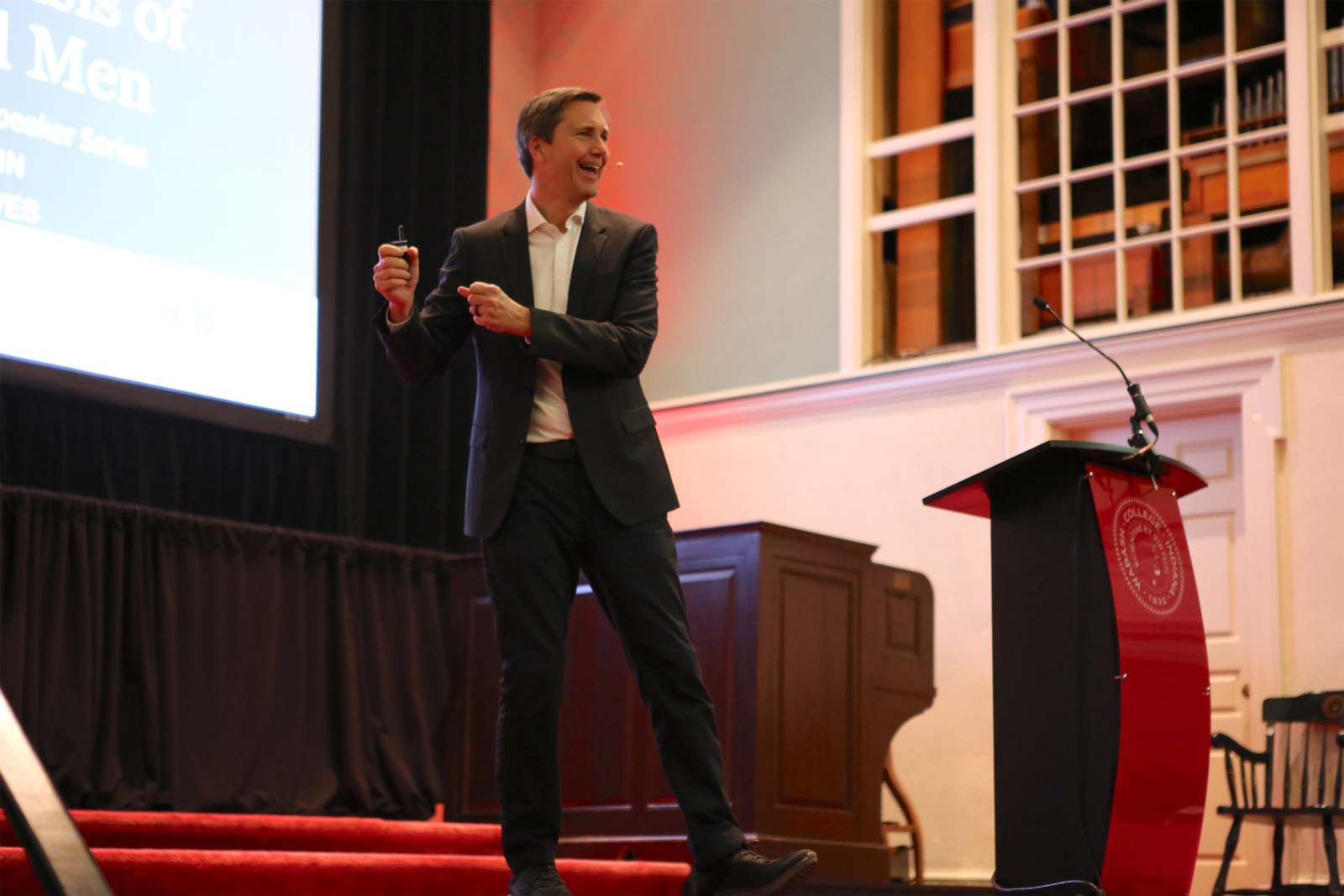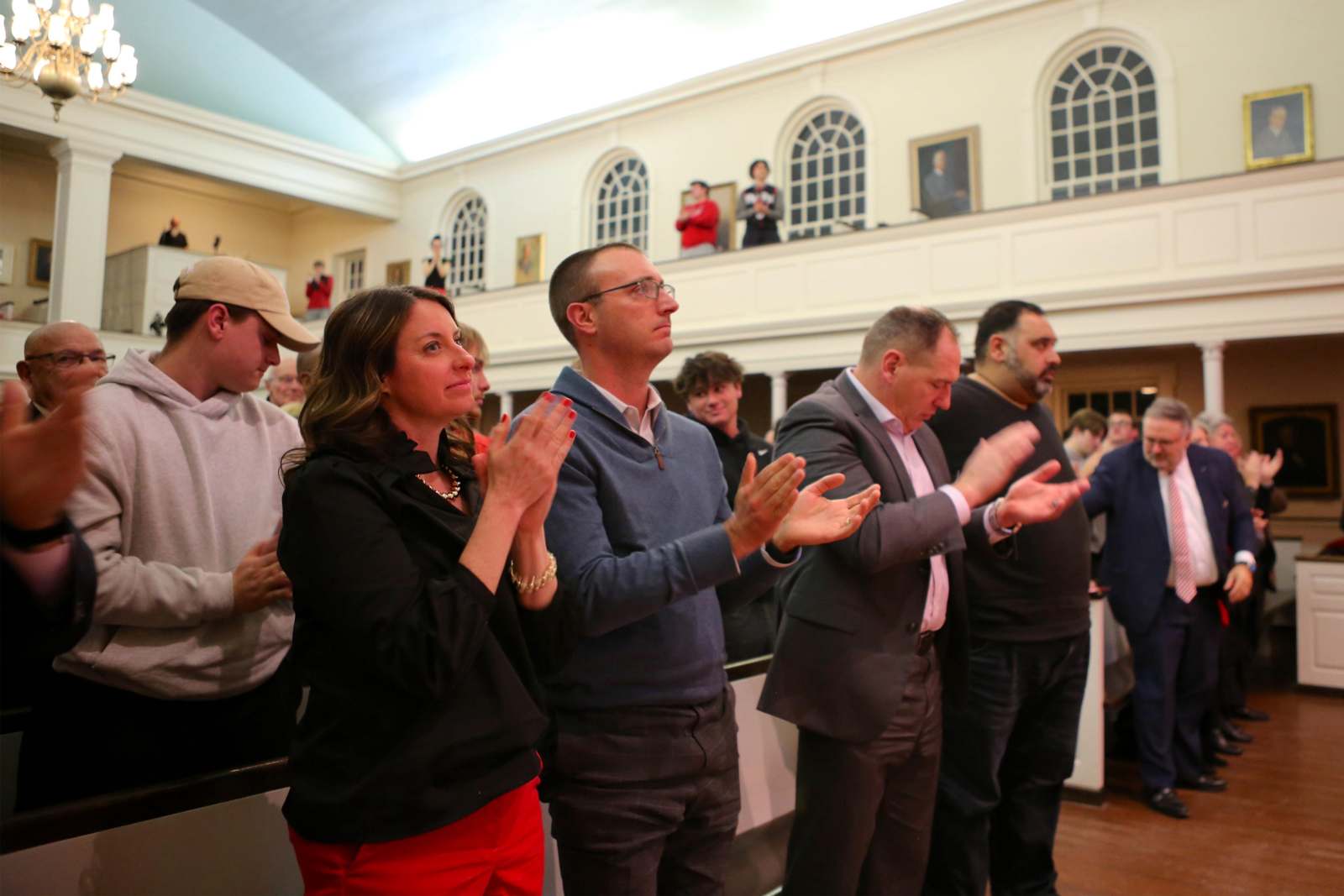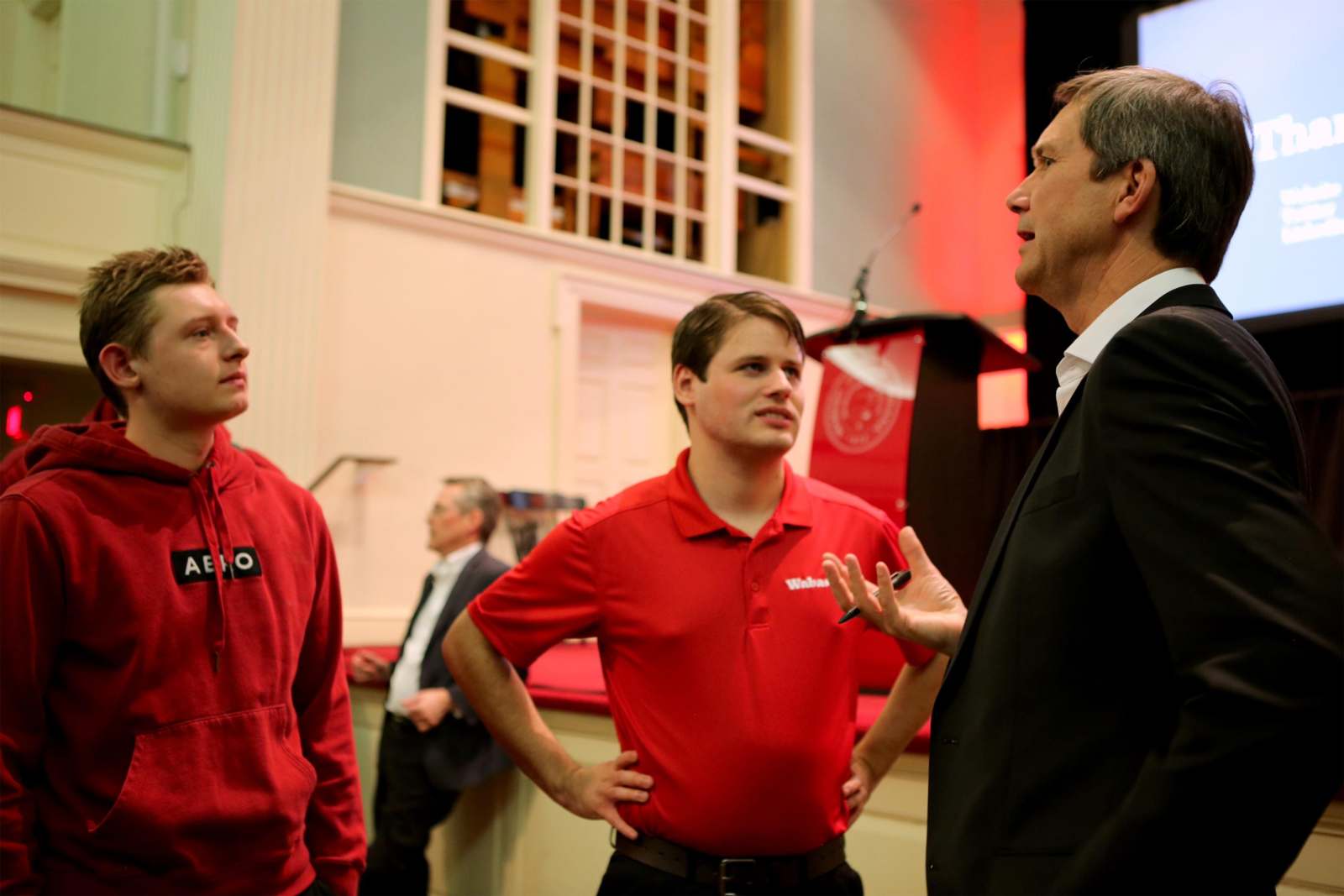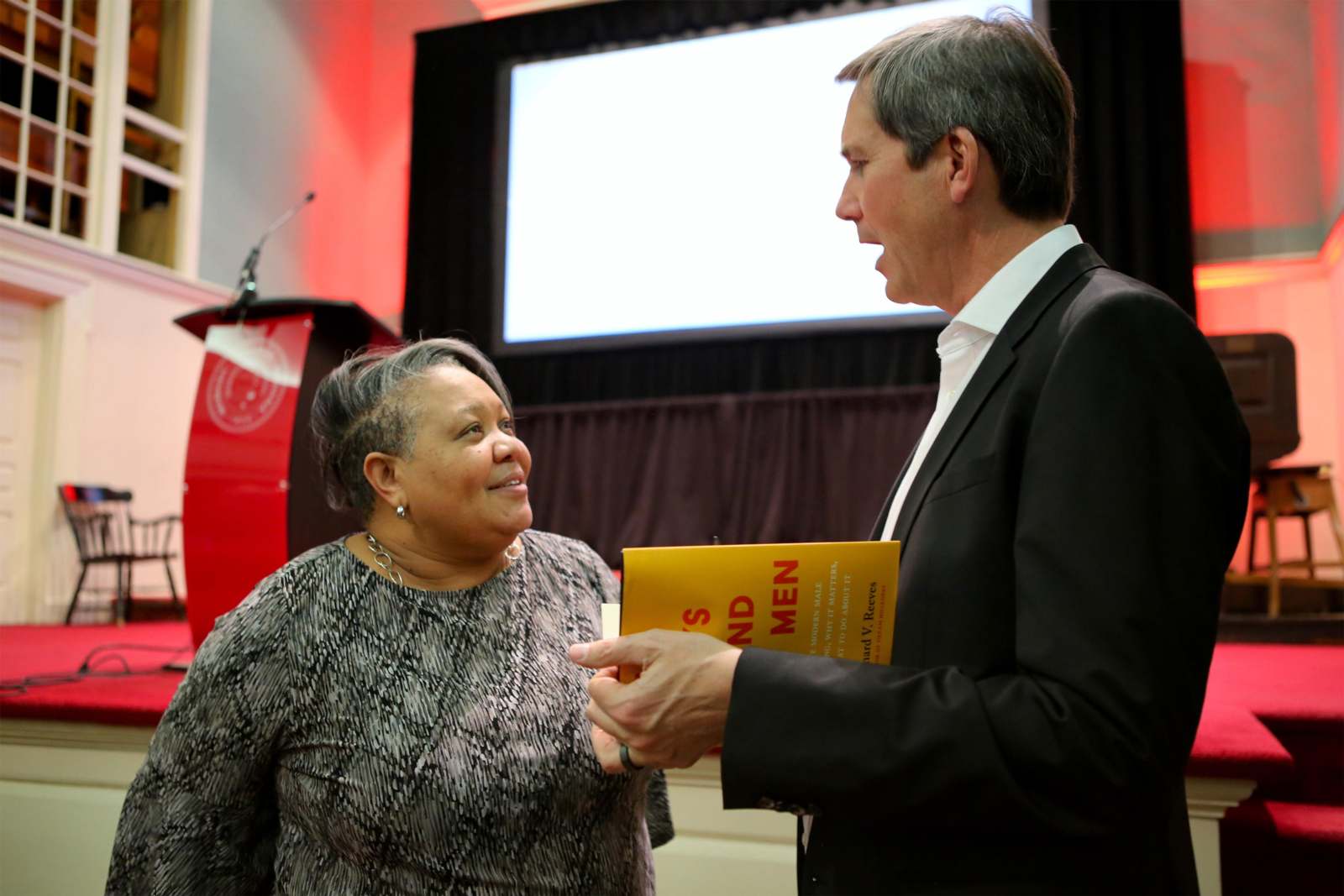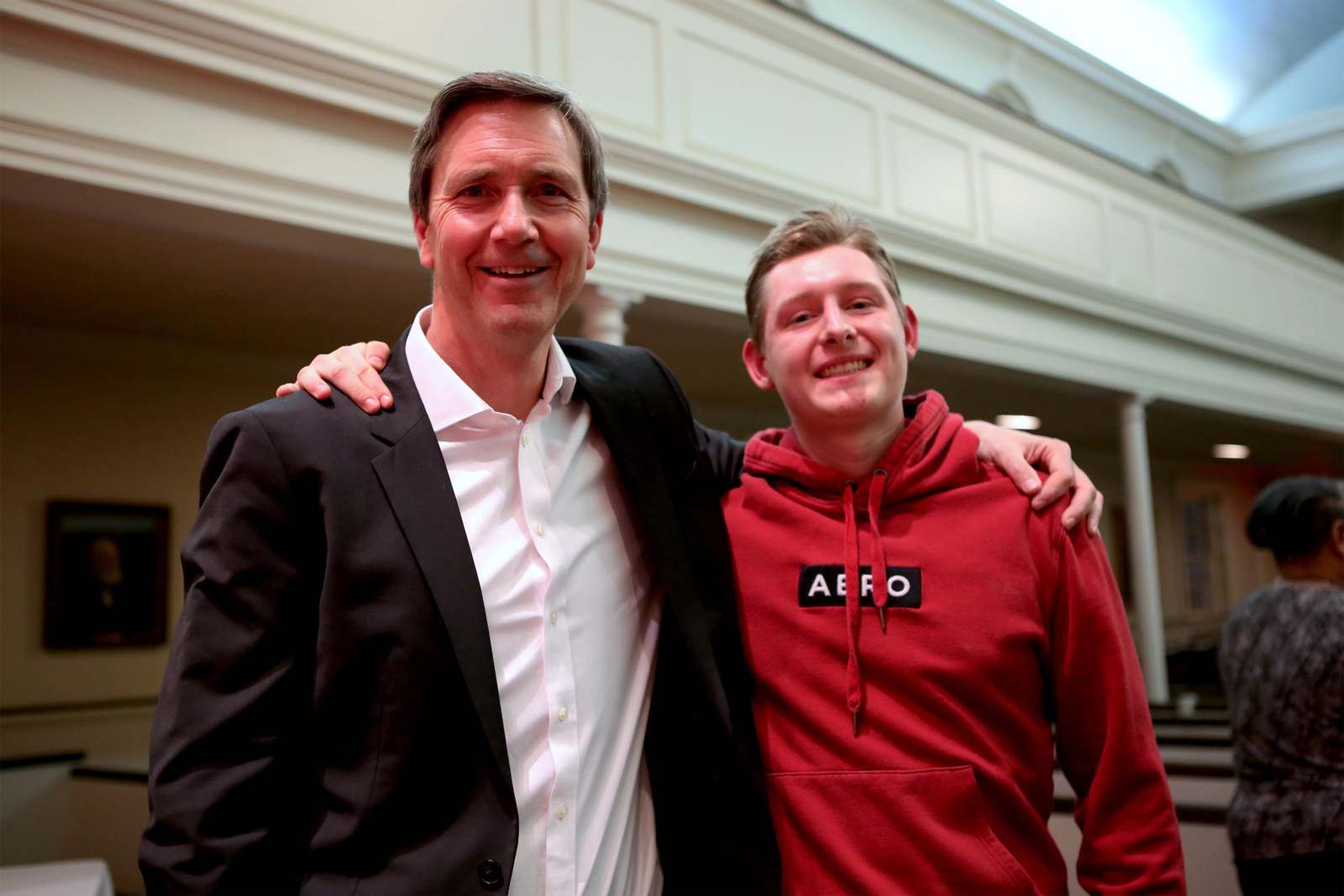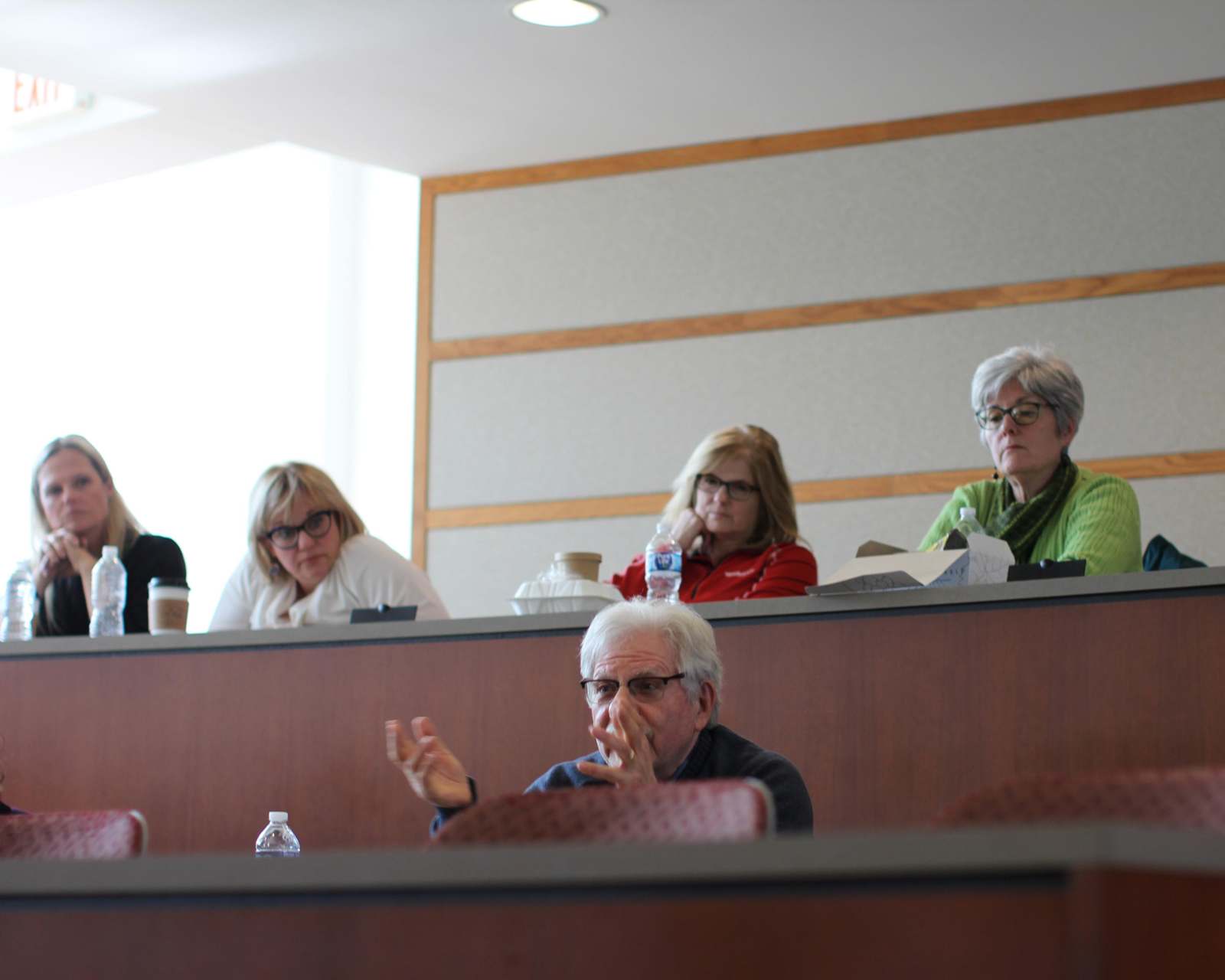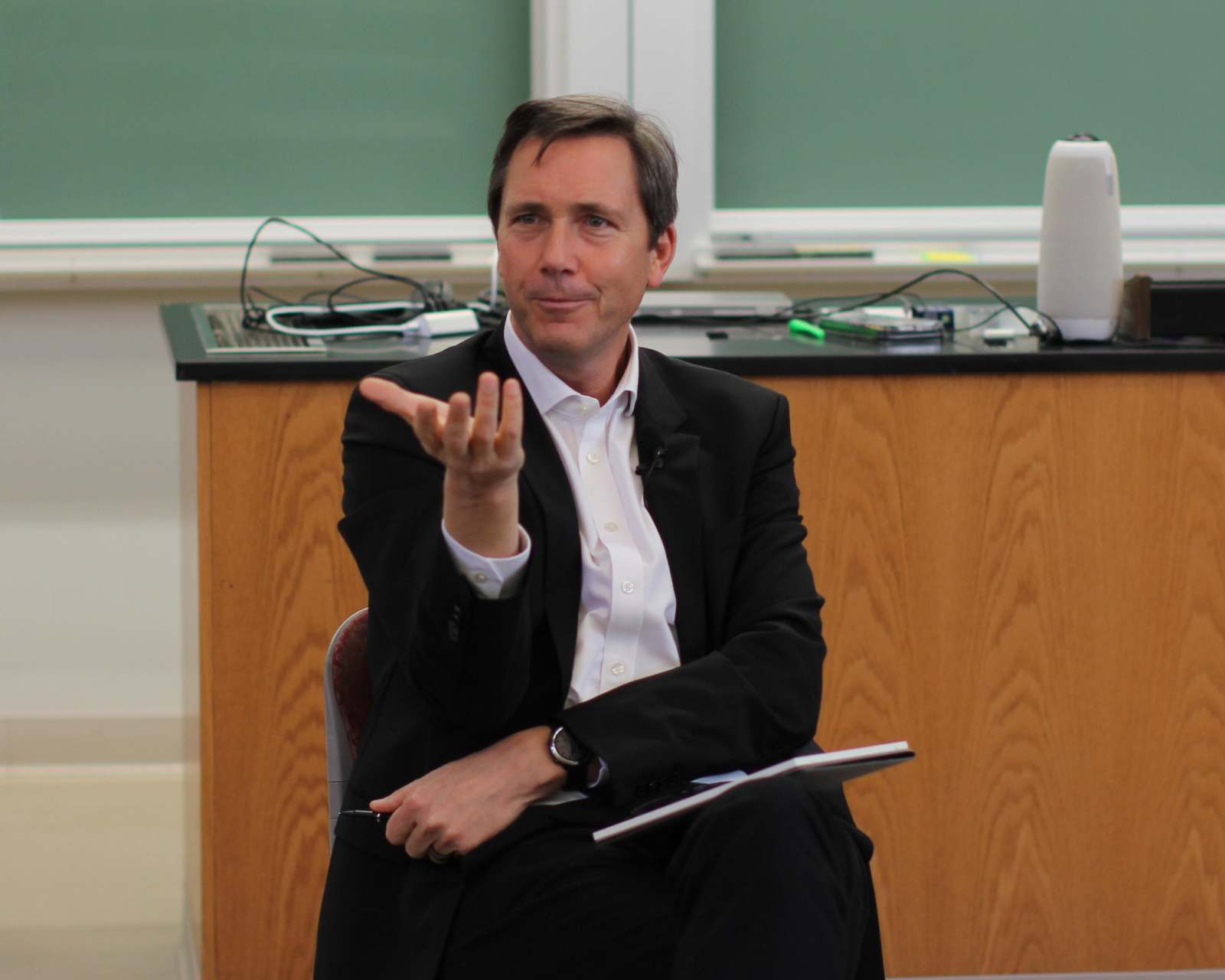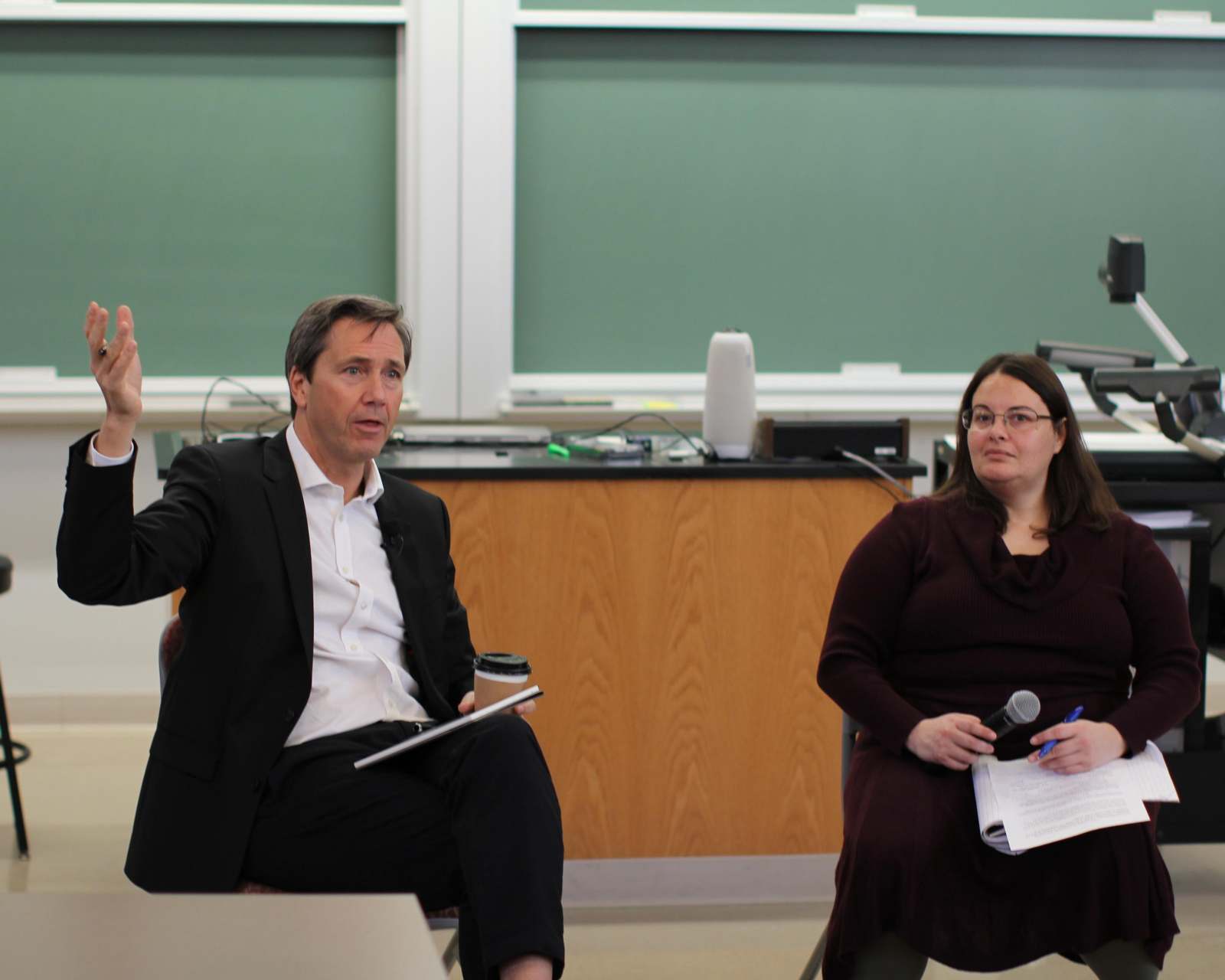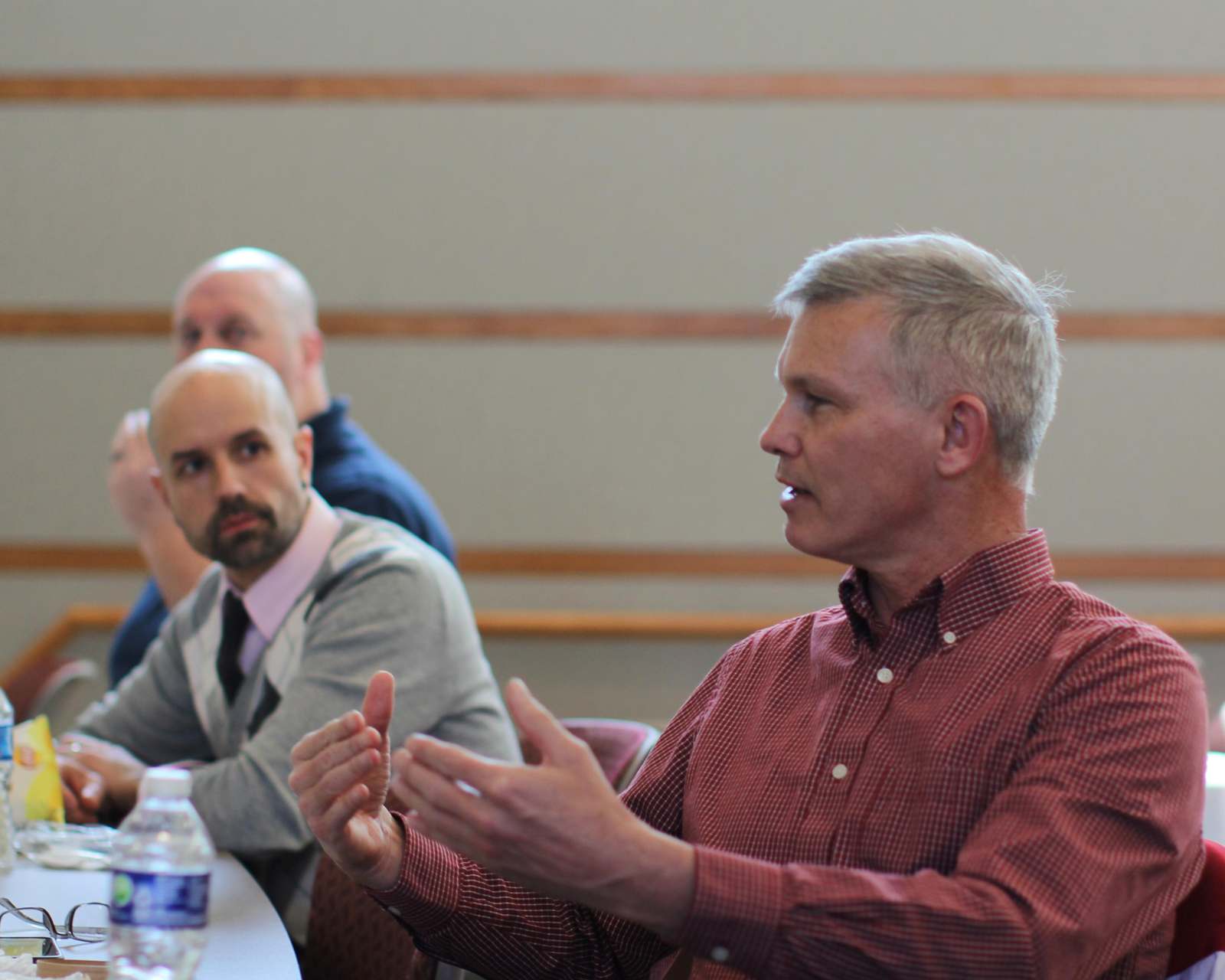PDSS Speaker Richard Reeves
Wabash hosted Dr. Richard Reeves, the nation’s foremost expert on the crisis of young men and boys, on February 19-20, 2024, as part of the President’s Distinguished Speaker Series. Reeves gave a keynote talk, “Solving the Crisis of Our Boys and Men” and met with students and staff during his visit.
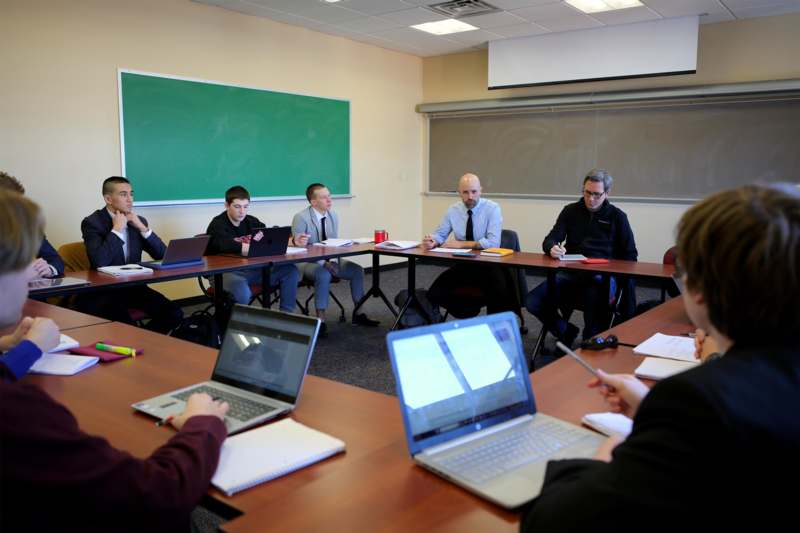
PDSS Speaker Richard Reeves, author of “Of Boys and Men: Why the Modern Male Is Struggling, Why It Matters, and What to Do About It,” joined Psychology Professor Eric Olofson’s Enduring Questions class. After being assigned to read a couple chapters of his book, students participated in a discussion with Reeves about feminism, gender roles, and stereotypes.
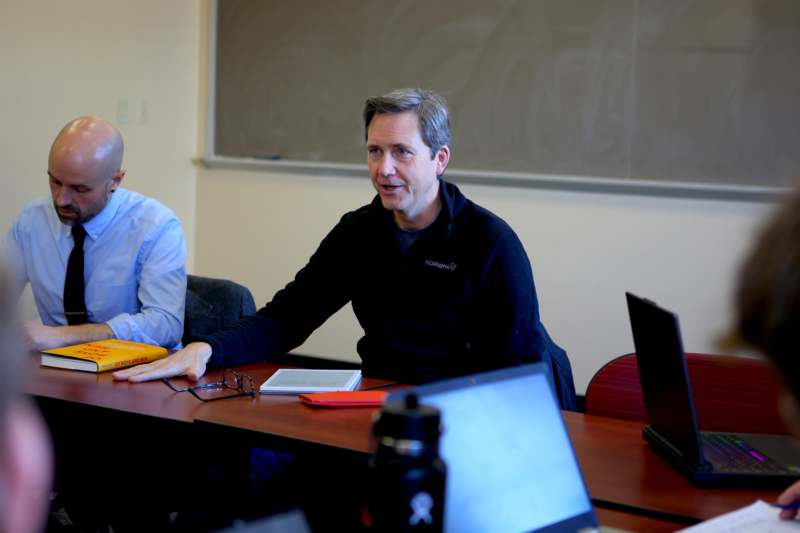
“Given how much more educated women are now and have been for some time, there’s still a very big gender pay gap. Given that women are two times better educationally, they should be earning more than men, not less,” Reeves said. “Here, (in America) a woman with a master’s degree earns about the same as a guy with a bachelor’s degree. A woman with a bachelor’s degree earns about the same as a guy with an associate's degree, and so on all the way down.”
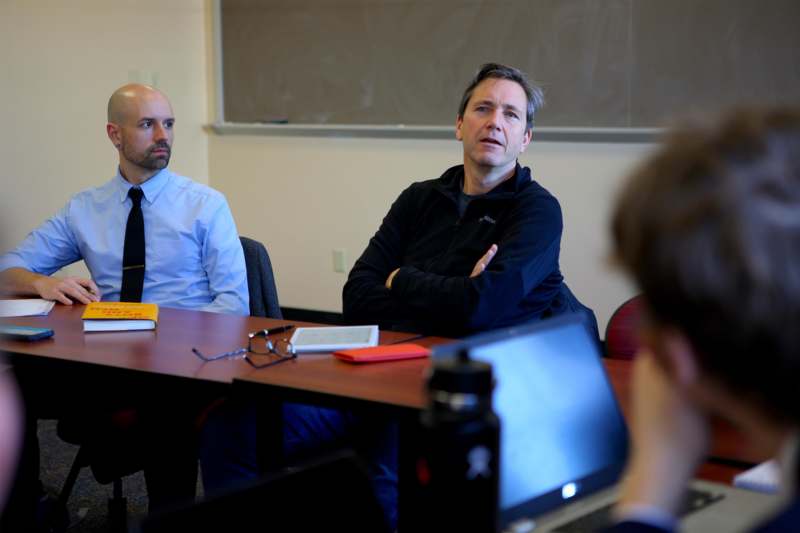
“What’s driving that,” Reeves asked in response to the gender pay gap. “I think there’s two big things. One is the different in time investment between mothers and fathers in raising kids. The second is occupational segregation. if you look at a profession that is large in size, has high levels of education credentials, and doesn’t pay very well, they are all female dominated. Teaching, psychology, and social work are some of the biggest examples.”

PDSS Speaker Richard Reeves, author of “Of Boys and Men: Why the Modern Male Is Struggling, Why It Matters, and What to Do About It,” joined Psychology Professor Eric Olofson’s Enduring Questions class. After being assigned to read a couple chapters of his book, students participated in a discussion with Reeves about feminism, gender roles, and stereotypes.
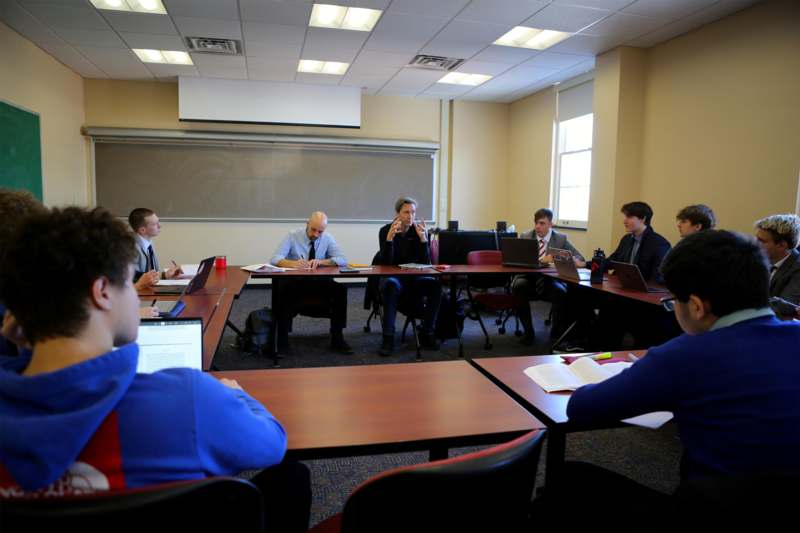
“So many of our problems stemmed from the inability or unwillingness to imagine overlapping distributions,” Reeves said. “On the one hand, you get this sort of biological essentialist saying, ‘Well, women are more nurturing than men, so obviously nurses are going to be female. Or men are more into things and have more spatial awareness, so engineers are always going to be men. Then the other side of the argument is that all differences between men and women are completely socialized. I believe the truth is between the two.”
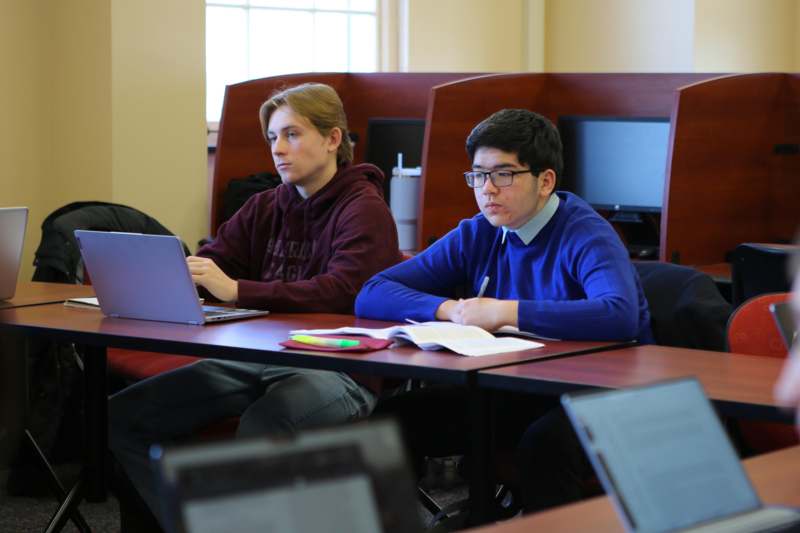
PDSS Speaker Richard Reeves, author of “Of Boys and Men: Why the Modern Male Is Struggling, Why It Matters, and What to Do About It,” joined Psychology Professor Eric Olofson’s Enduring Questions class. After being assigned to read a couple chapters of his book, students participated in a discussion with Reeves about feminism, gender roles, and stereotypes.
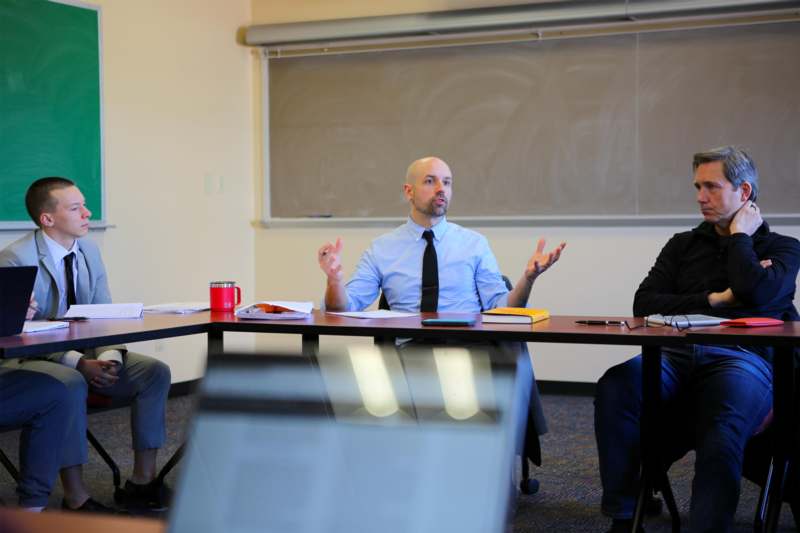
PDSS Speaker Richard Reeves, author of “Of Boys and Men: Why the Modern Male Is Struggling, Why It Matters, and What to Do About It,” joined Psychology Professor Eric Olofson’s Enduring Questions class. After being assigned to read a couple chapters of his book, students participated in a discussion with Reeves about feminism, gender roles, and stereotypes.
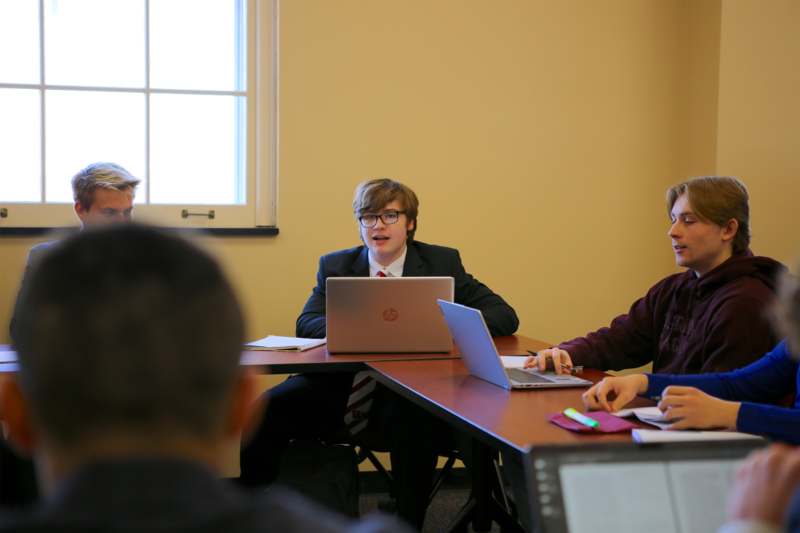
PDSS Speaker Richard Reeves, author of “Of Boys and Men: Why the Modern Male Is Struggling, Why It Matters, and What to Do About It,” joined Psychology Professor Eric Olofson’s Enduring Questions class. After being assigned to read a couple chapters of his book, students participated in a discussion with Reeves about feminism, gender roles, and stereotypes.
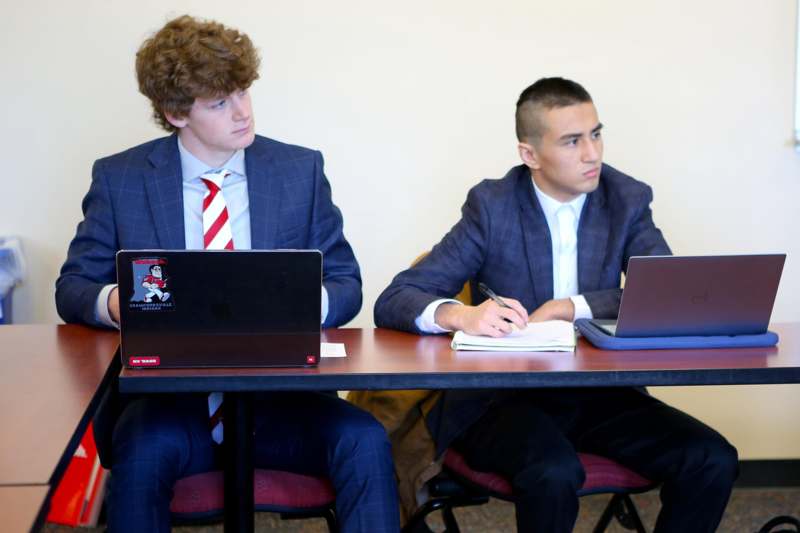
PDSS Speaker Richard Reeves, author of “Of Boys and Men: Why the Modern Male Is Struggling, Why It Matters, and What to Do About It,” joined Psychology Professor Eric Olofson’s Enduring Questions class. After being assigned to read a couple chapters of his book, students participated in a discussion with Reeves about feminism, gender roles, and stereotypes.
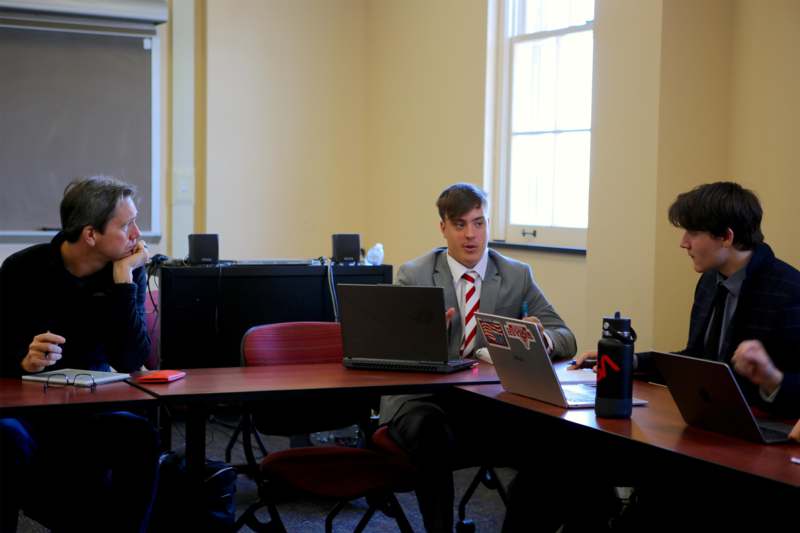
PDSS Speaker Richard Reeves, author of “Of Boys and Men: Why the Modern Male Is Struggling, Why It Matters, and What to Do About It,” joined Psychology Professor Eric Olofson’s Enduring Questions class. After being assigned to read a couple chapters of his book, students participated in a discussion with Reeves about feminism, gender roles, and stereotypes.
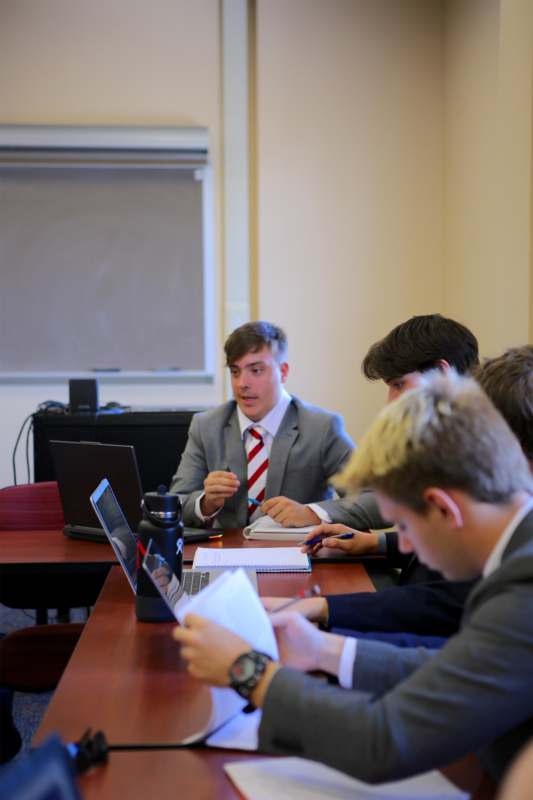
PDSS Speaker Richard Reeves, author of “Of Boys and Men: Why the Modern Male Is Struggling, Why It Matters, and What to Do About It,” joined Psychology Professor Eric Olofson’s Enduring Questions class. After being assigned to read a couple chapters of his book, students participated in a discussion with Reeves about feminism, gender roles, and stereotypes.
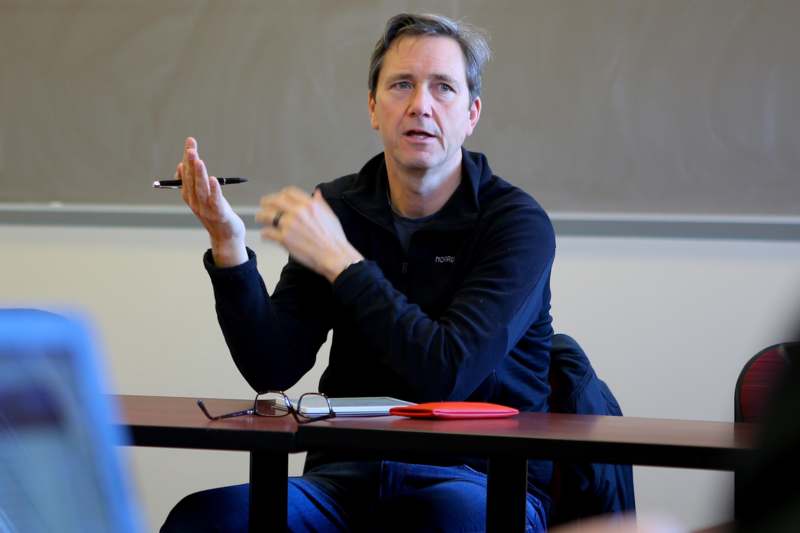
“My view is that occupations can get gendered,” Reeves said. “If you grow up and only see female teachers and you’re a boy, you might think only women are teachers. … I think we’ve made huge progress in not limiting girls or women’s views about the occupations they can do now. I’m not sure we’ve done as good a job the other way around.”
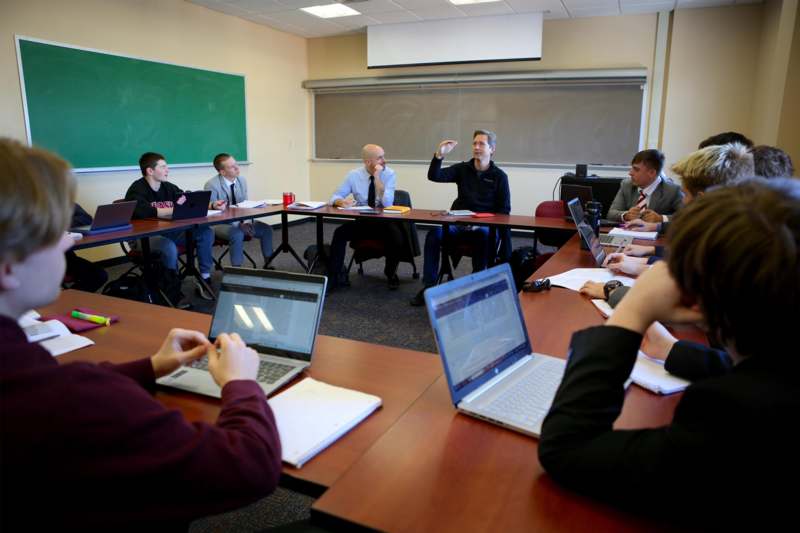
PDSS Speaker Richard Reeves, author of “Of Boys and Men: Why the Modern Male Is Struggling, Why It Matters, and What to Do About It,” joined Psychology Professor Eric Olofson’s Enduring Questions class. After being assigned to read a couple chapters of his book, students participated in a discussion with Reeves about feminism, gender roles, and stereotypes.
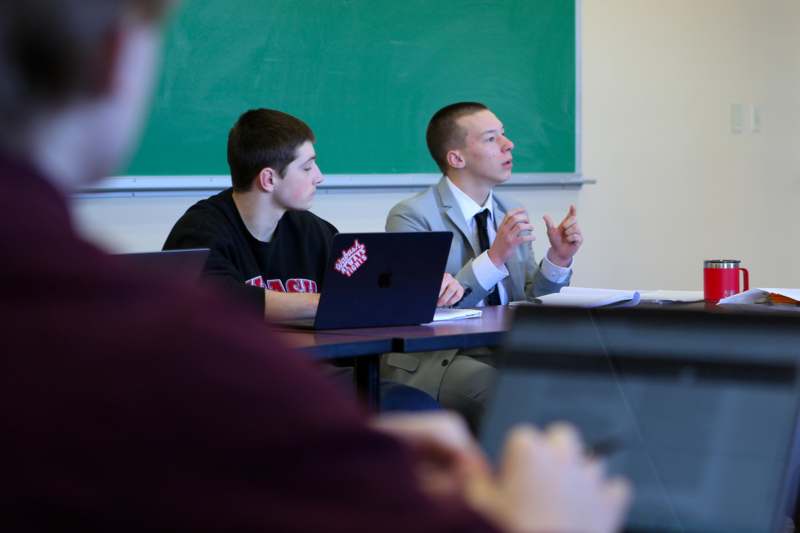
PDSS Speaker Richard Reeves, author of “Of Boys and Men: Why the Modern Male Is Struggling, Why It Matters, and What to Do About It,” joined Psychology Professor Eric Olofson’s Enduring Questions class. After being assigned to read a couple chapters of his book, students participated in a discussion with Reeves about feminism, gender roles, and stereotypes.
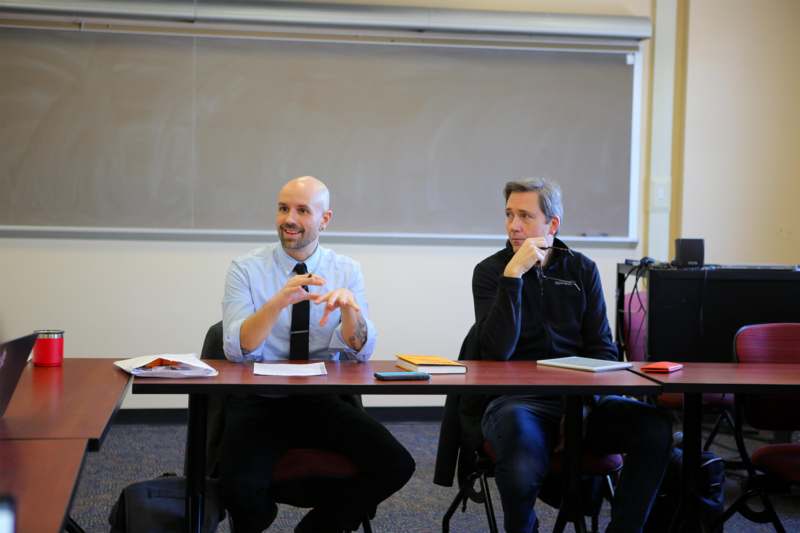
PDSS Speaker Richard Reeves, author of “Of Boys and Men: Why the Modern Male Is Struggling, Why It Matters, and What to Do About It,” joined Psychology Professor Eric Olofson’s Enduring Questions class. After being assigned to read a couple chapters of his book, students participated in a discussion with Reeves about feminism, gender roles, and stereotypes.
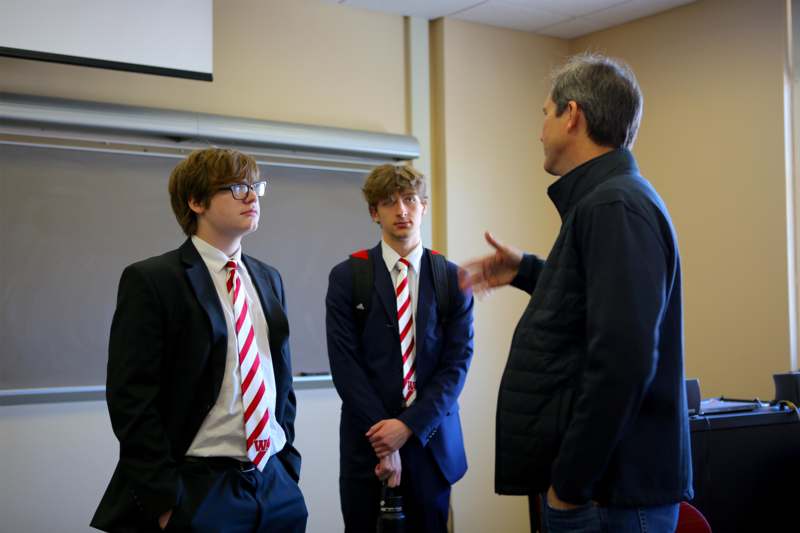
PDSS Speaker Richard Reeves, author of “Of Boys and Men: Why the Modern Male Is Struggling, Why It Matters, and What to Do About It,” joined Psychology Professor Eric Olofson’s Enduring Questions class. After being assigned to read a couple chapters of his book, students participated in a discussion with Reeves about feminism, gender roles, and stereotypes.
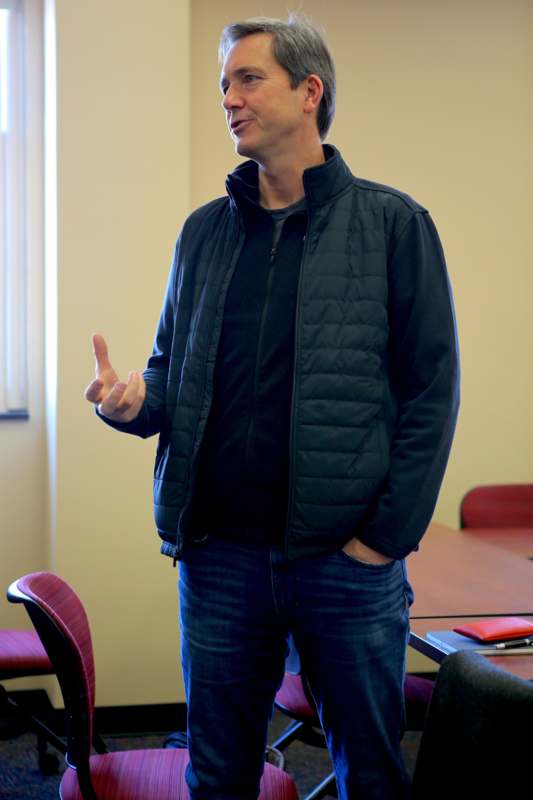
PDSS Speaker Richard Reeves, author of “Of Boys and Men: Why the Modern Male Is Struggling, Why It Matters, and What to Do About It,” joined Psychology Professor Eric Olofson’s Enduring Questions class. After being assigned to read a couple chapters of his book, students participated in a discussion with Reeves about feminism, gender roles, and stereotypes.
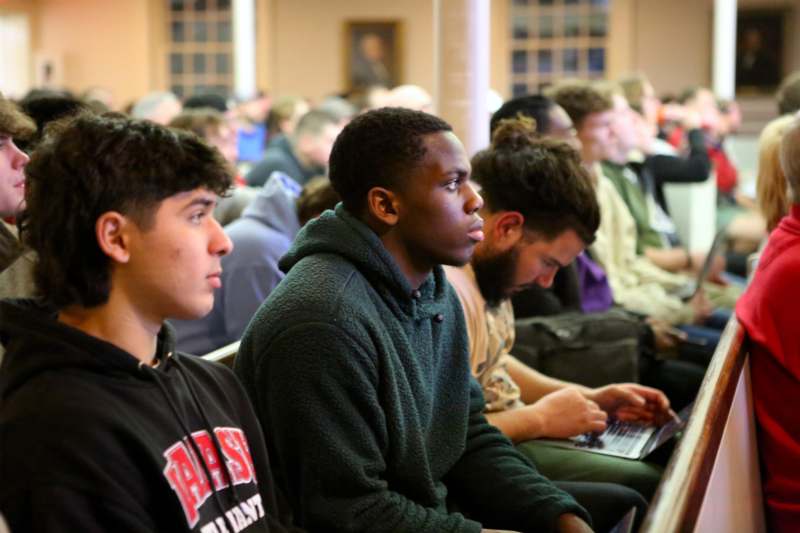
Reeves is president of the American Institute for Boys and Men, which he founded in 2023 to raise awareness of the problems of boys and men and advocate for effective solutions. He is also non-resident Senior Fellow at the Brookings Institution in Washington, DC, where he previously directed the Future of the Middle-Class Initiative and the Center on Children and Families. His research focuses on boys and men, inequality, and social mobility.
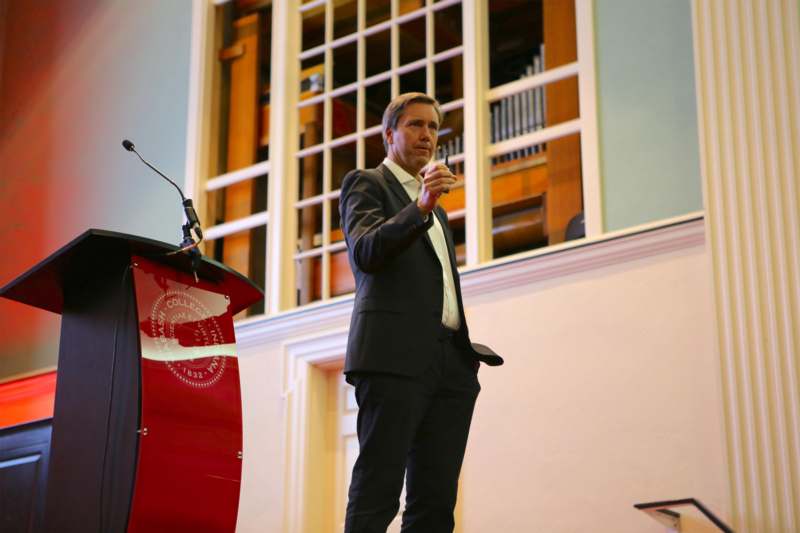
“It would be like saying to the parent of a son and a daughter, you’re only allowed to care about one of them, and the fact of caring about one of them means you can’t care about the other,” he said. “It's as absurd as that, but it’s sometimes how this debate about gender and sex in the U.S. feels like.”
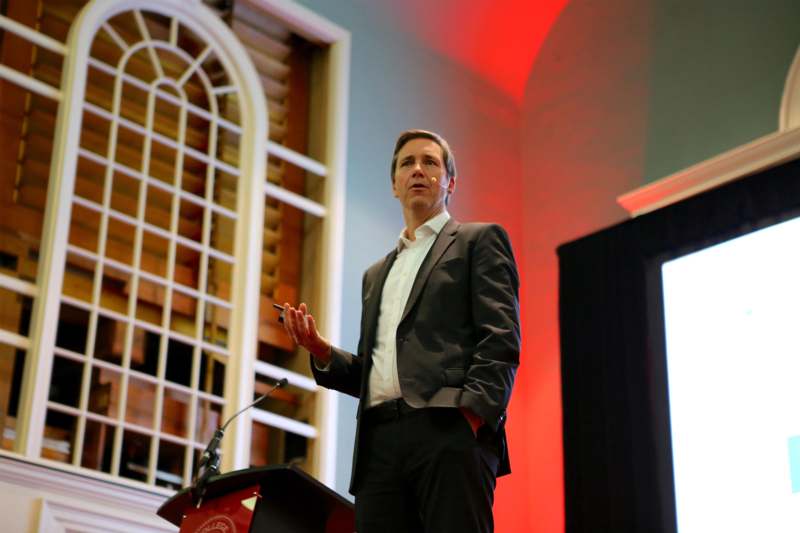
“One of the ways that it shows up is in differences in suicide rates,” he said. “I know that this is a very sensitive and tragic issue, but one that we cannot look away from. Suicide rates have gone up for young men and young women. … The suicide rate among men of all age groups is about four times higher compared to women.”
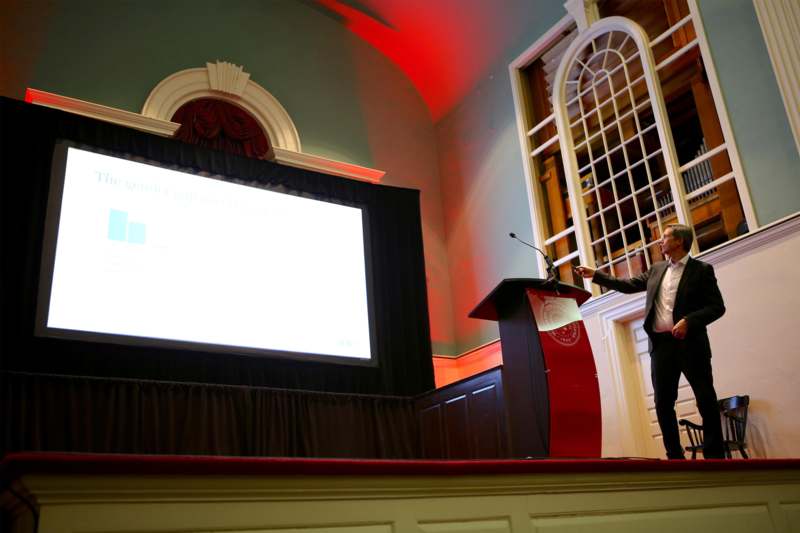
“The fact is under the Affordable Care Act, screening for anxiety among women and girls is covered free of charge. But screening for anxiety among boys and men is not covered by the Affordable Care Act because of symmetry in the way we set up public health,” Reeves said. “It’s an accident of public policy. But it’s also revealing that too often we just don’t think about mental health as something that codes as male as well as something codes as female.”
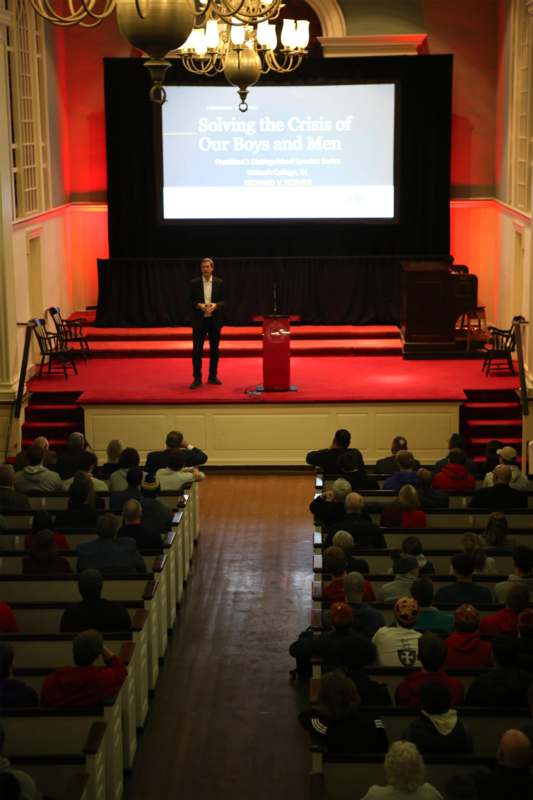
“Too often we end up treating boys a bit like malfunctioning girls,” Reeves said. “A lot of boys feel like a bit of a square peg in a round hole in the mainstream education system. It is to my eternal regret that was definitely true in particular for one of my sons. I spent years trying to hammer him in, trying to make him fit system that doesn't suit him.”
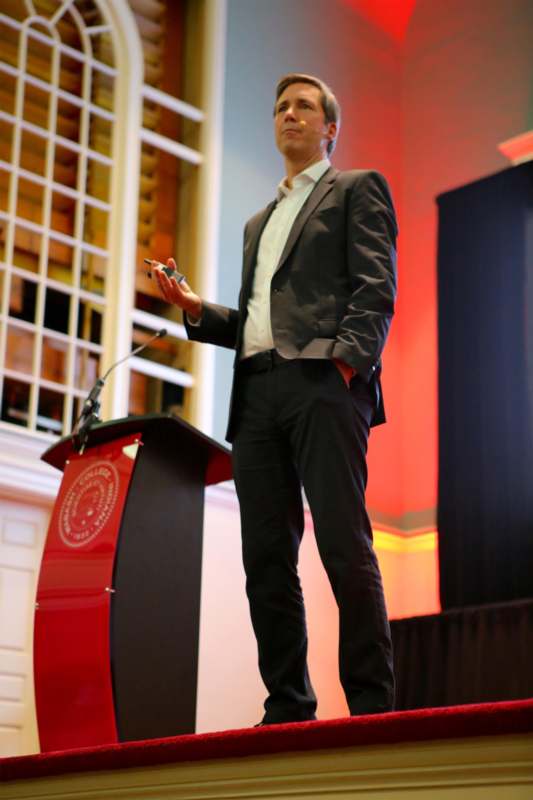
Reeves presented a number of solutions to these issues at the end of the presentation. Some included: boys starting school a year later; more technical high schools; more apprenticeships; support males going into female-dominated fields like teaching through scholarships; create men’s resource centers that provide mental health support; paid leave for dads; among others.
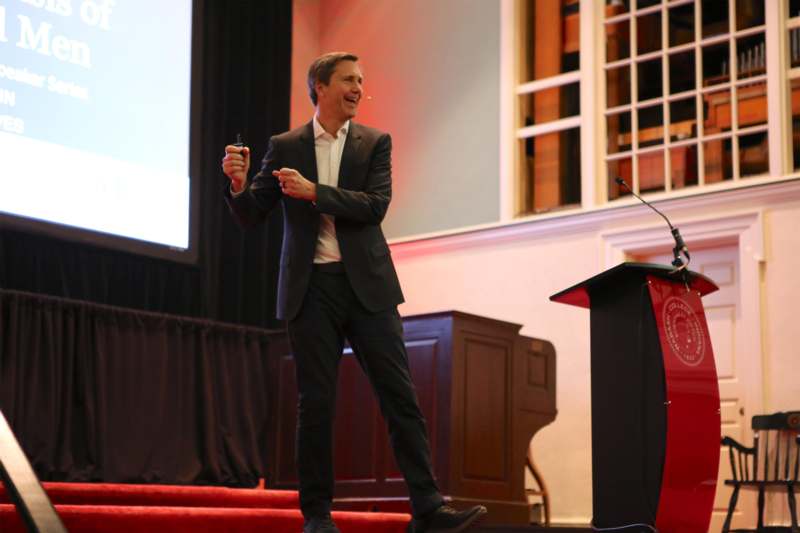
Reeves presented a number of solutions to these issues at the end of the presentation. Some included: boys starting school a year later; more technical high schools; more apprenticeships; support males going into female-dominated fields like teaching through scholarships; create men’s resource centers that provide mental health support; paid leave for dads; among others.
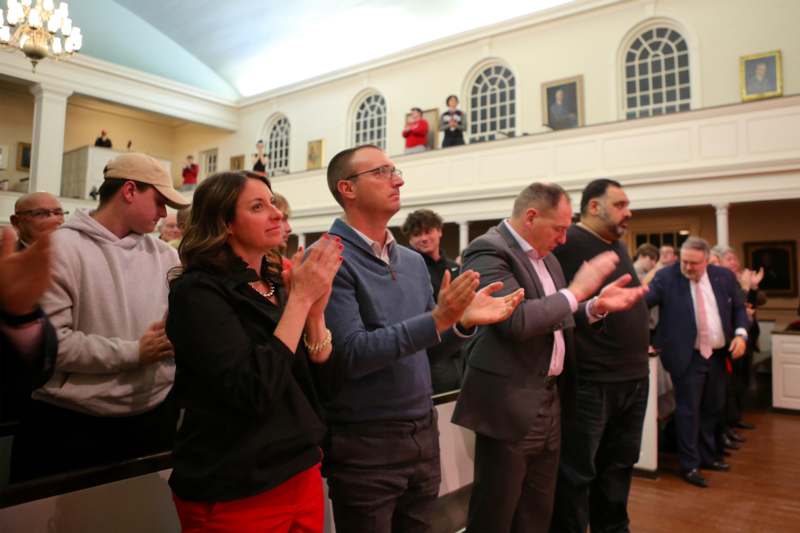
“Our boys and men need to feel seen, heard, and valued,” Reeves said. “I just don’t think we can have a society where we look away from people, anybody, regardless of their race or their gender, feel like they're not worth something. It is a universal need to feel needed, and too many of our men don’t feel that. They don’t feel like we’ve got their backs. We are losing them in one way or another, and we cannot afford that.”

